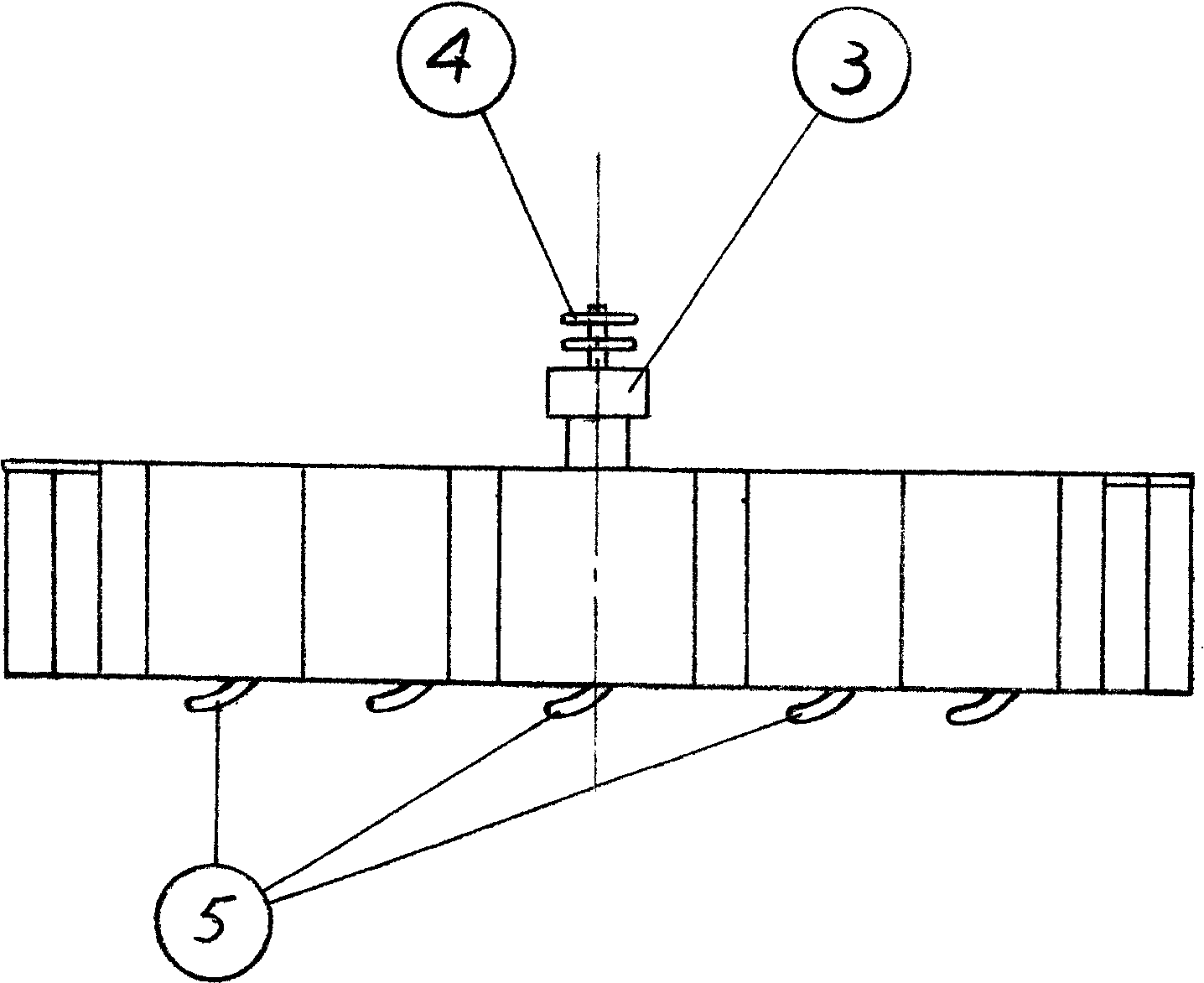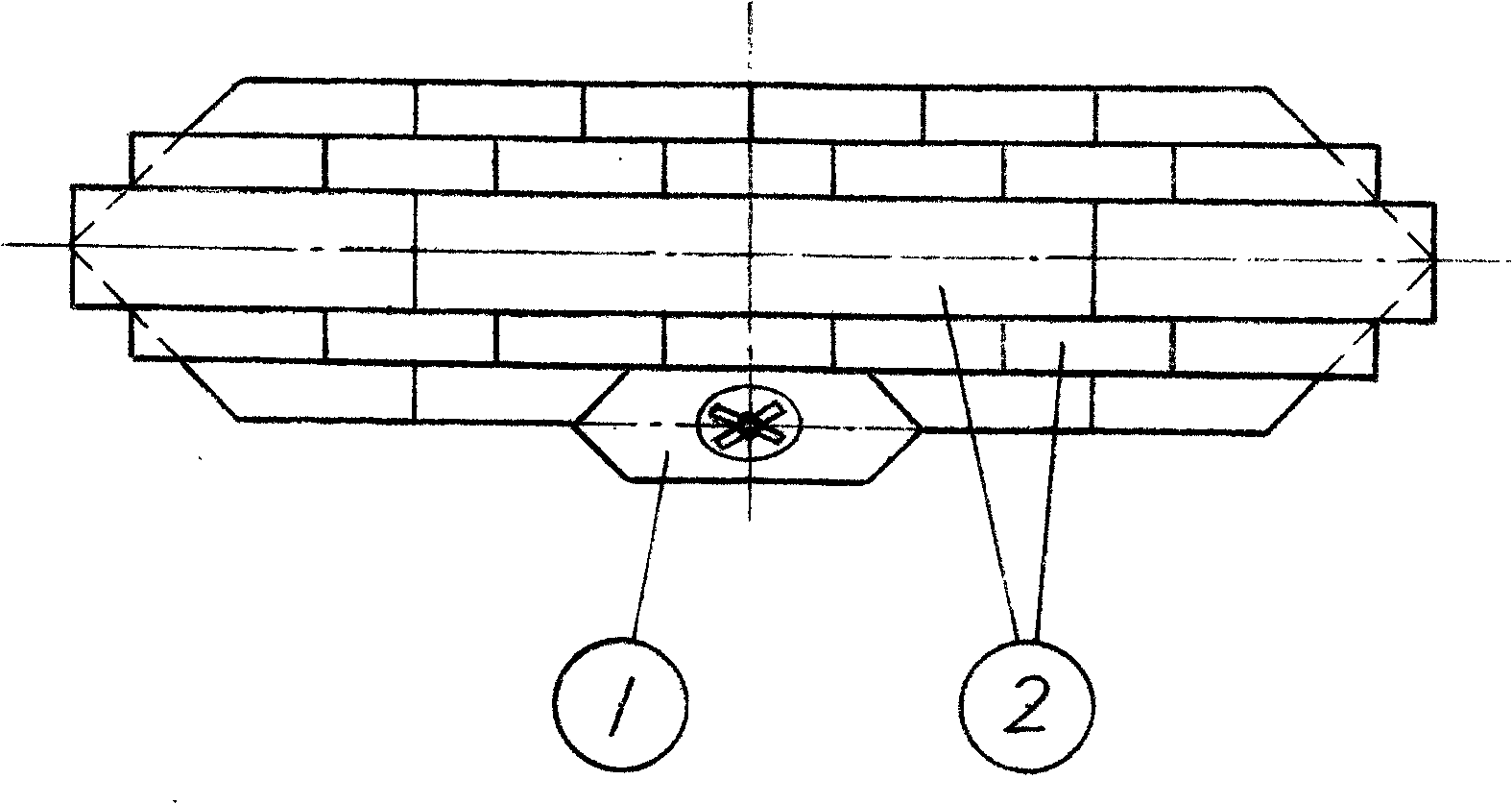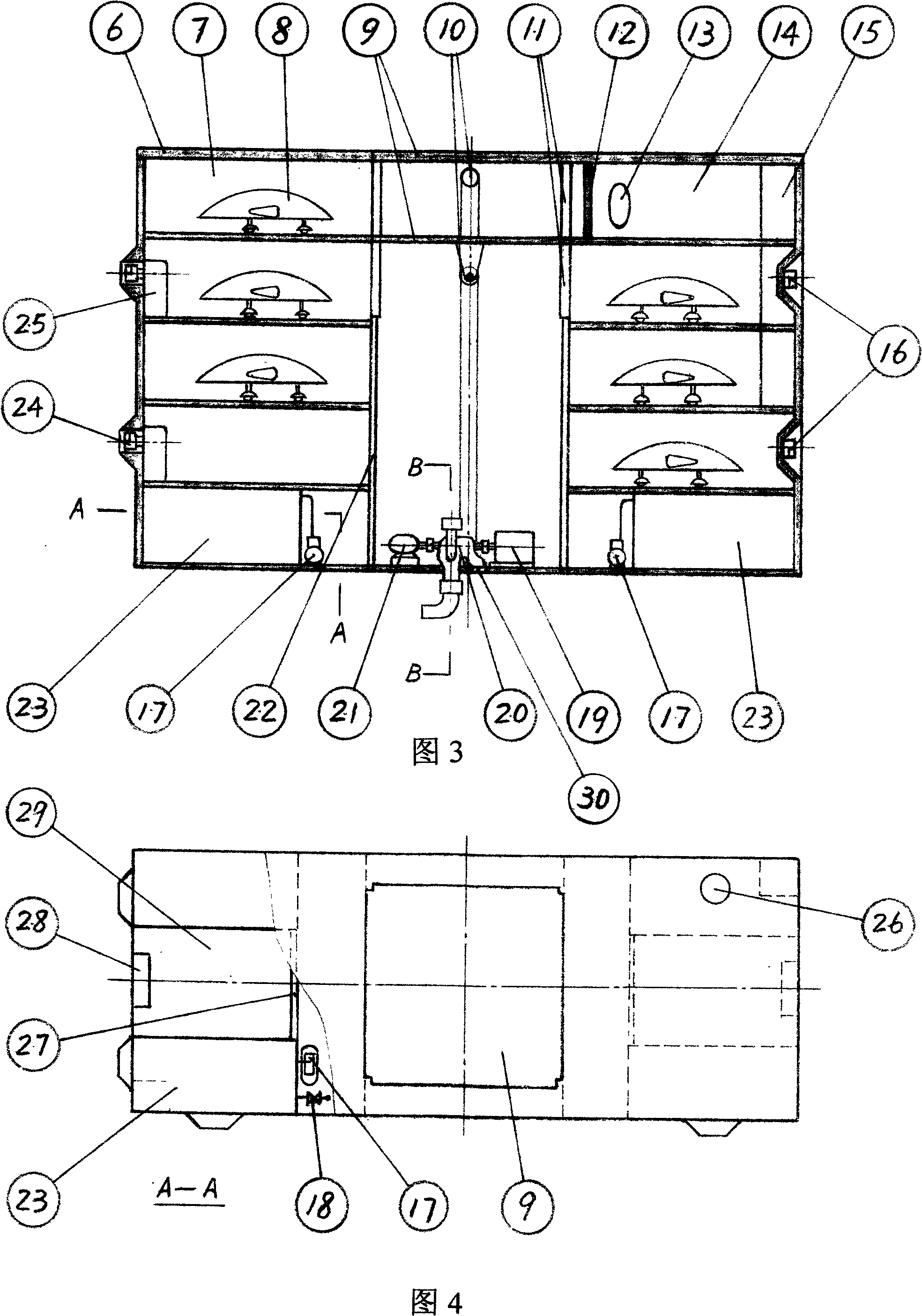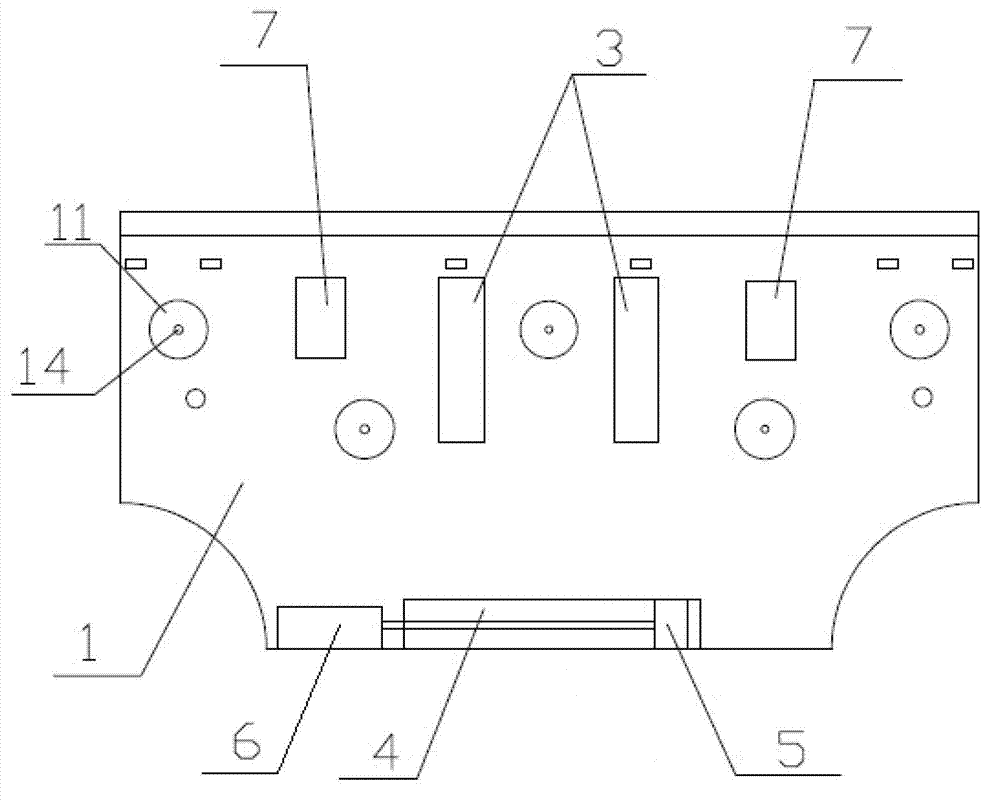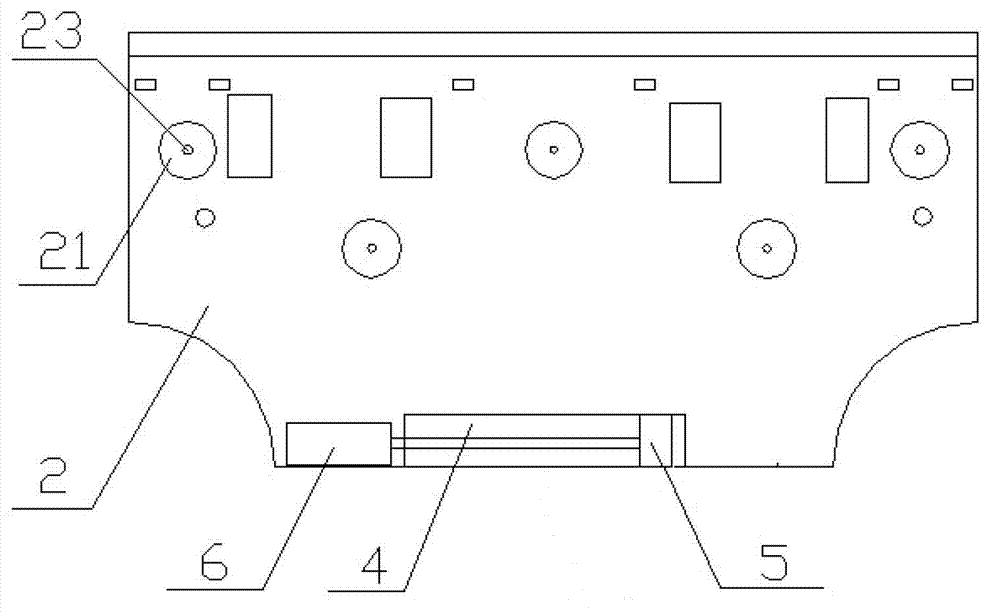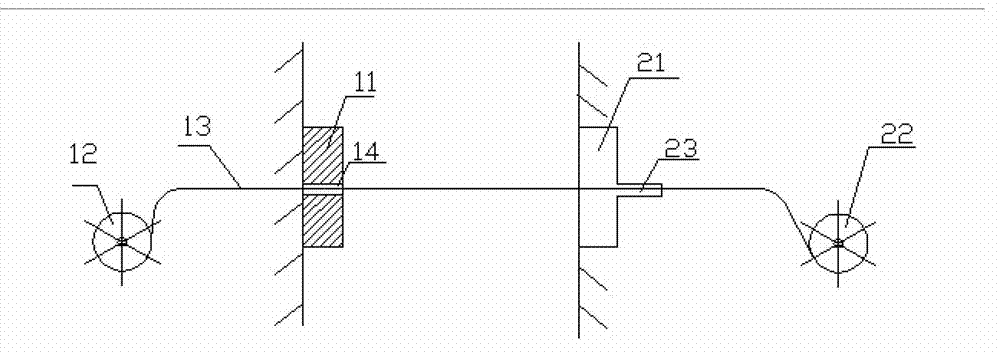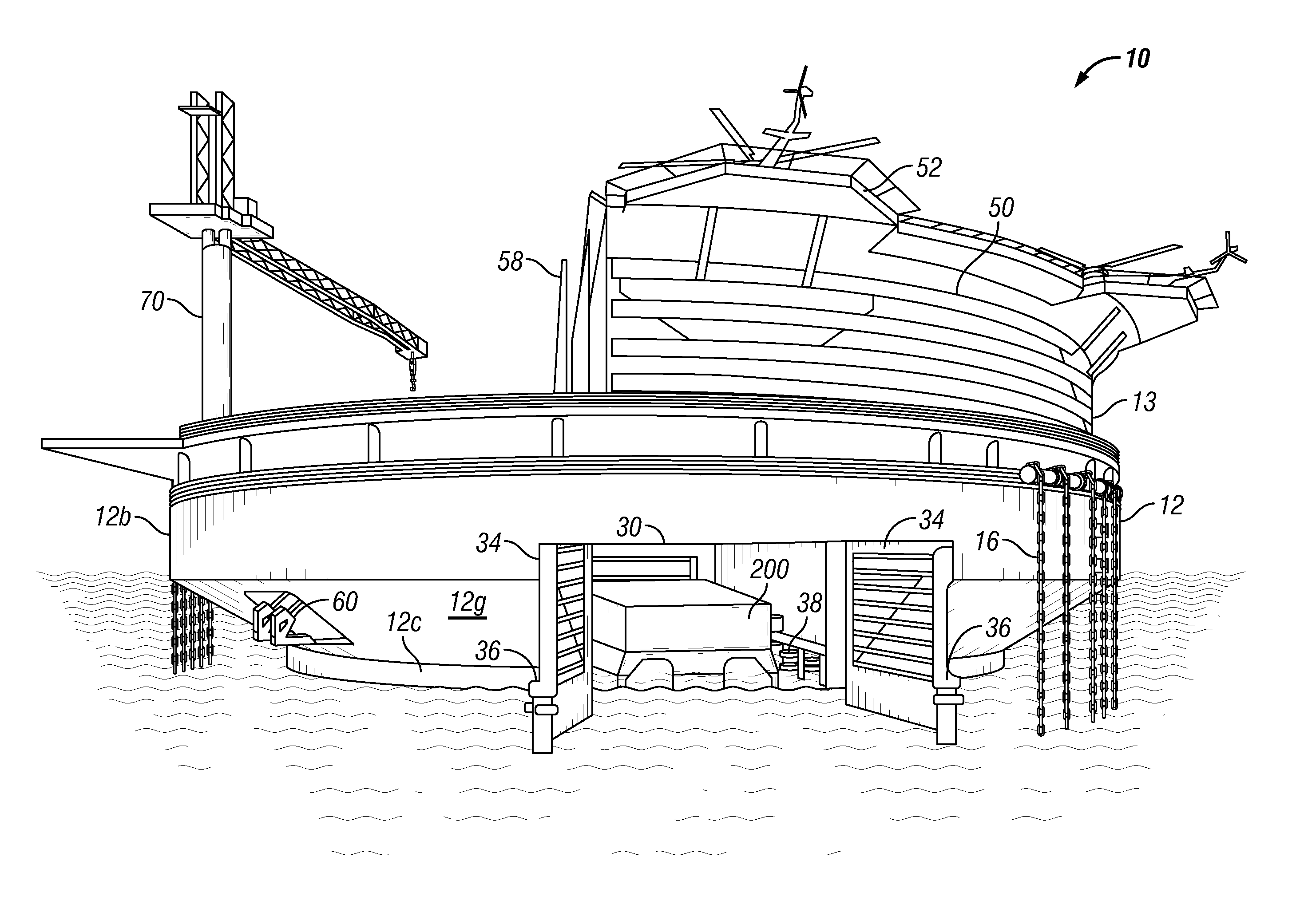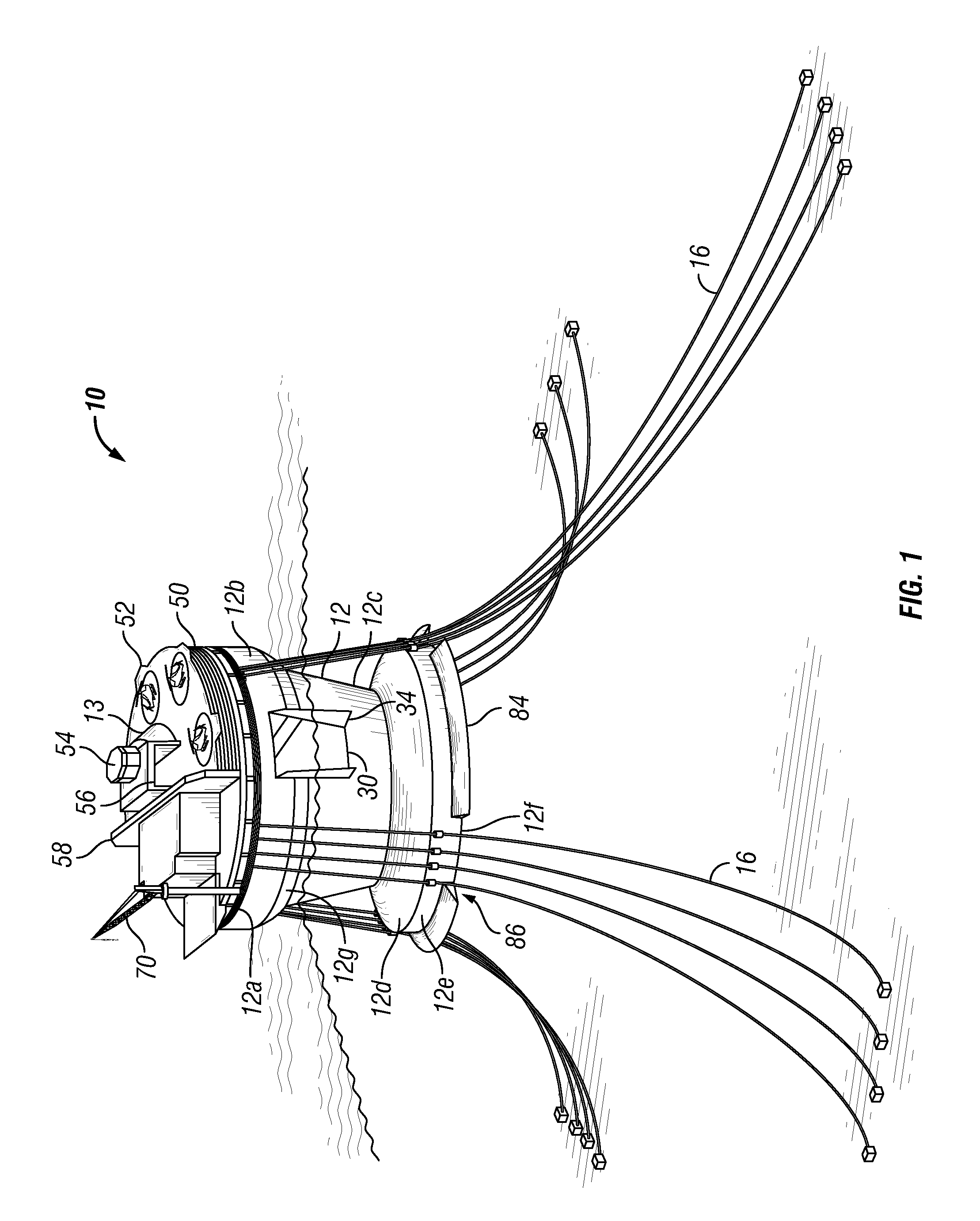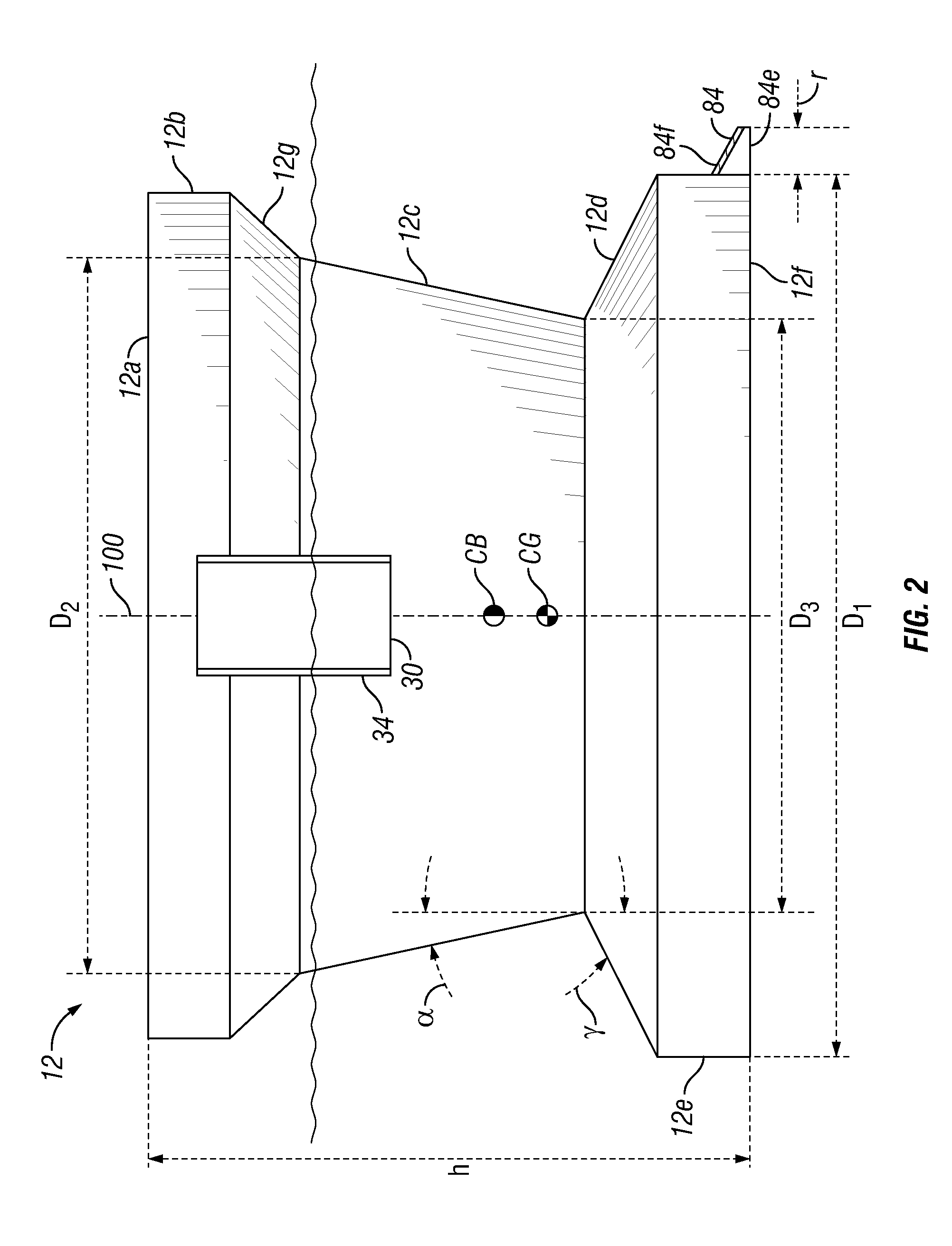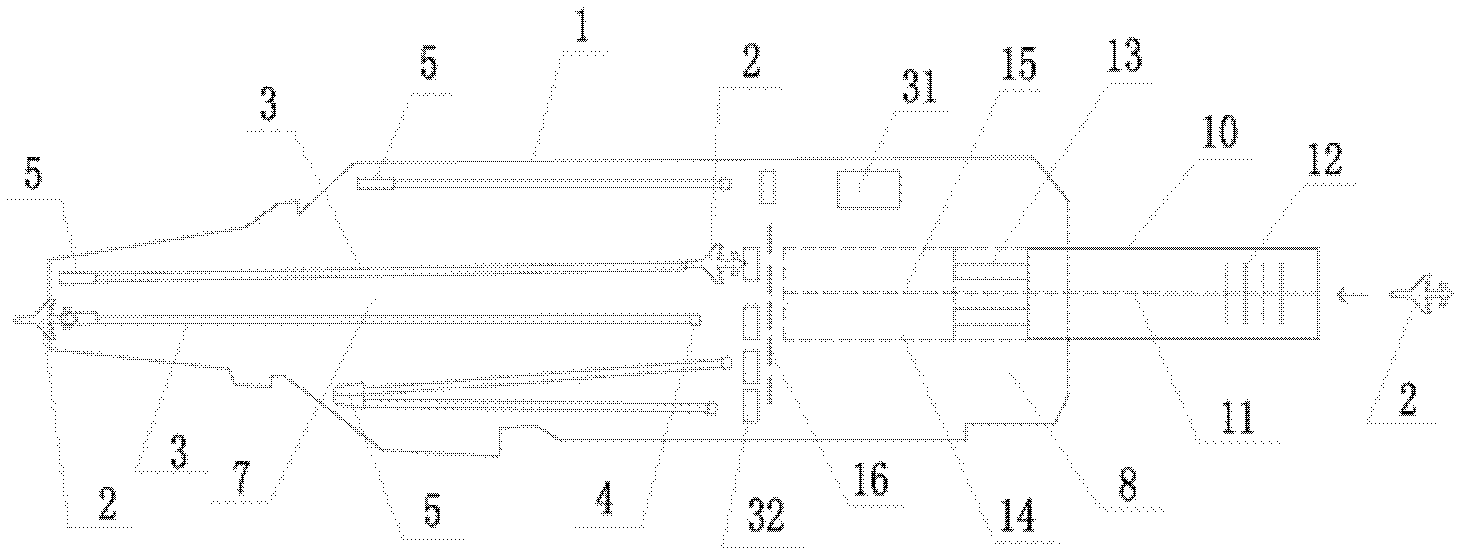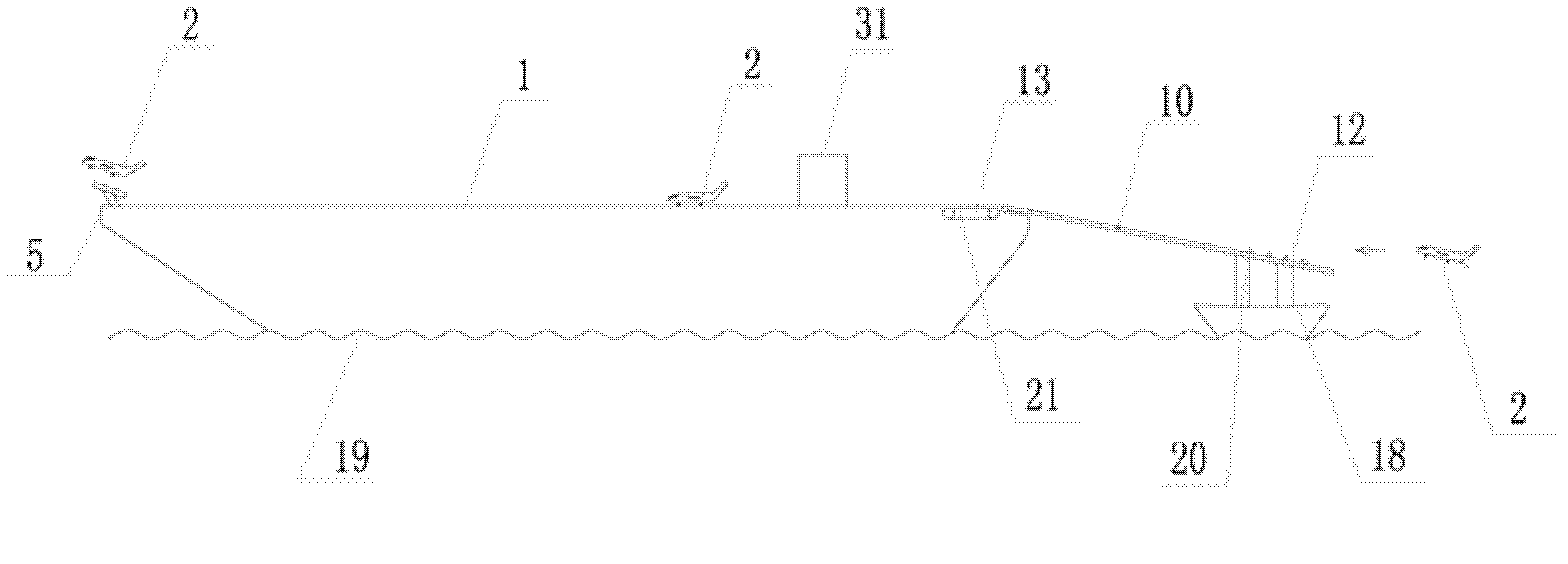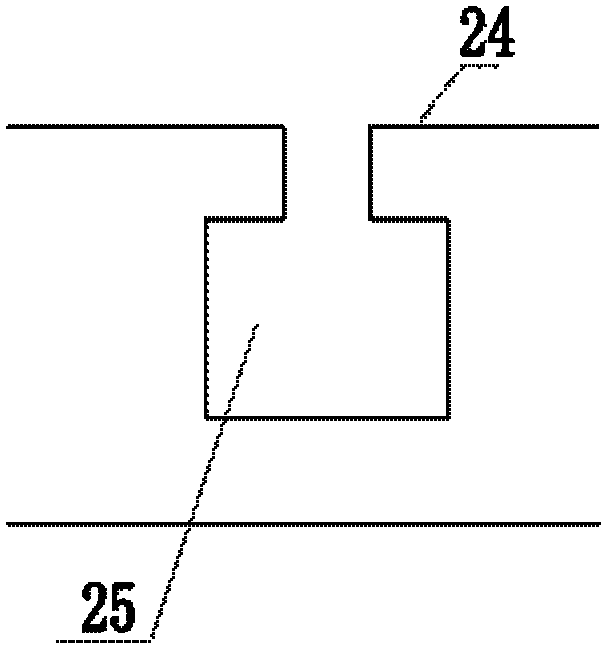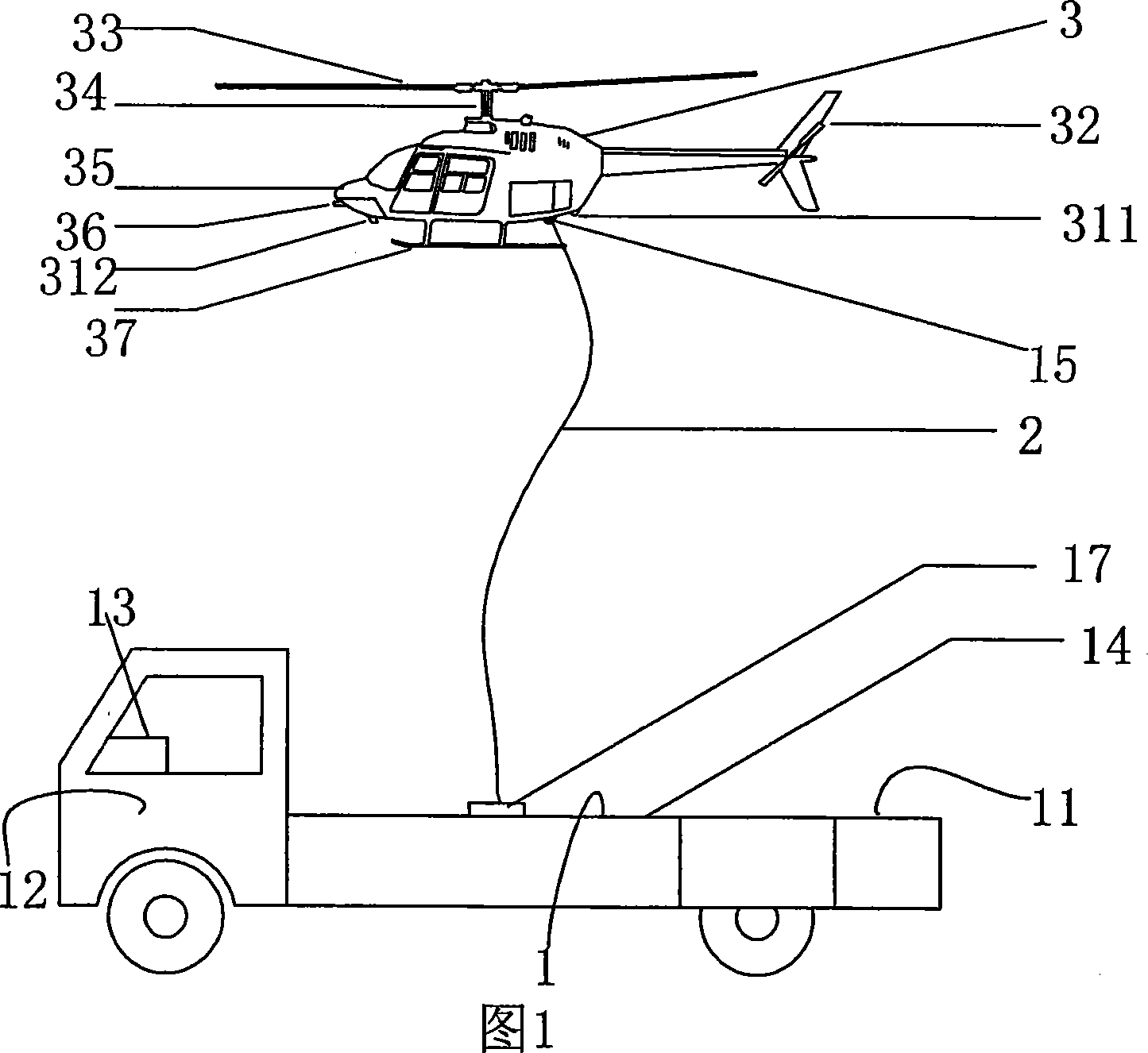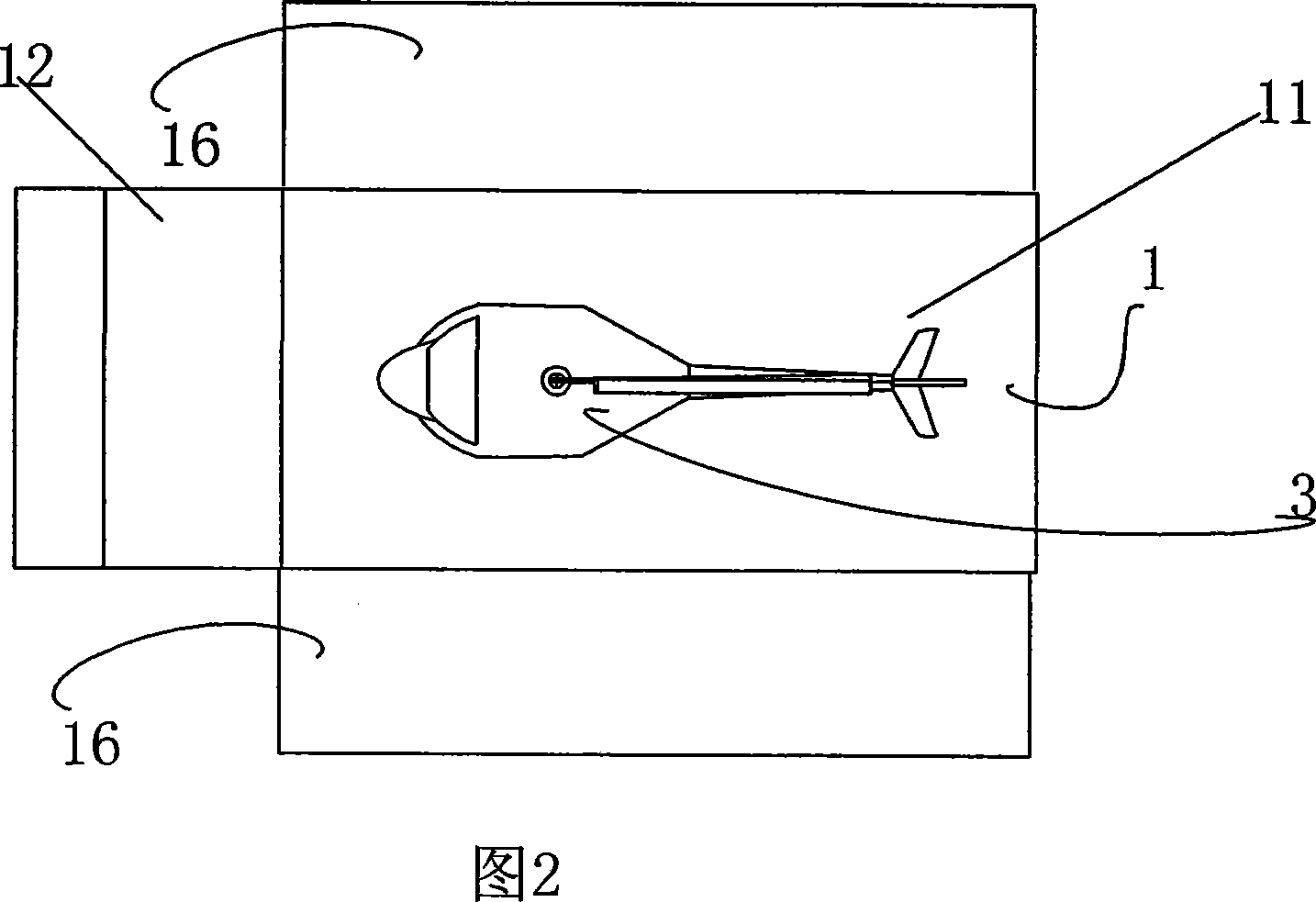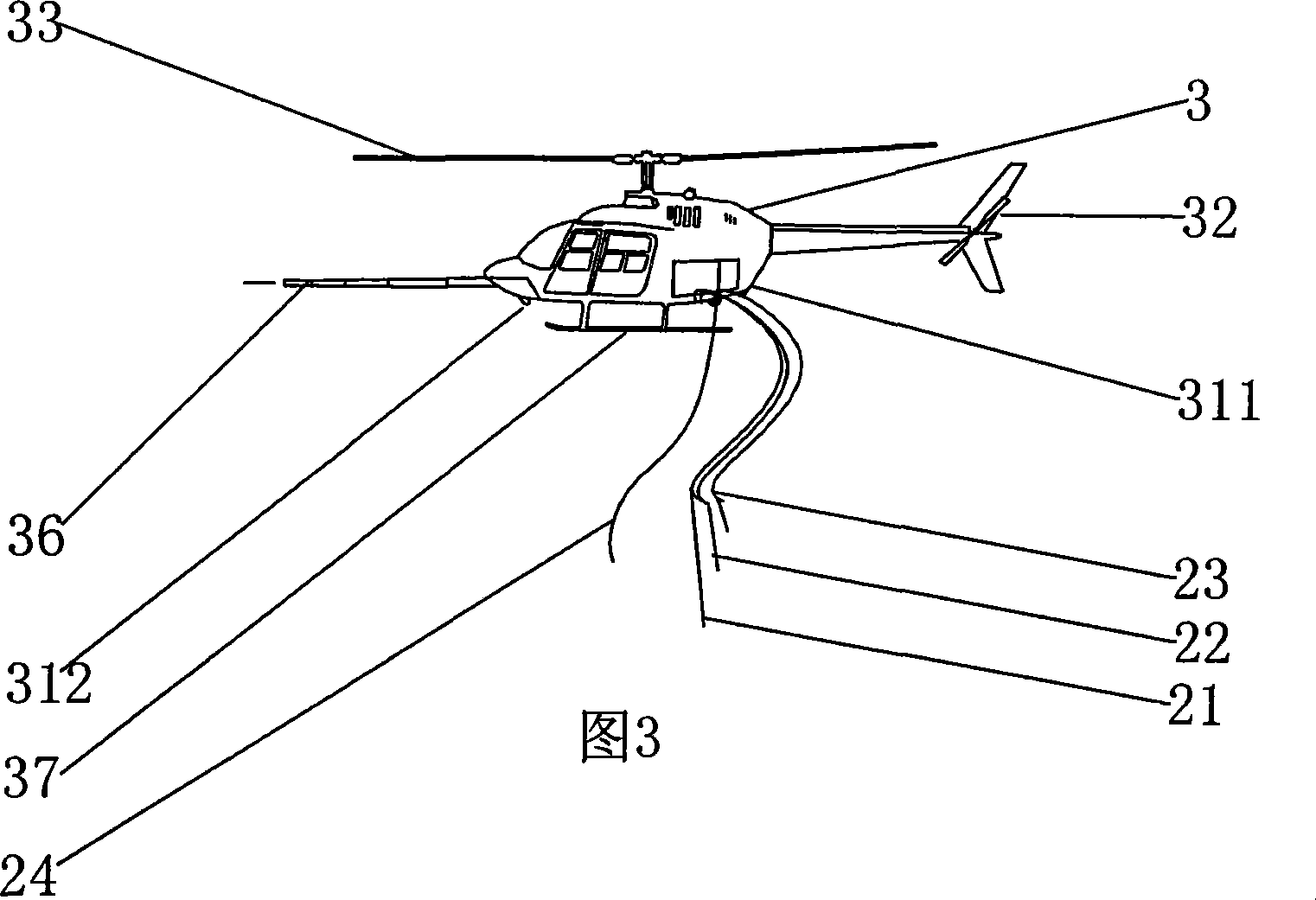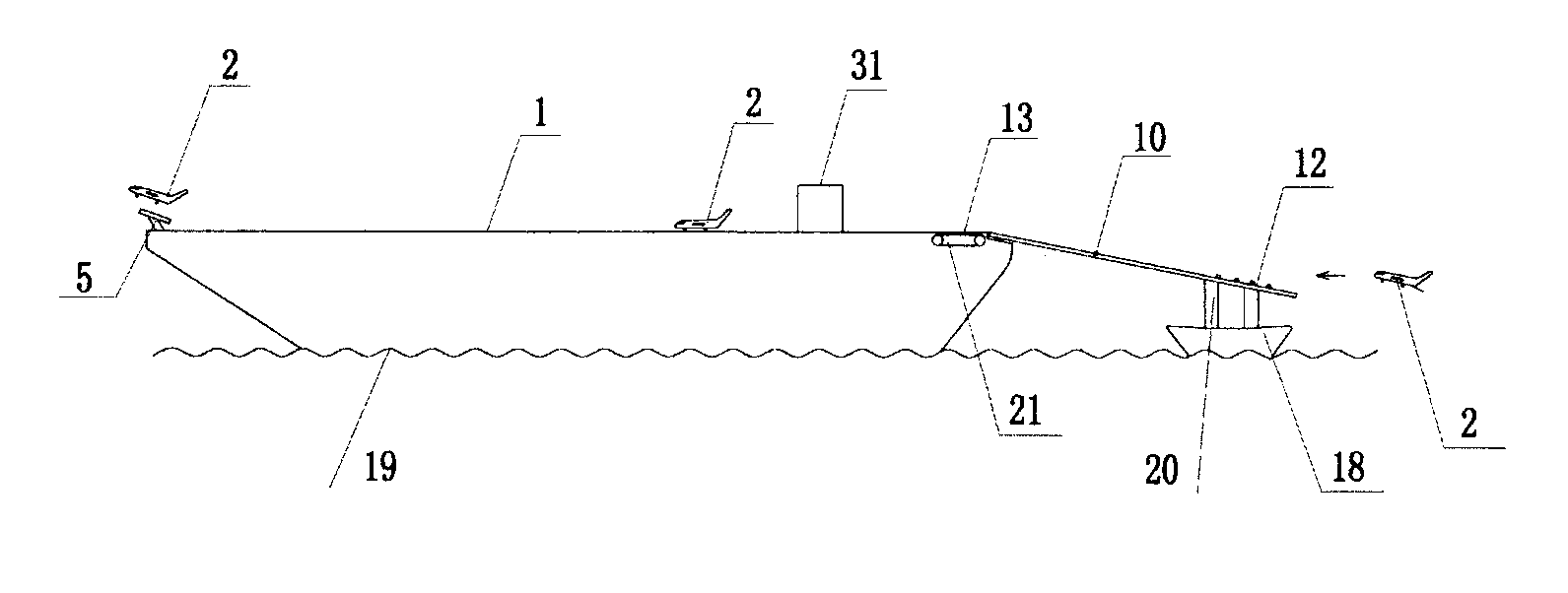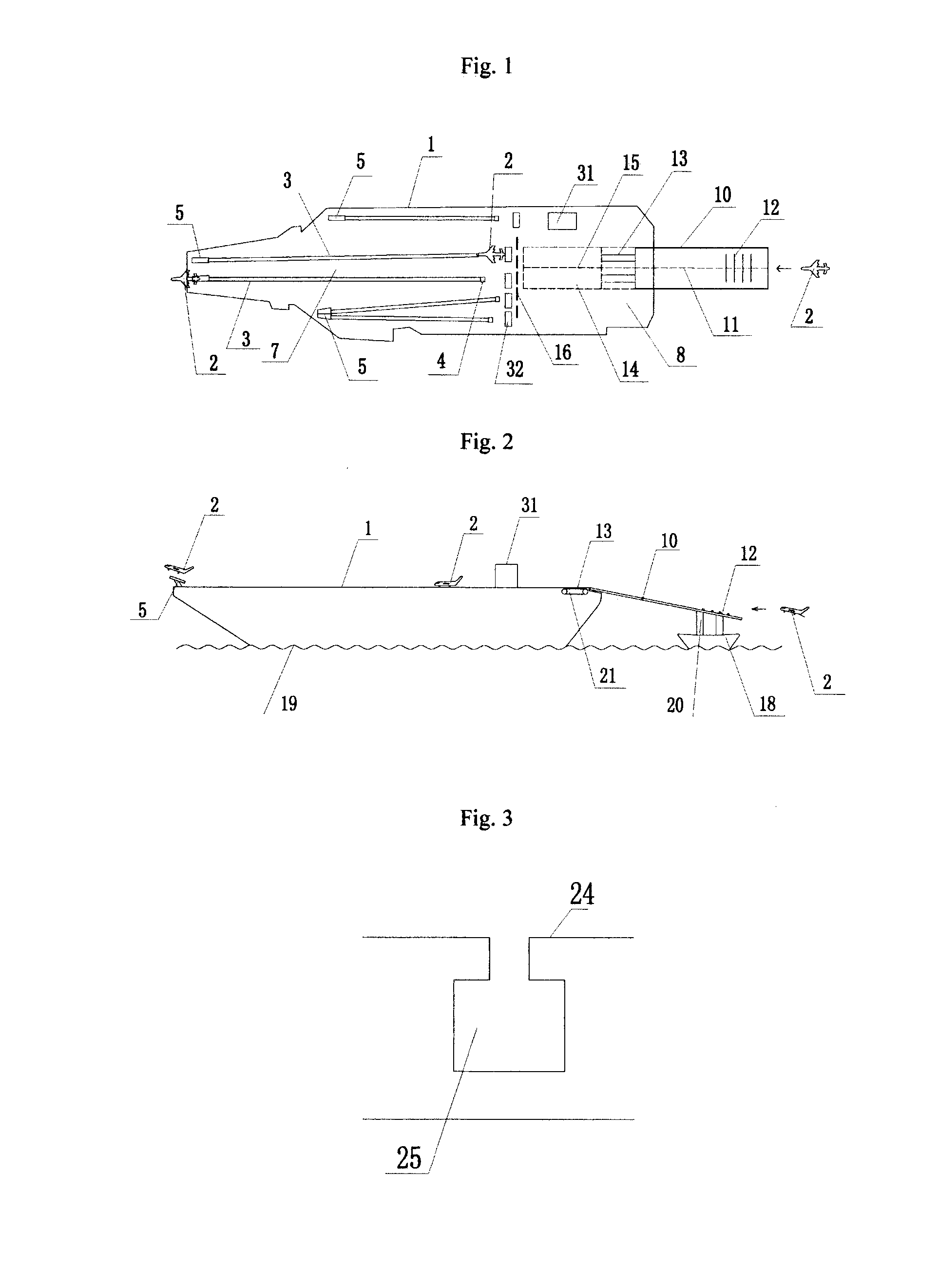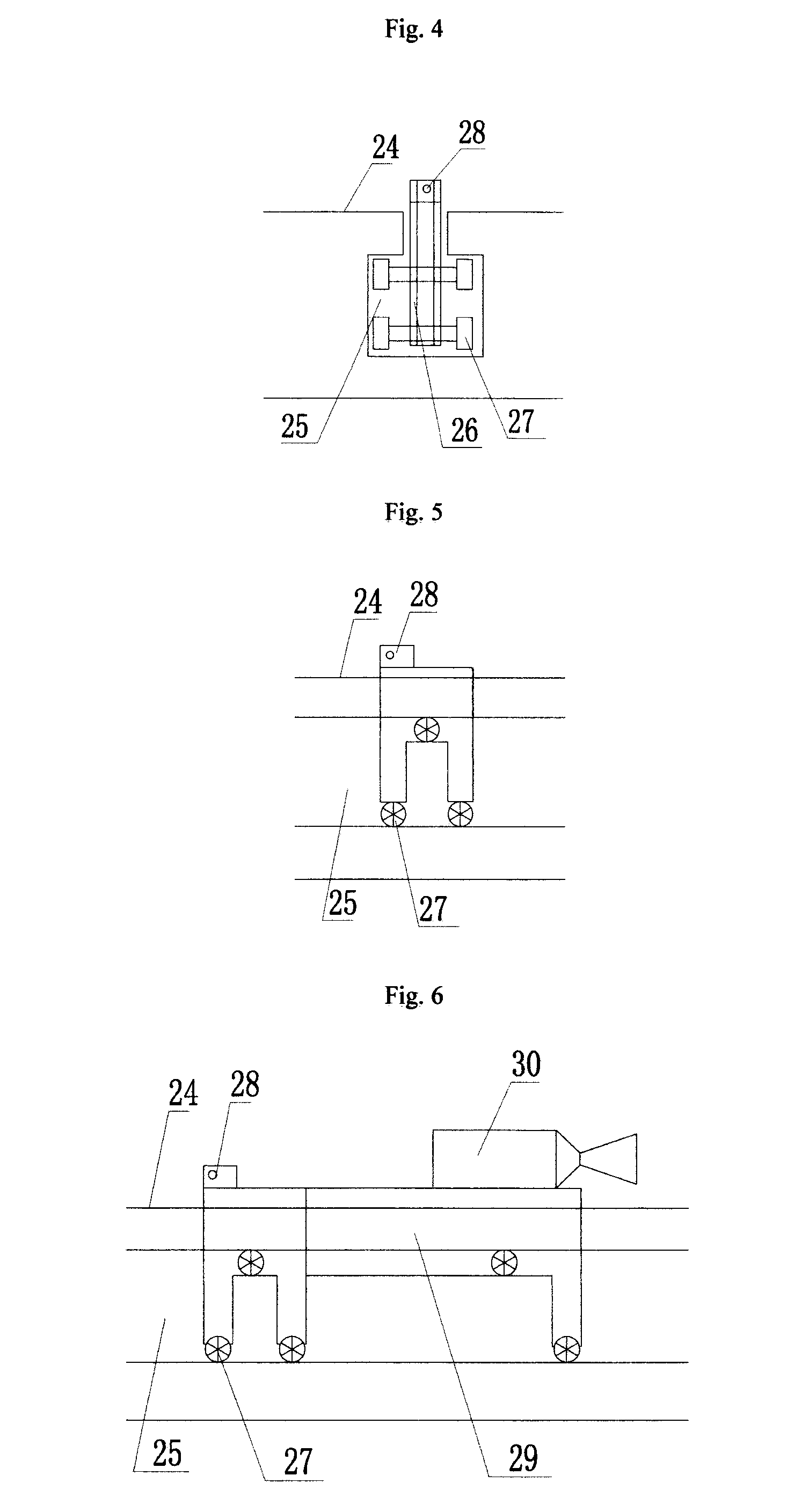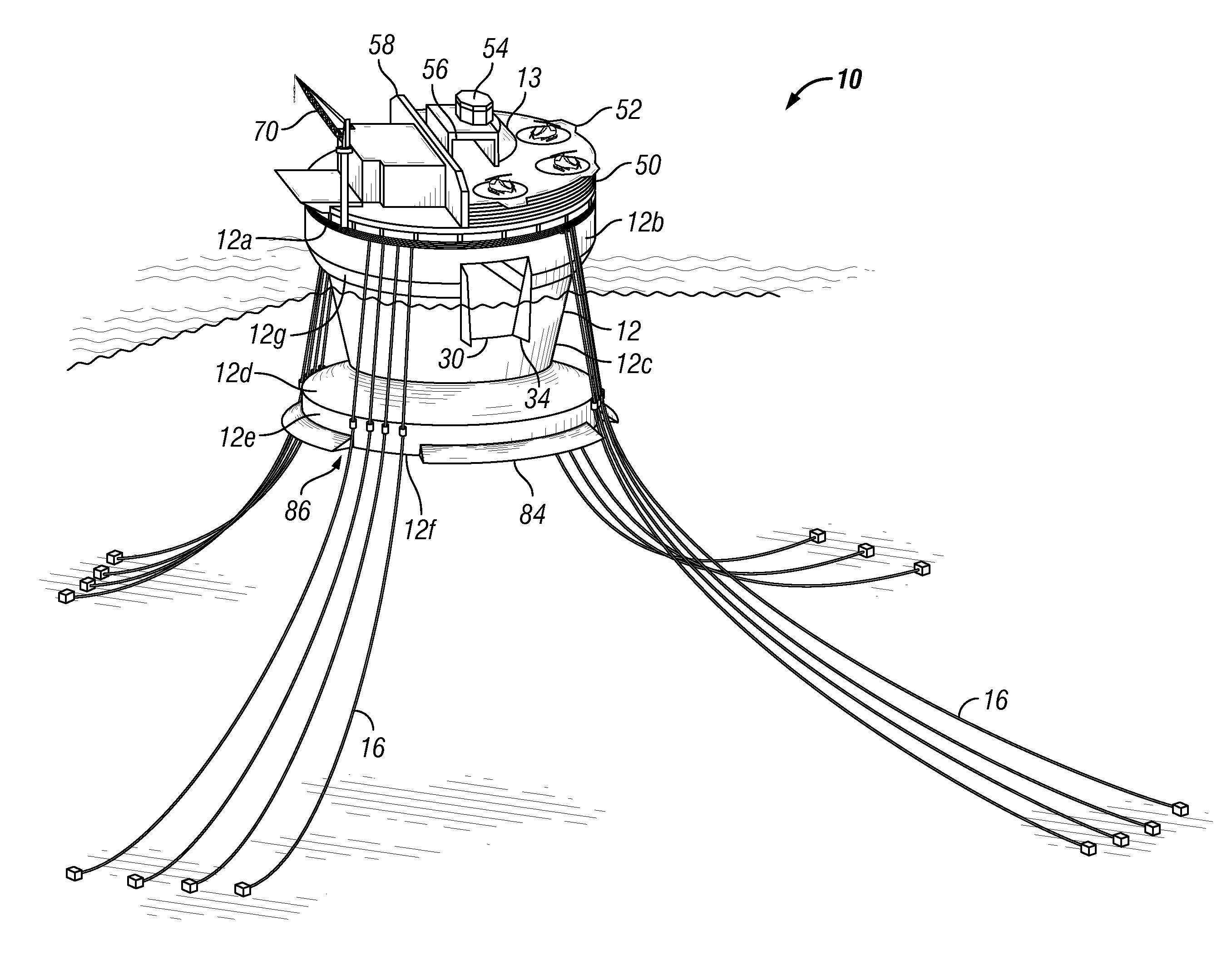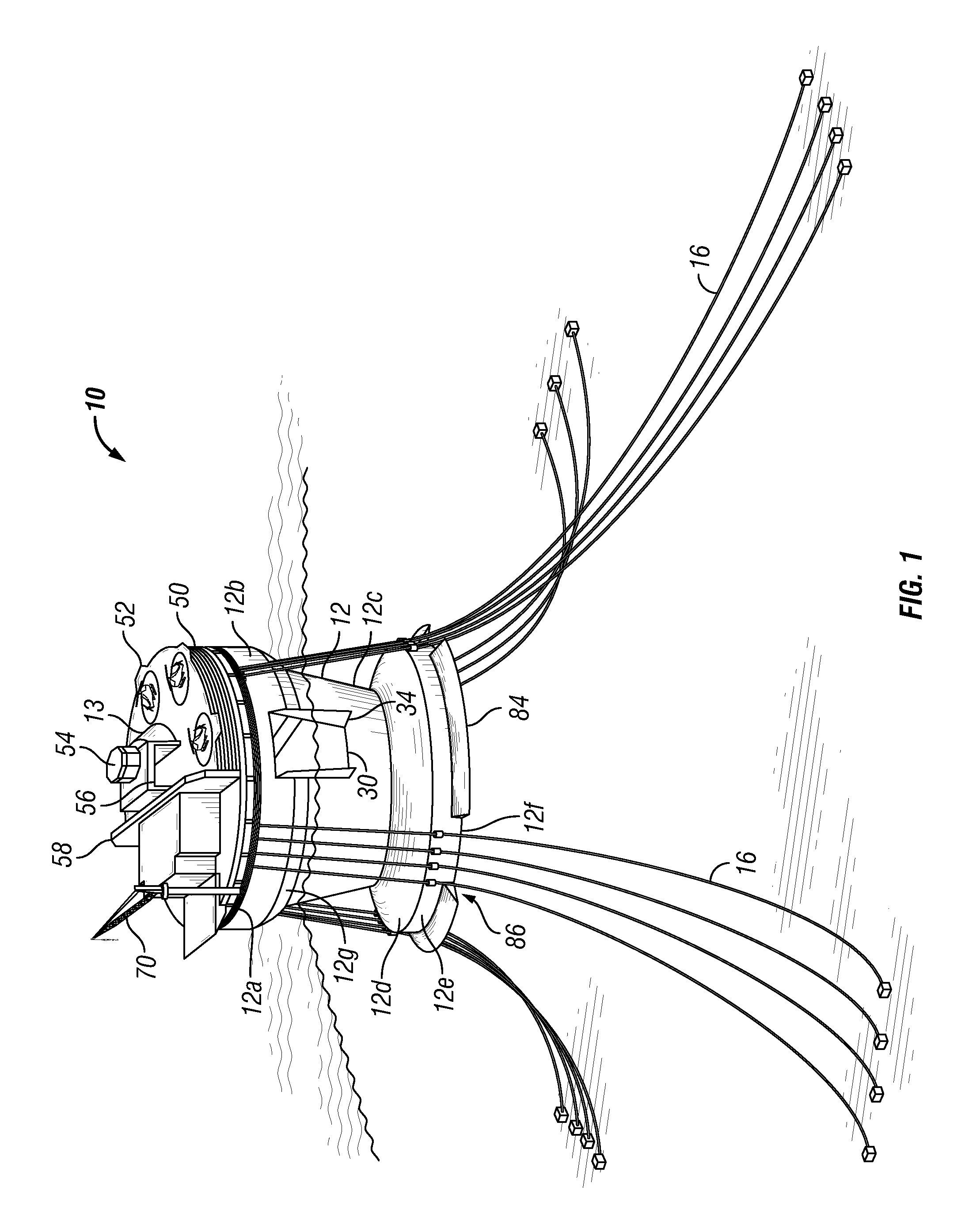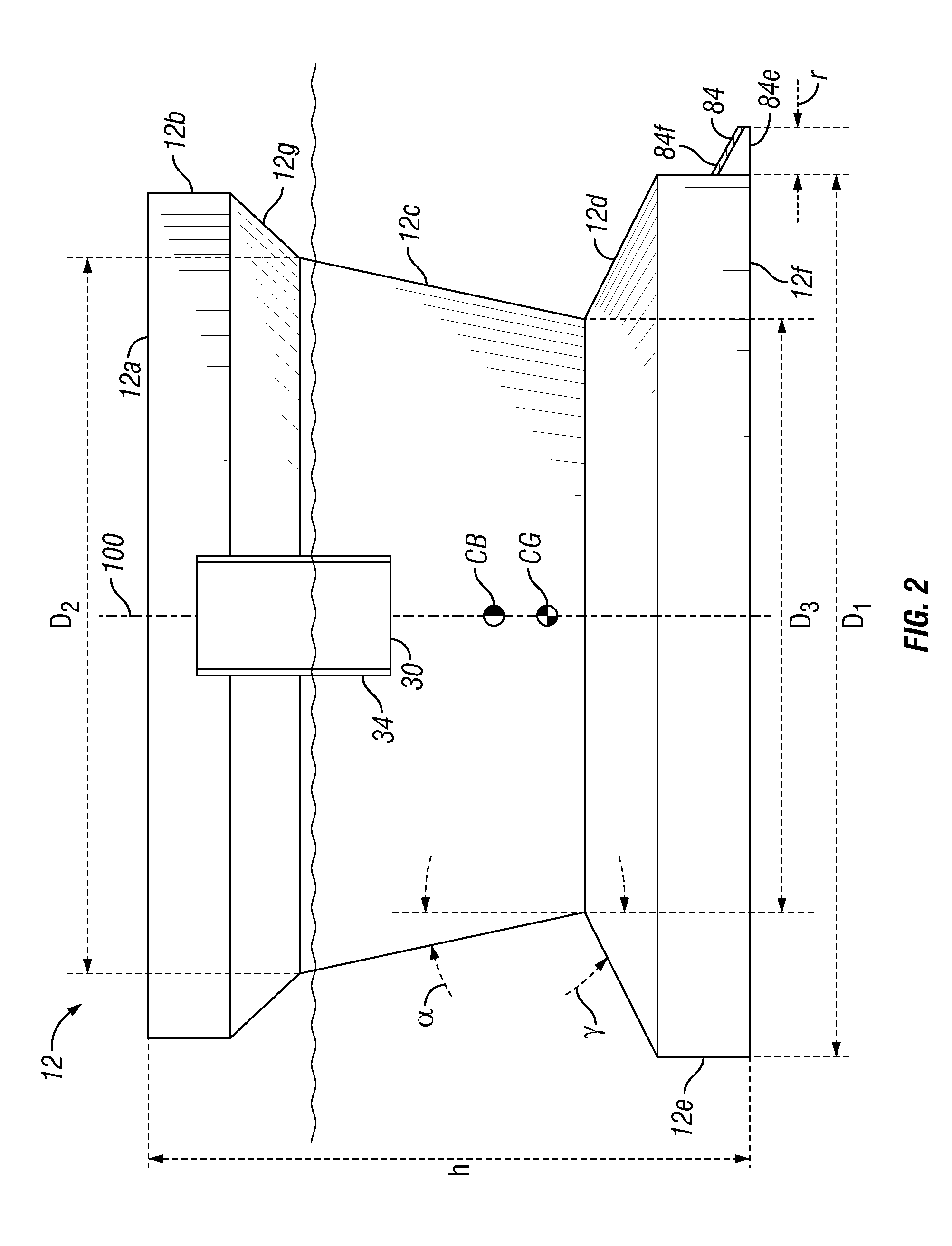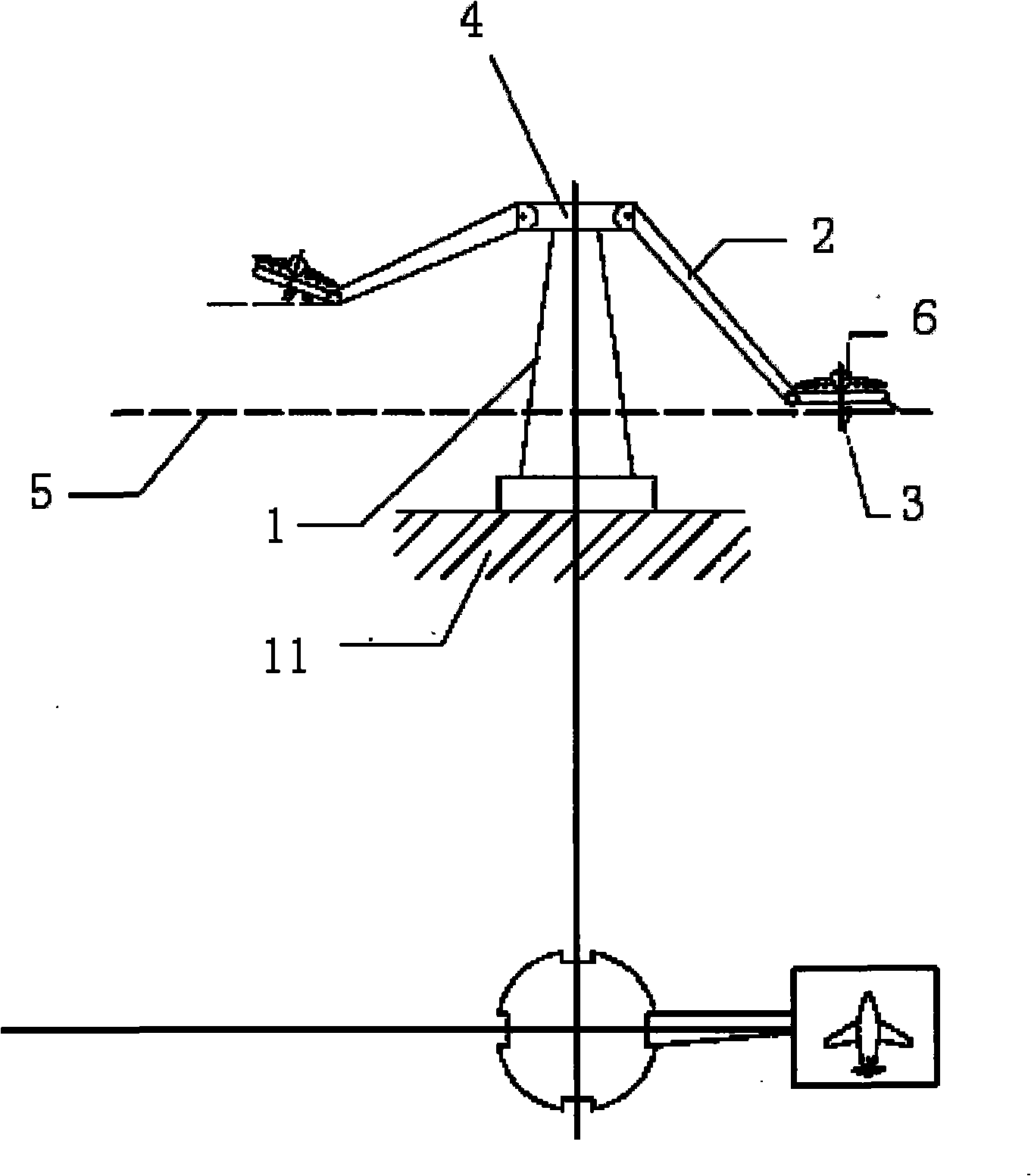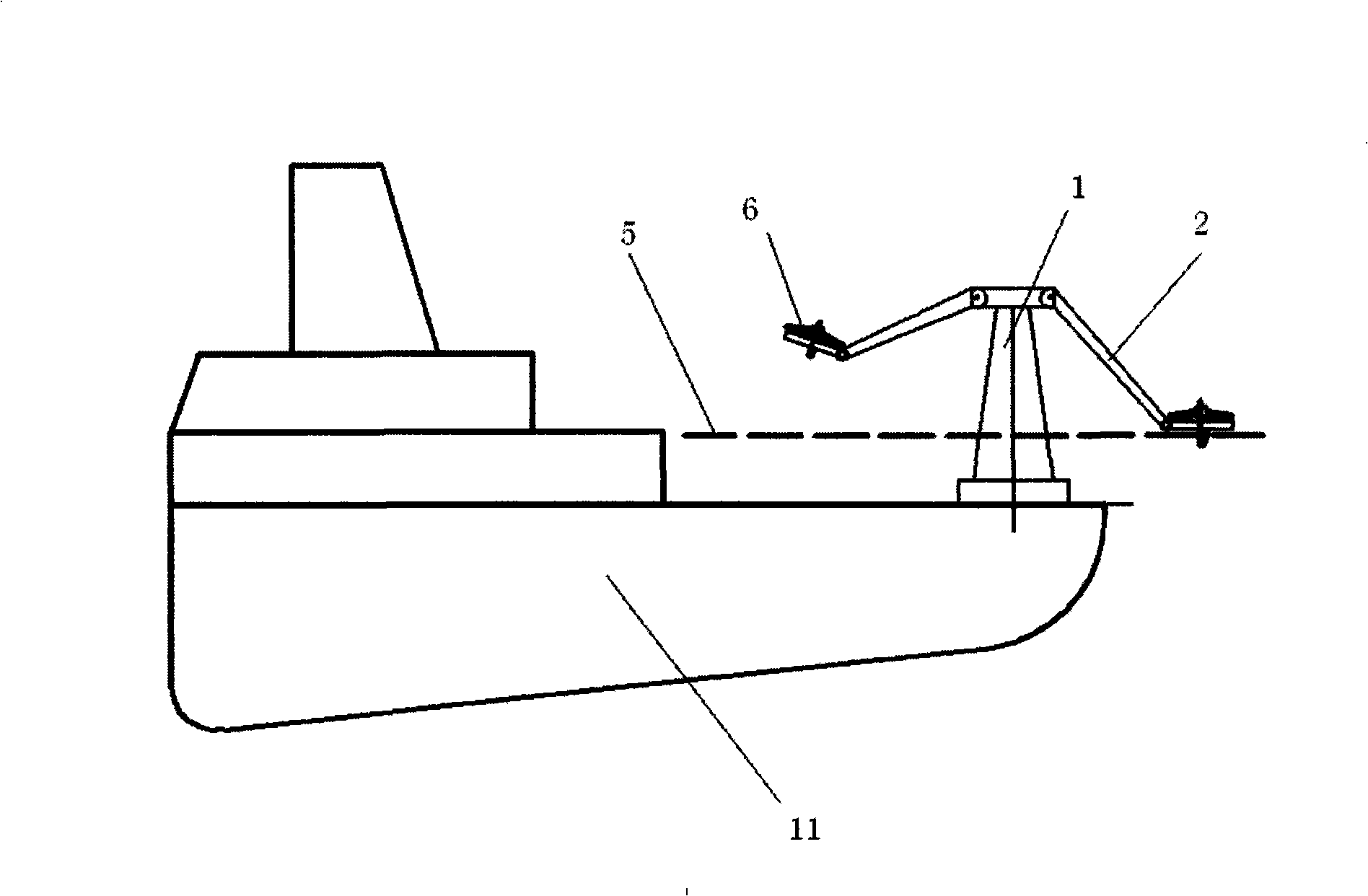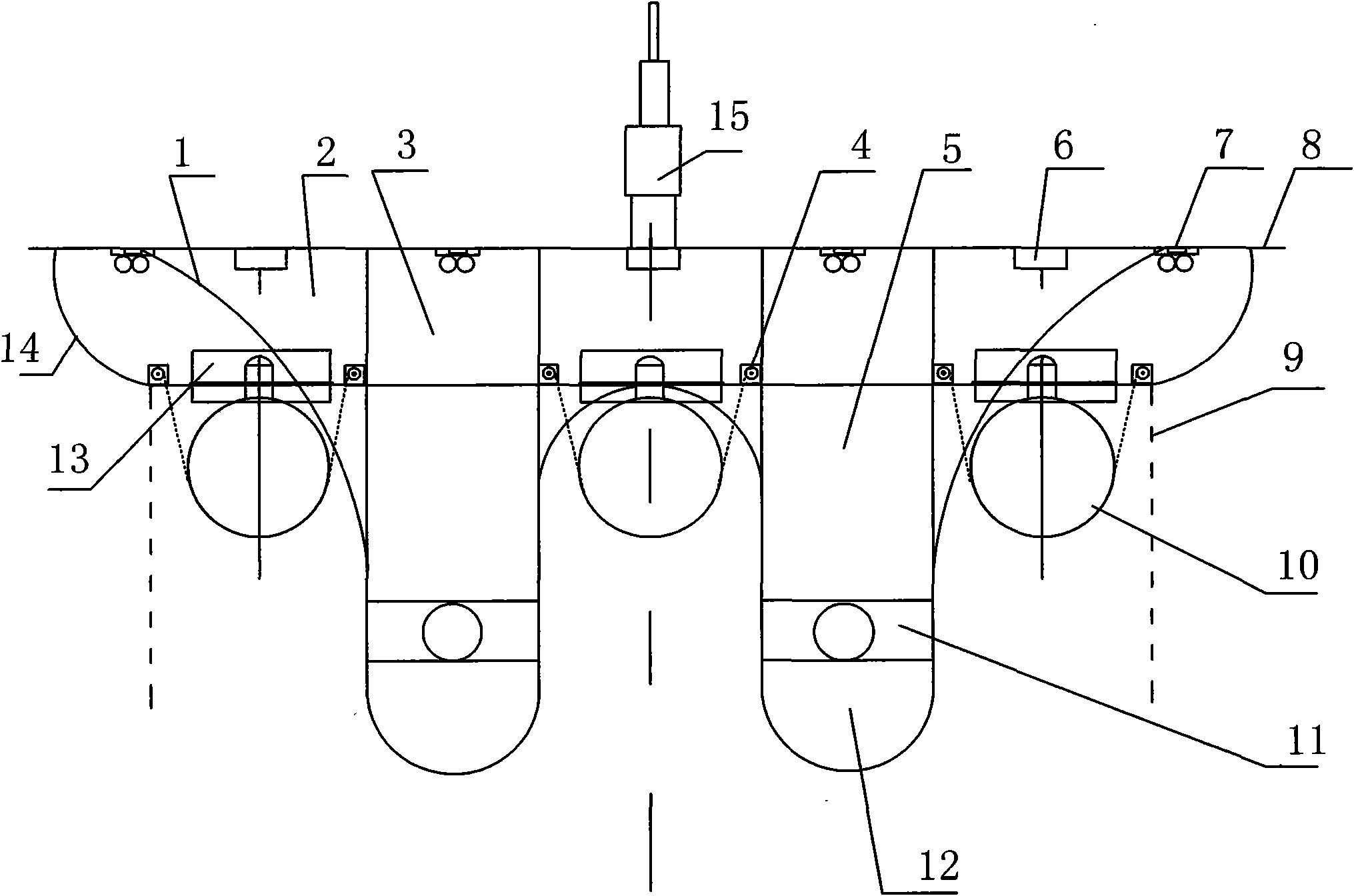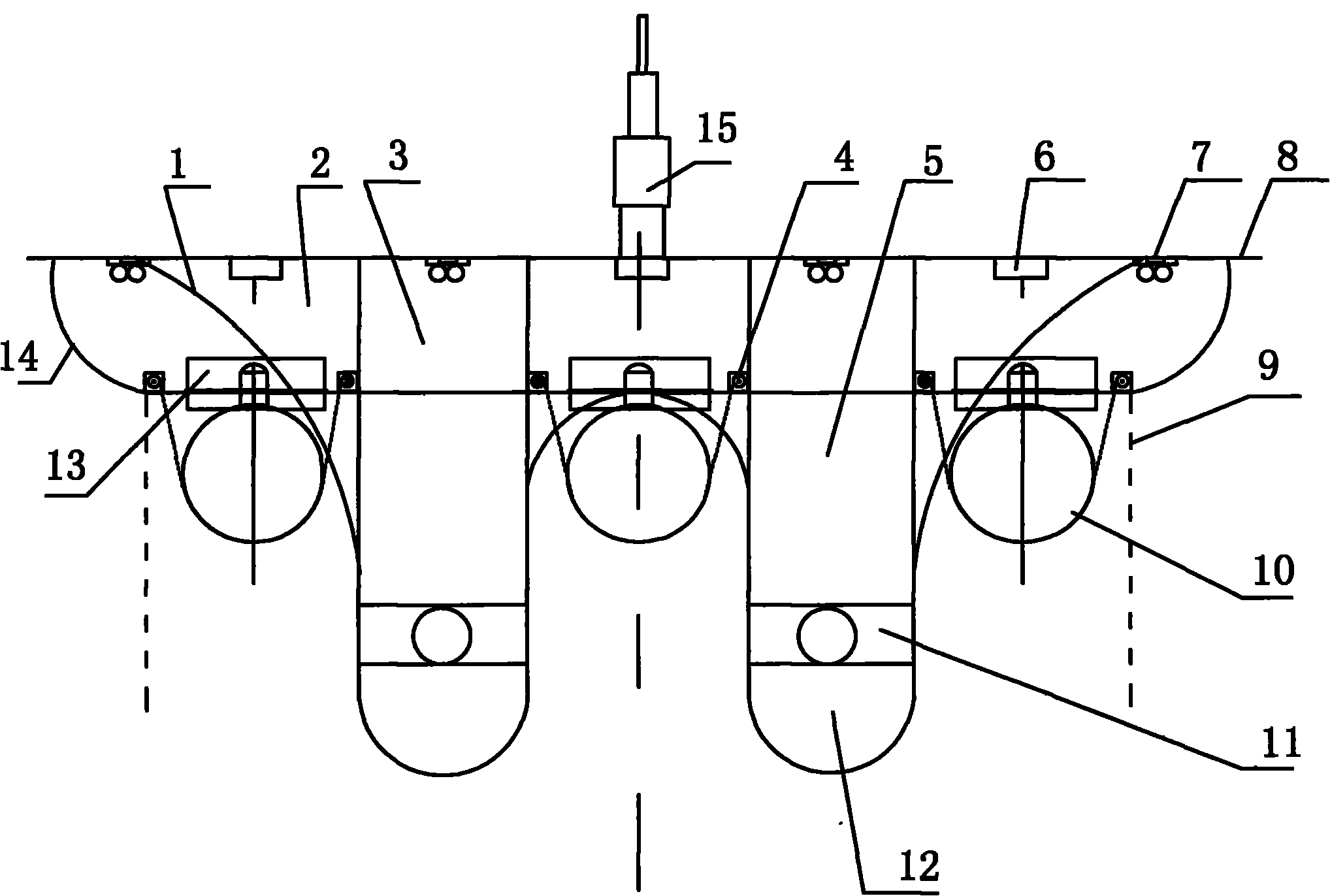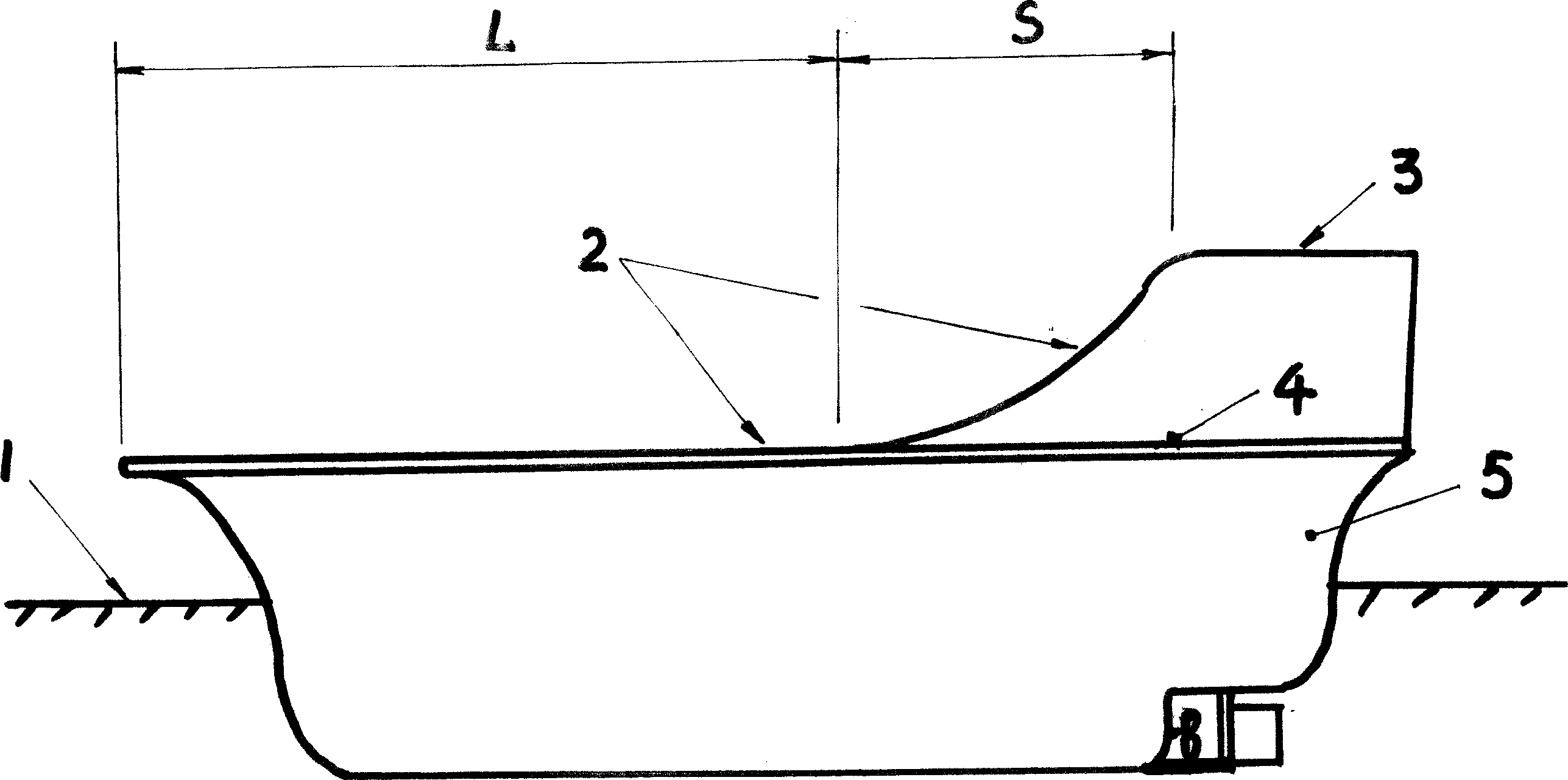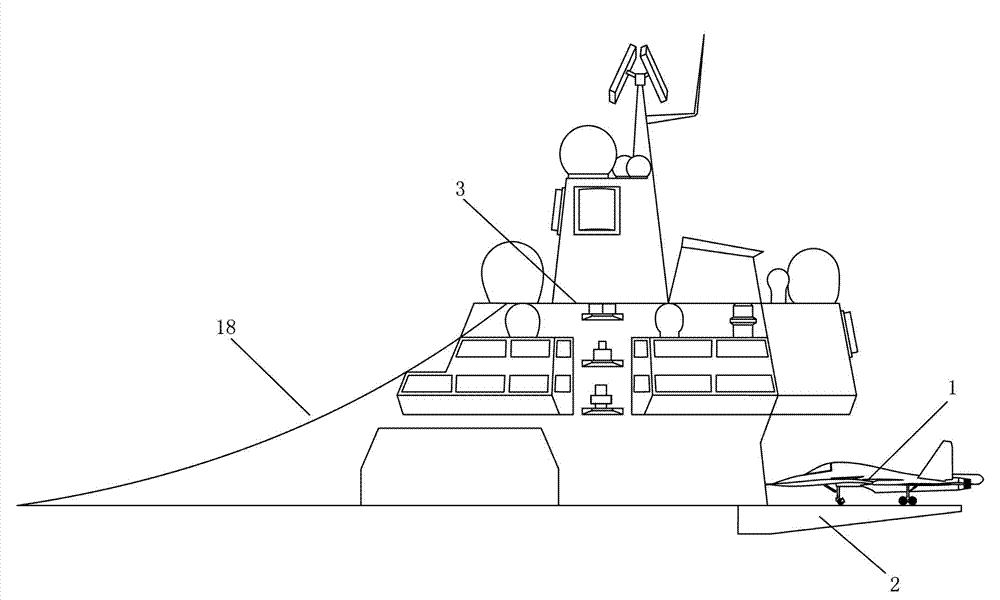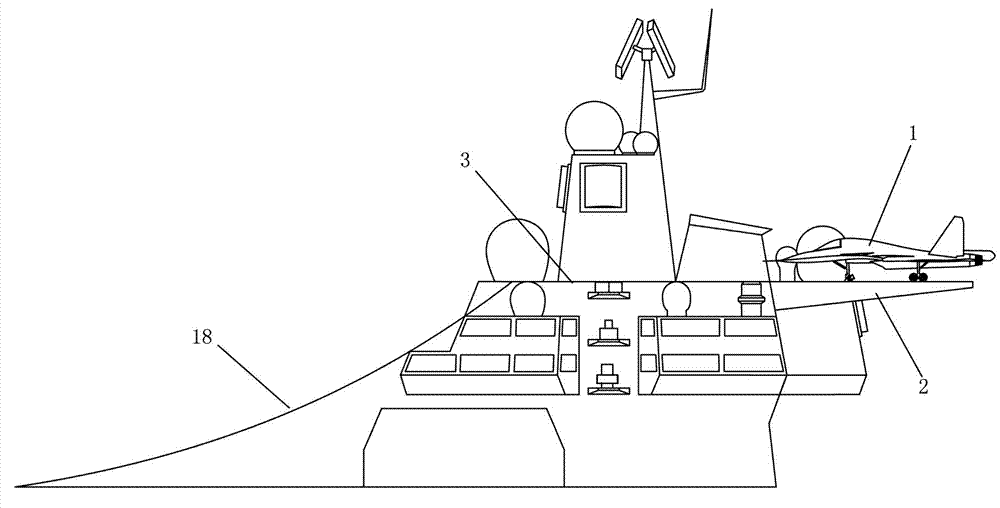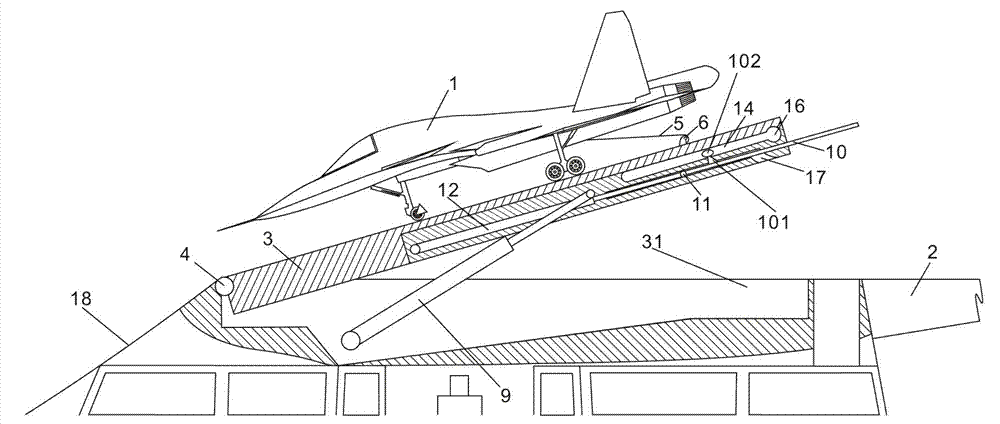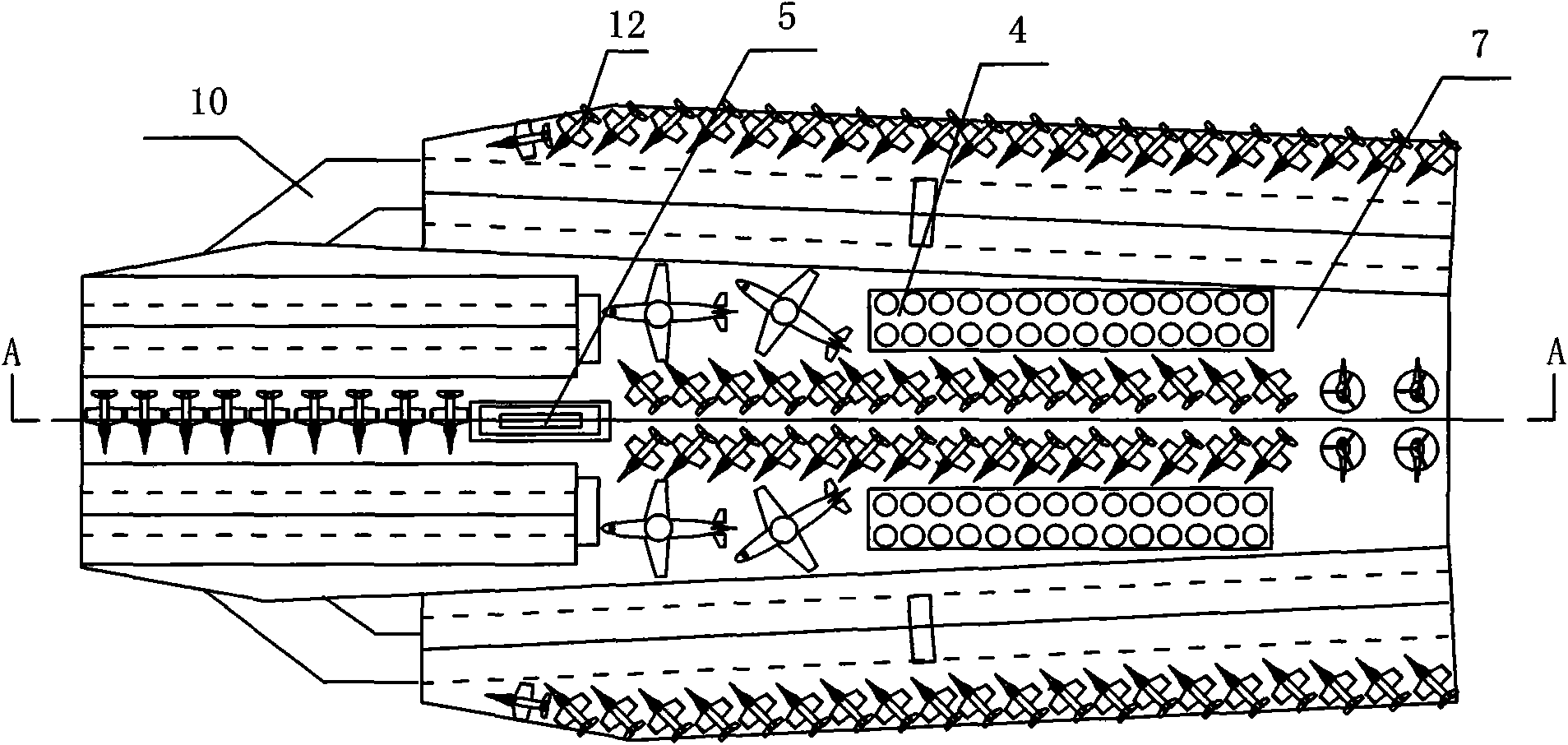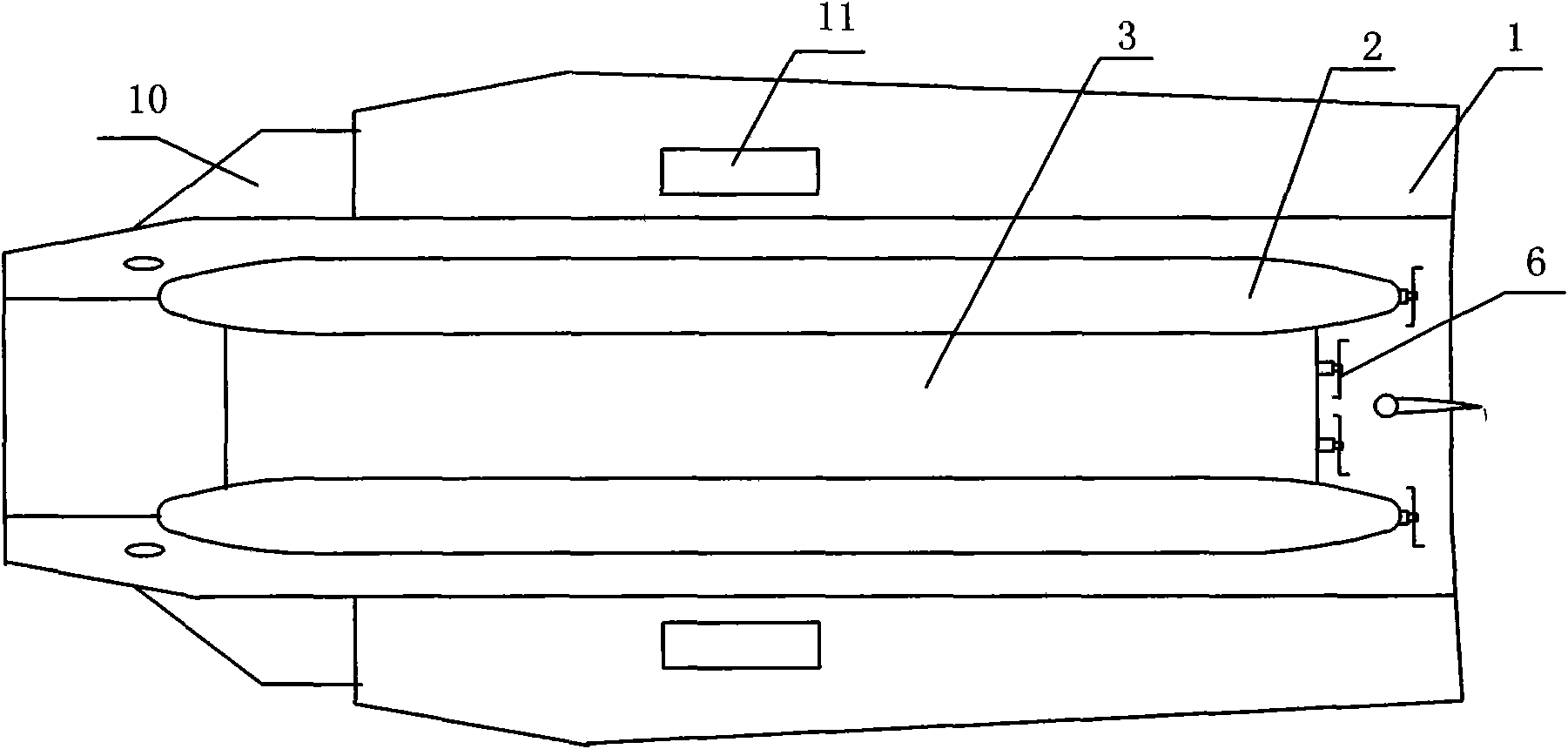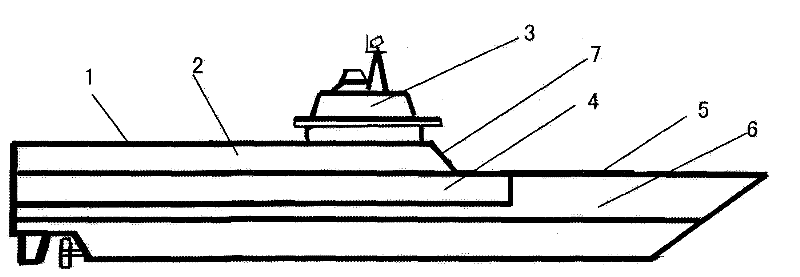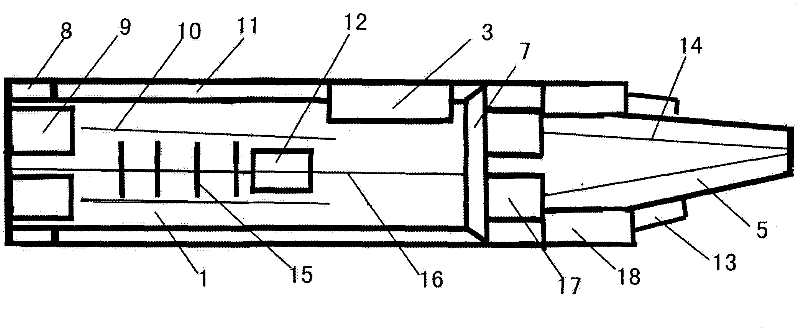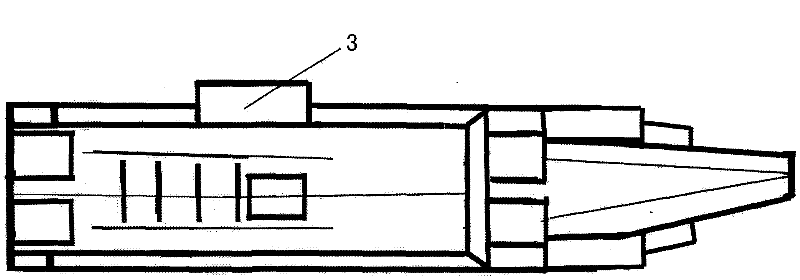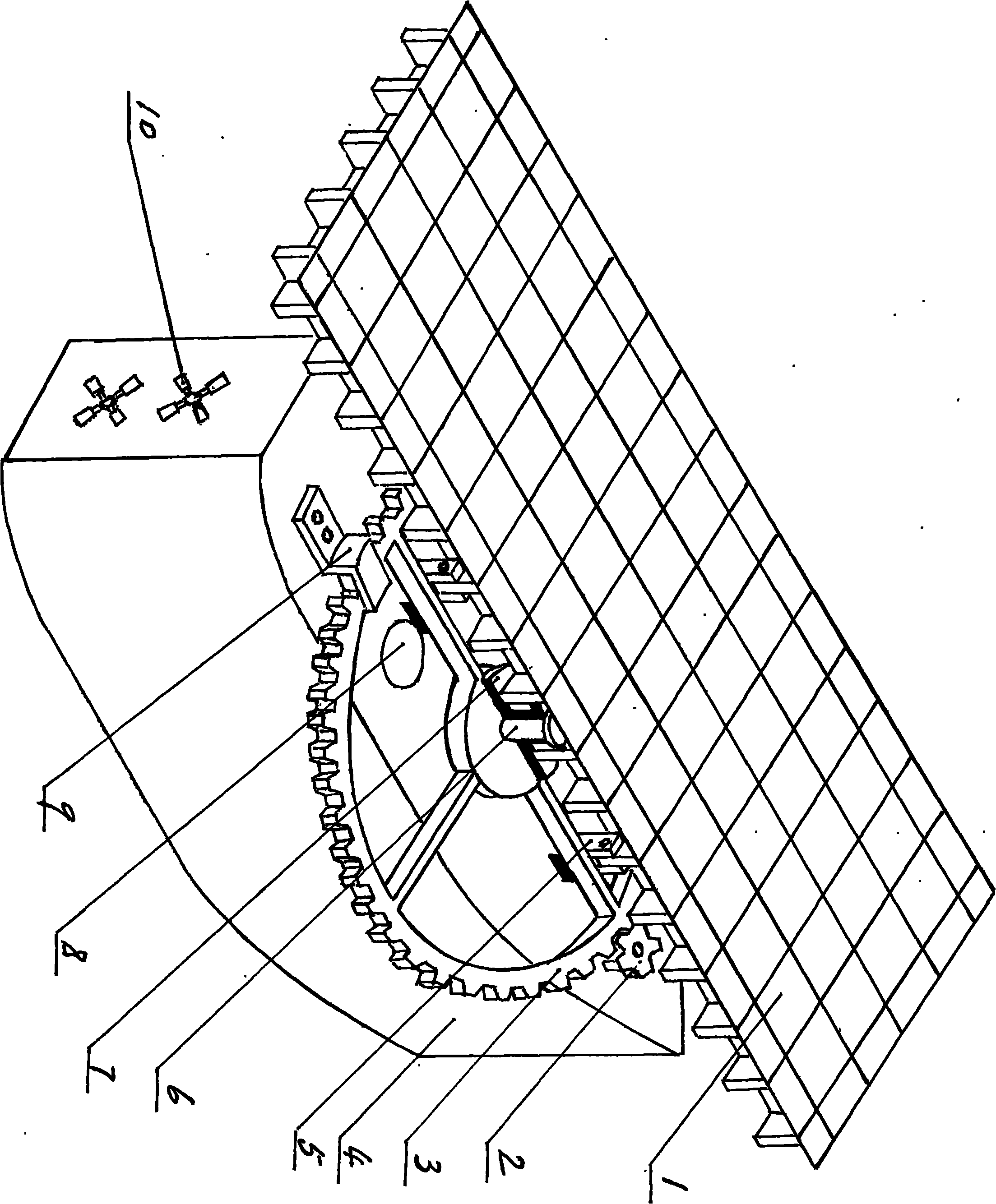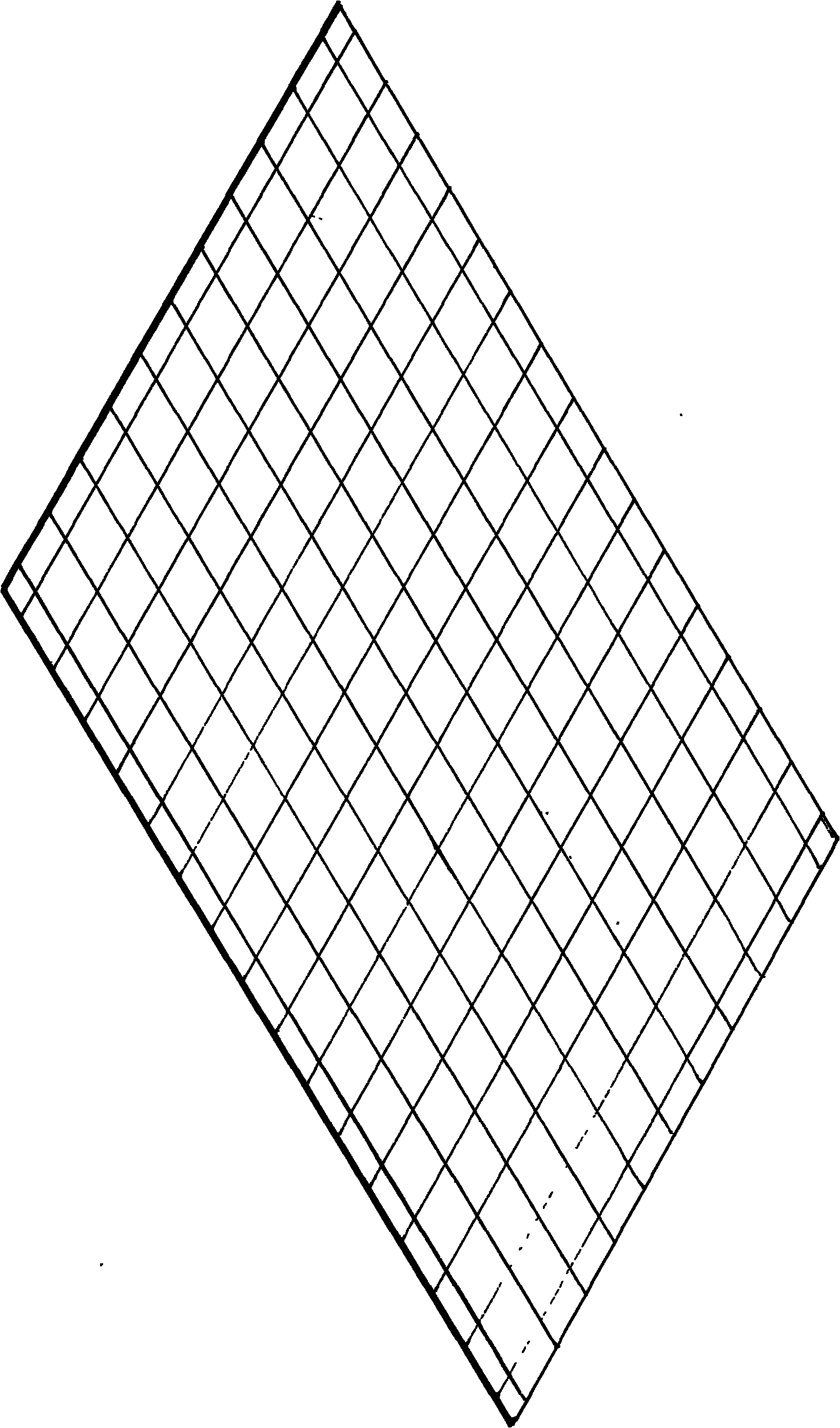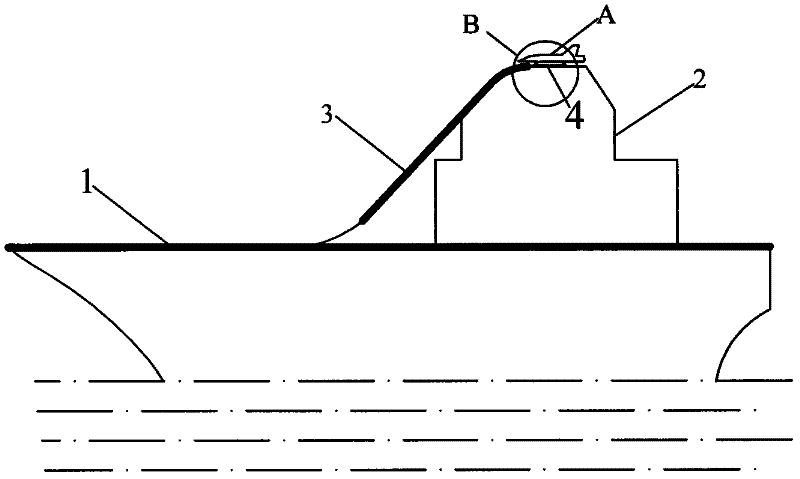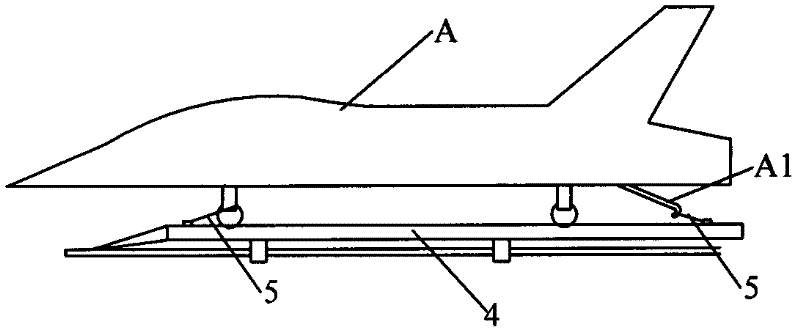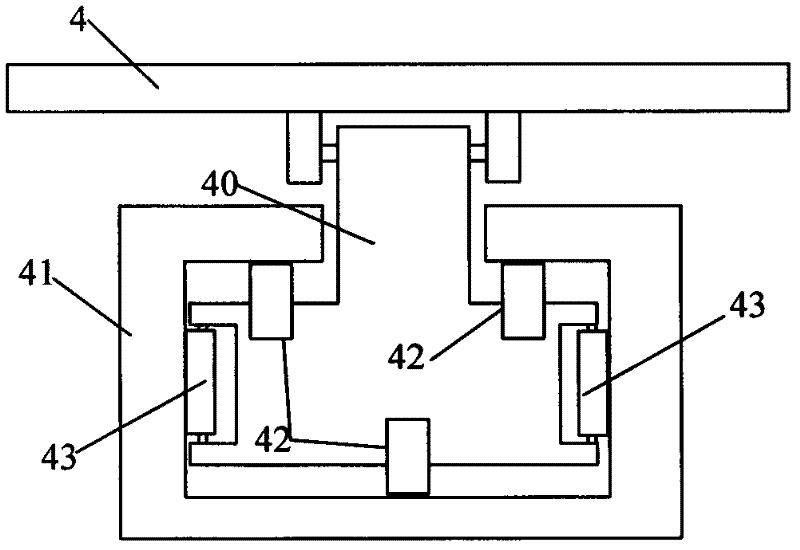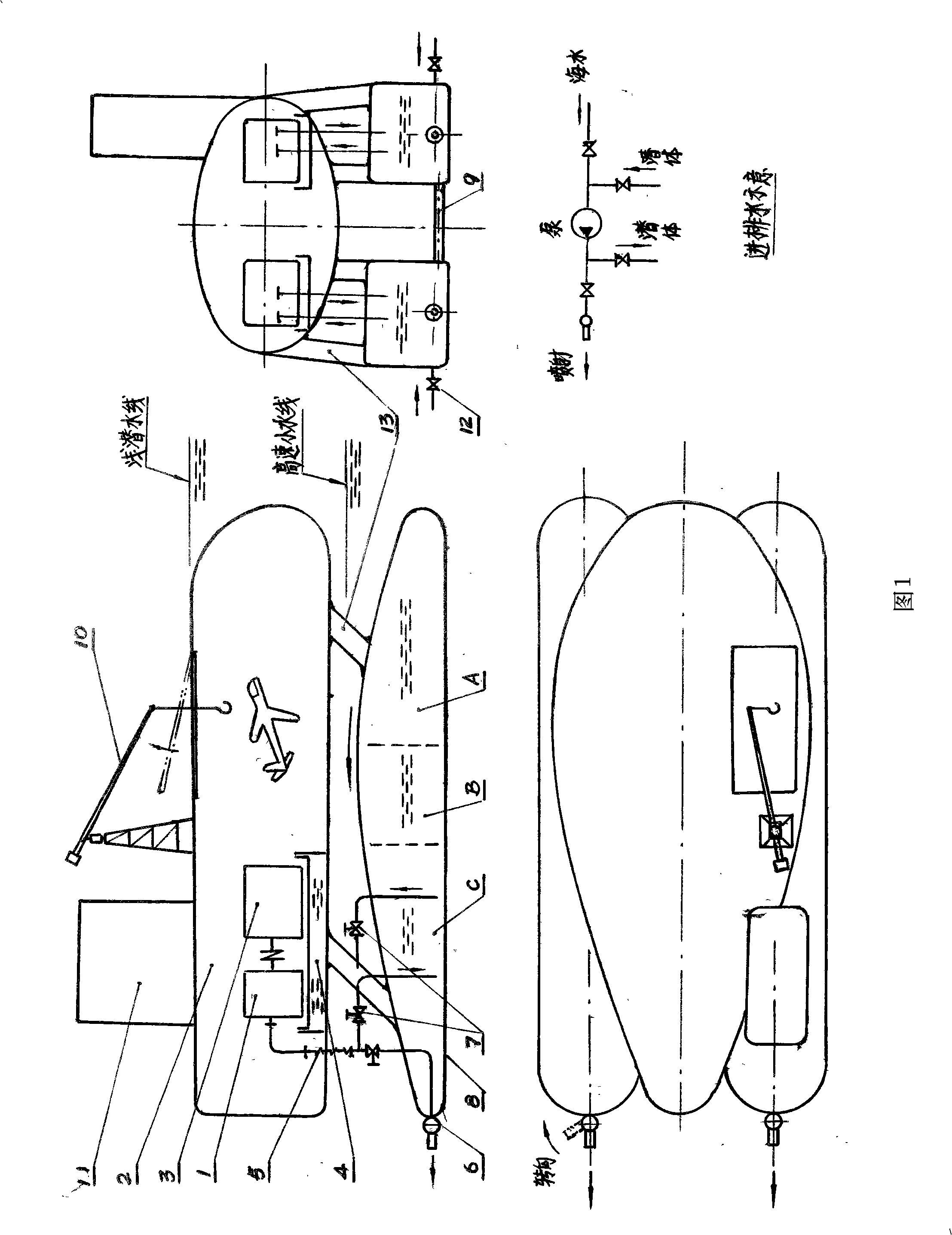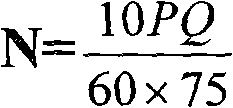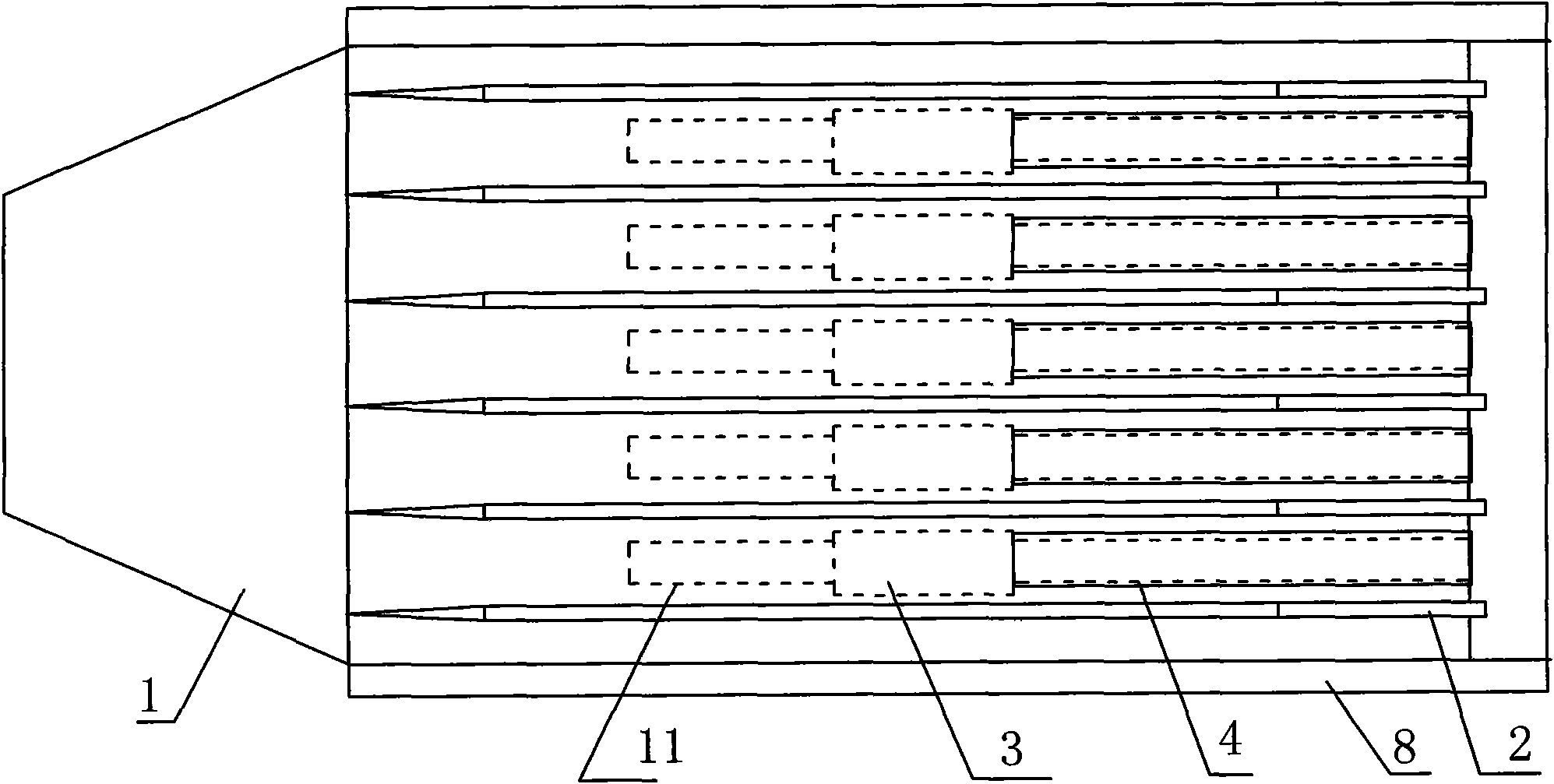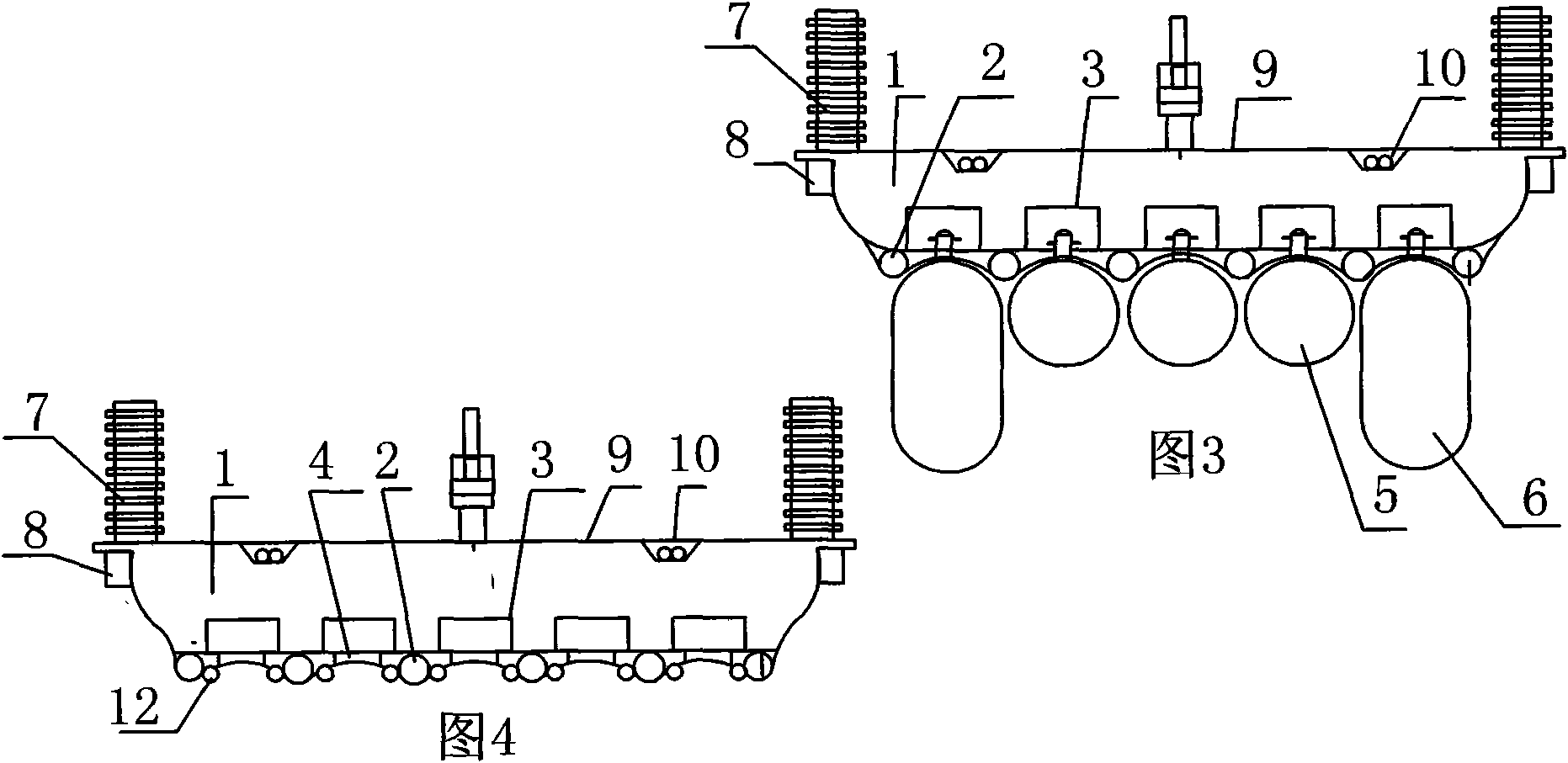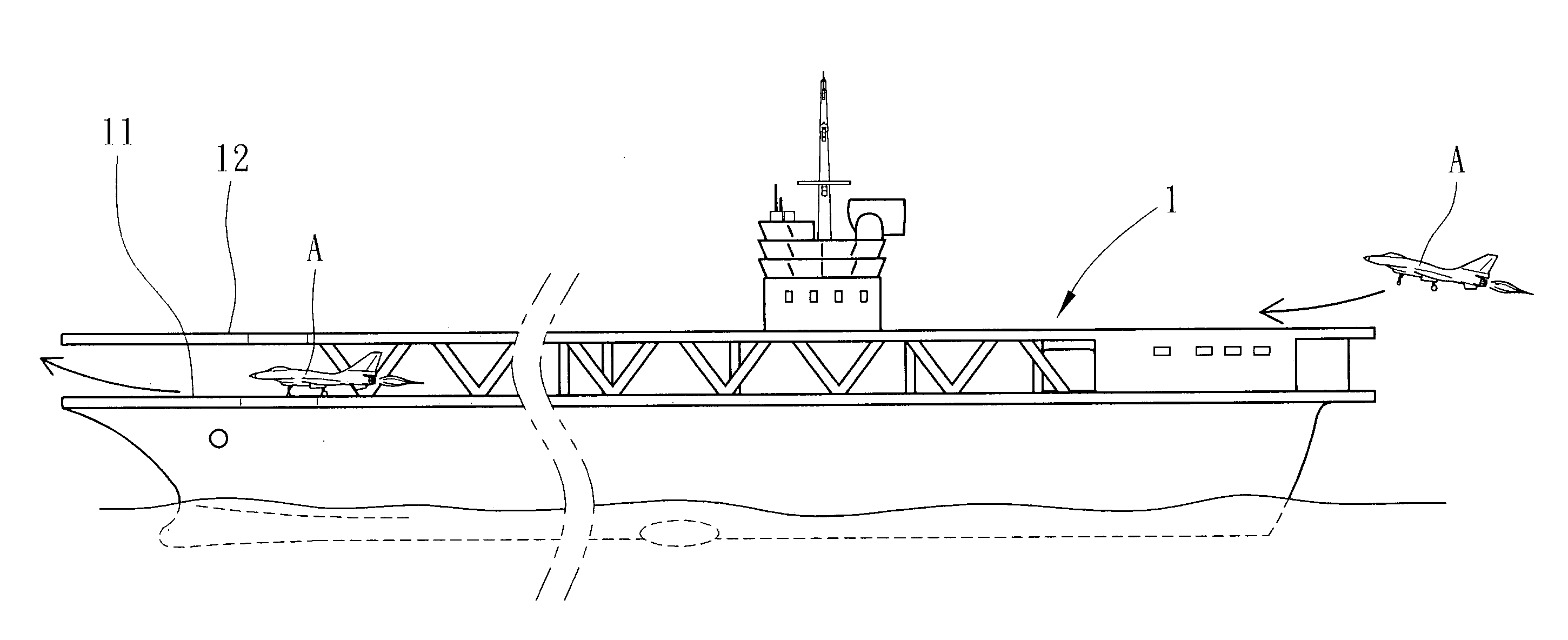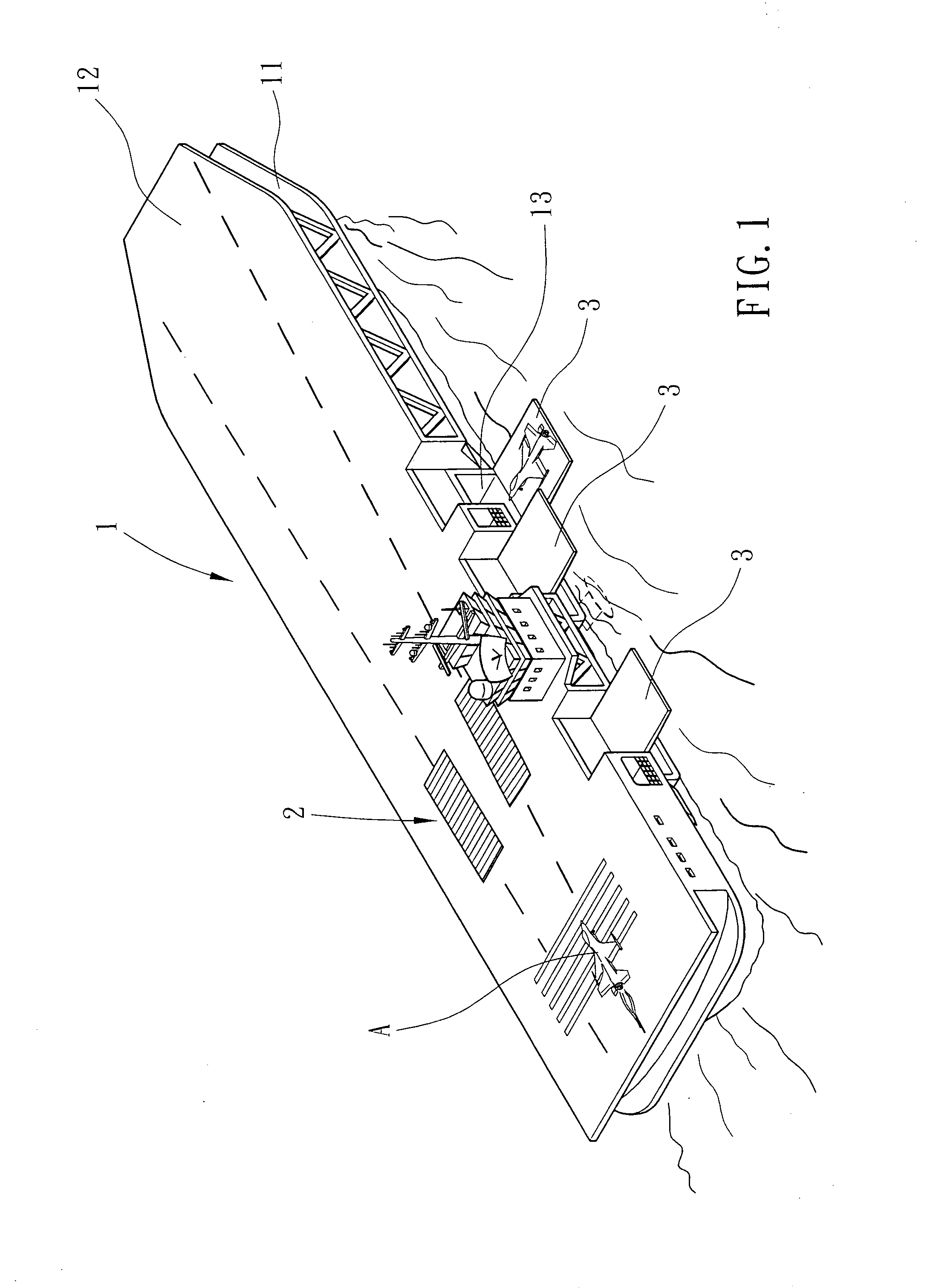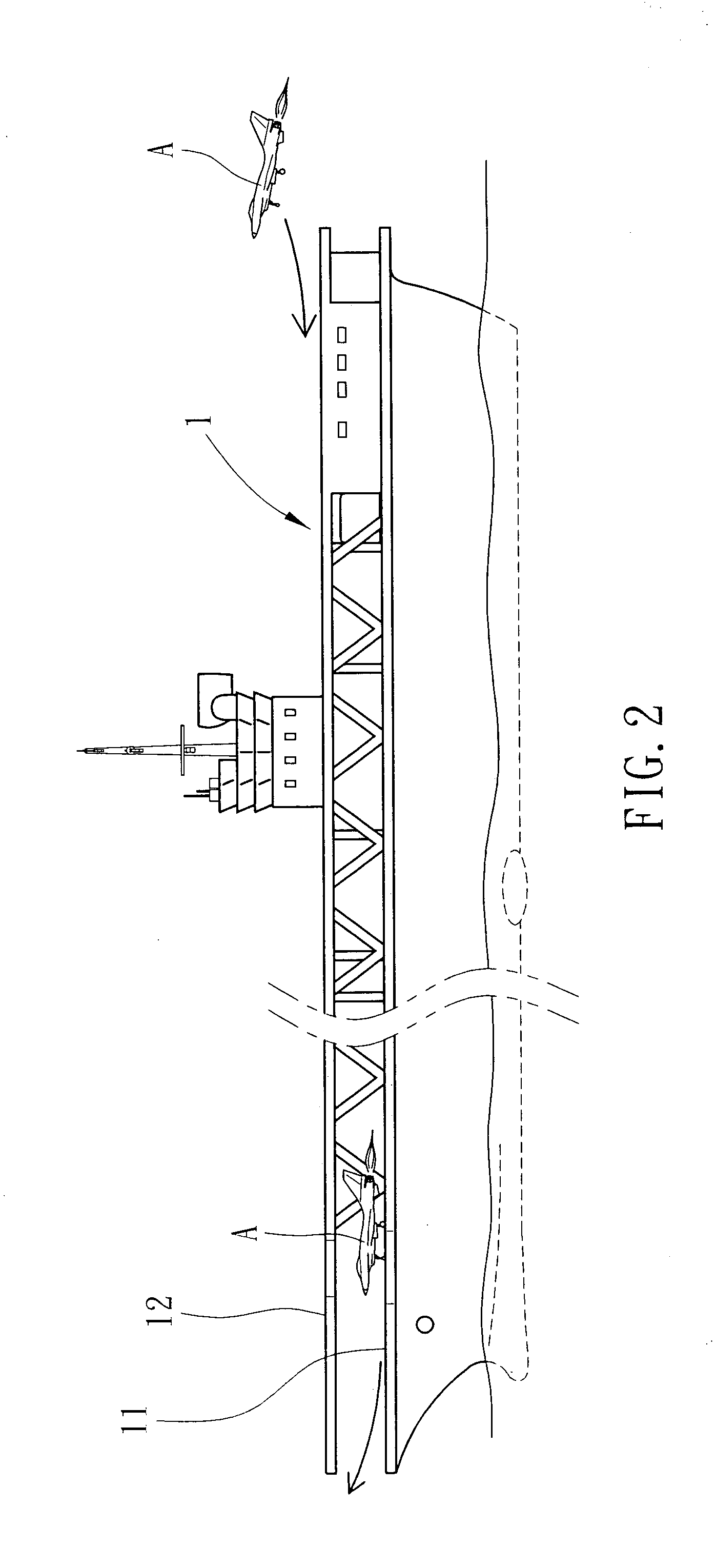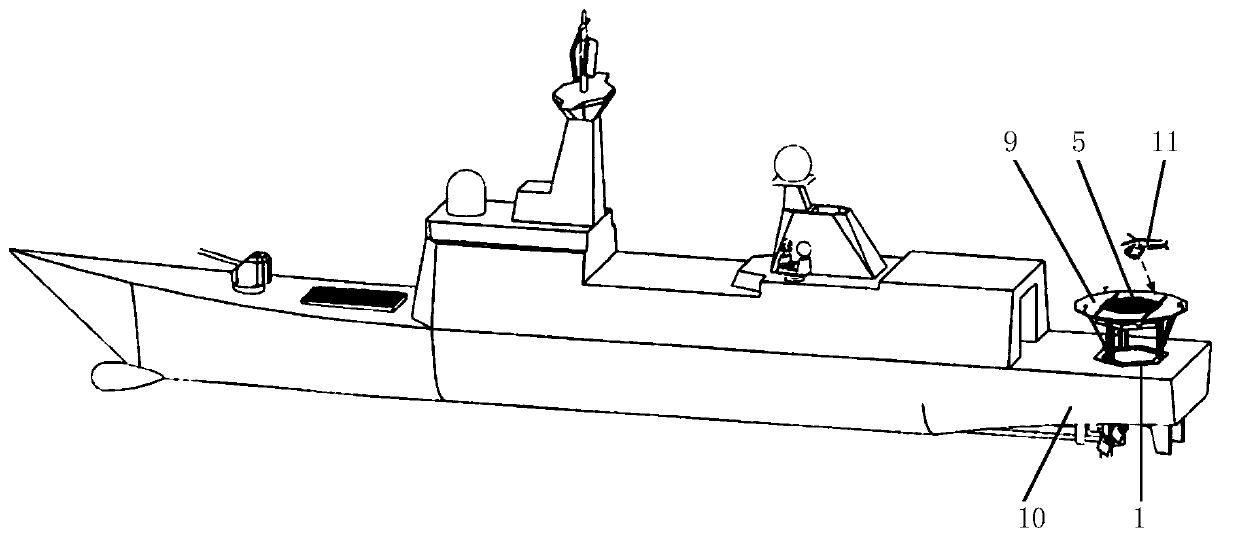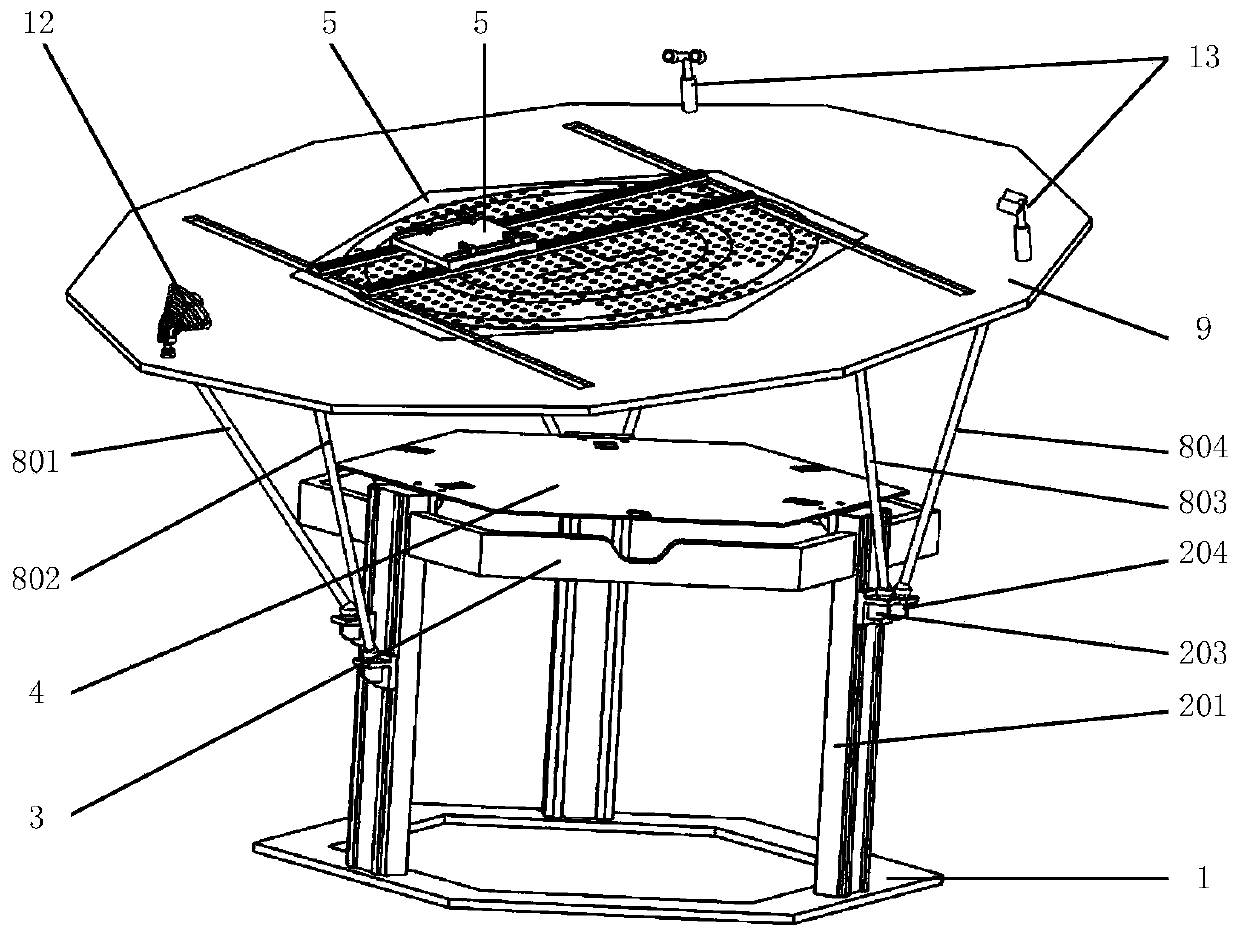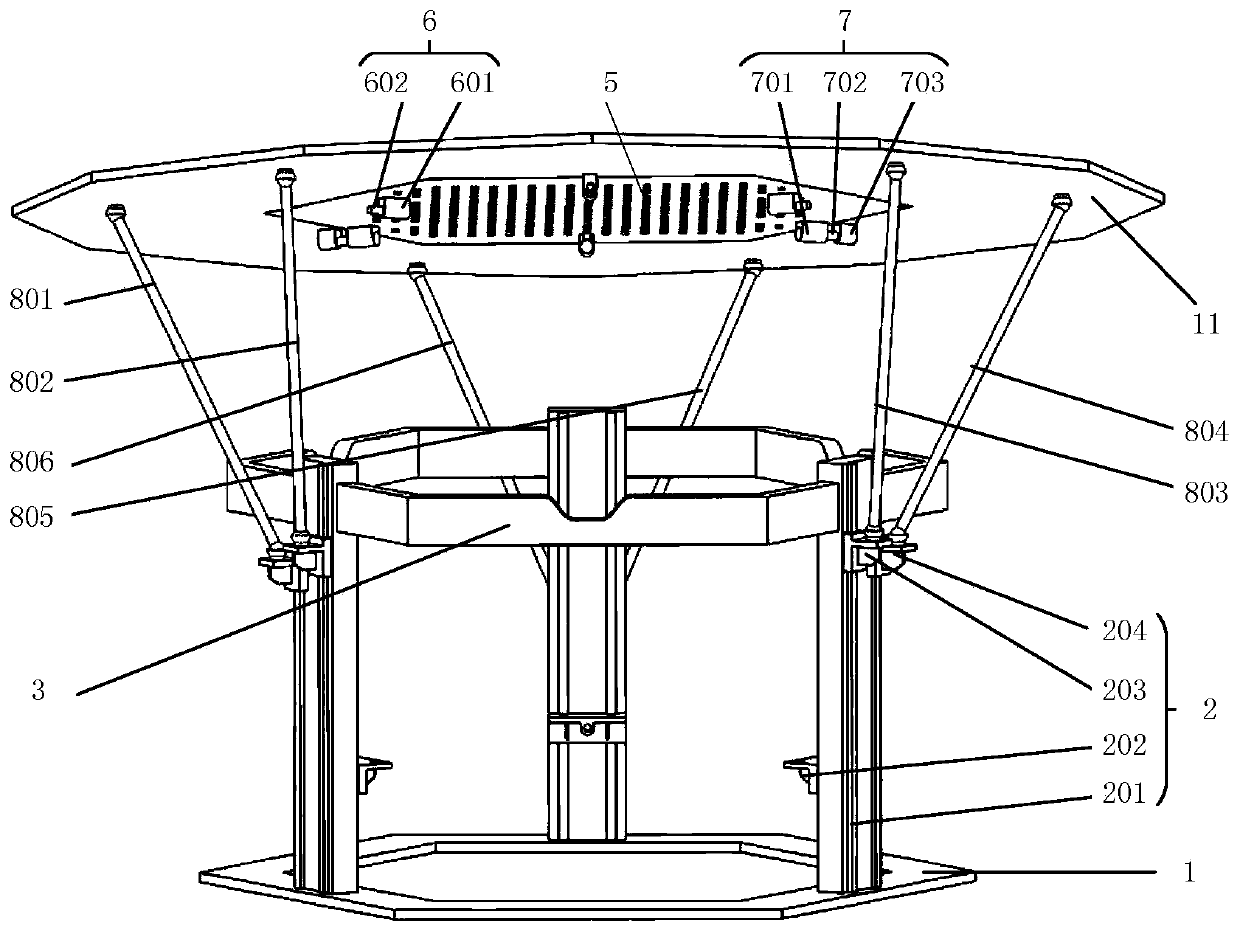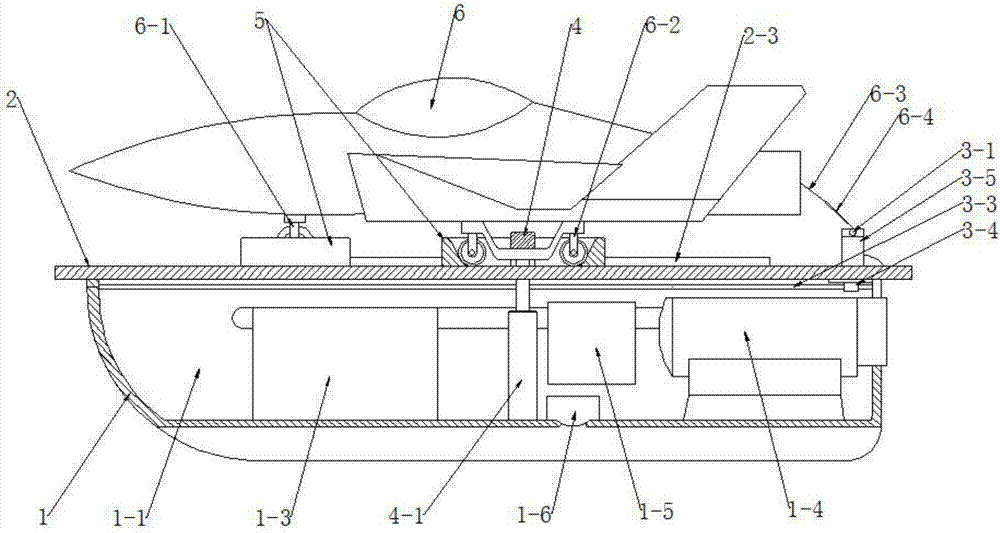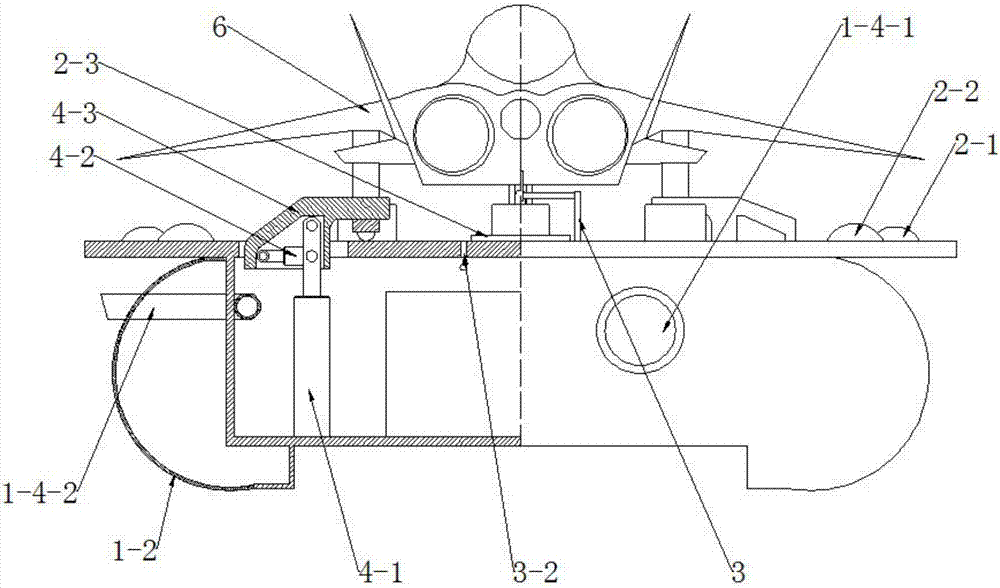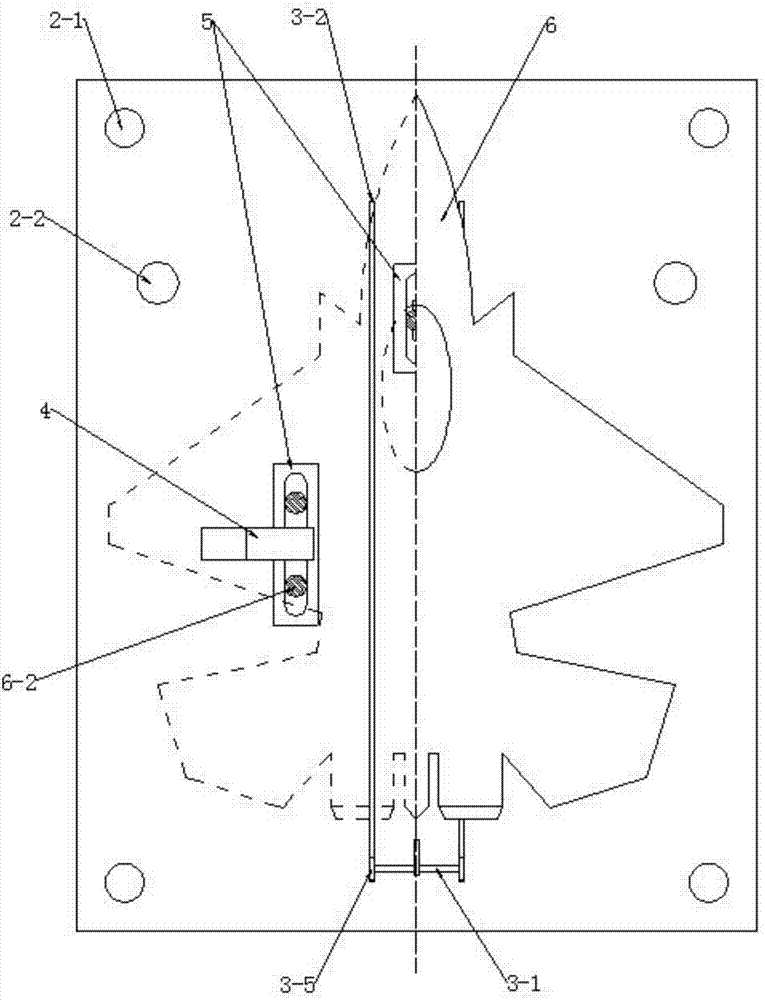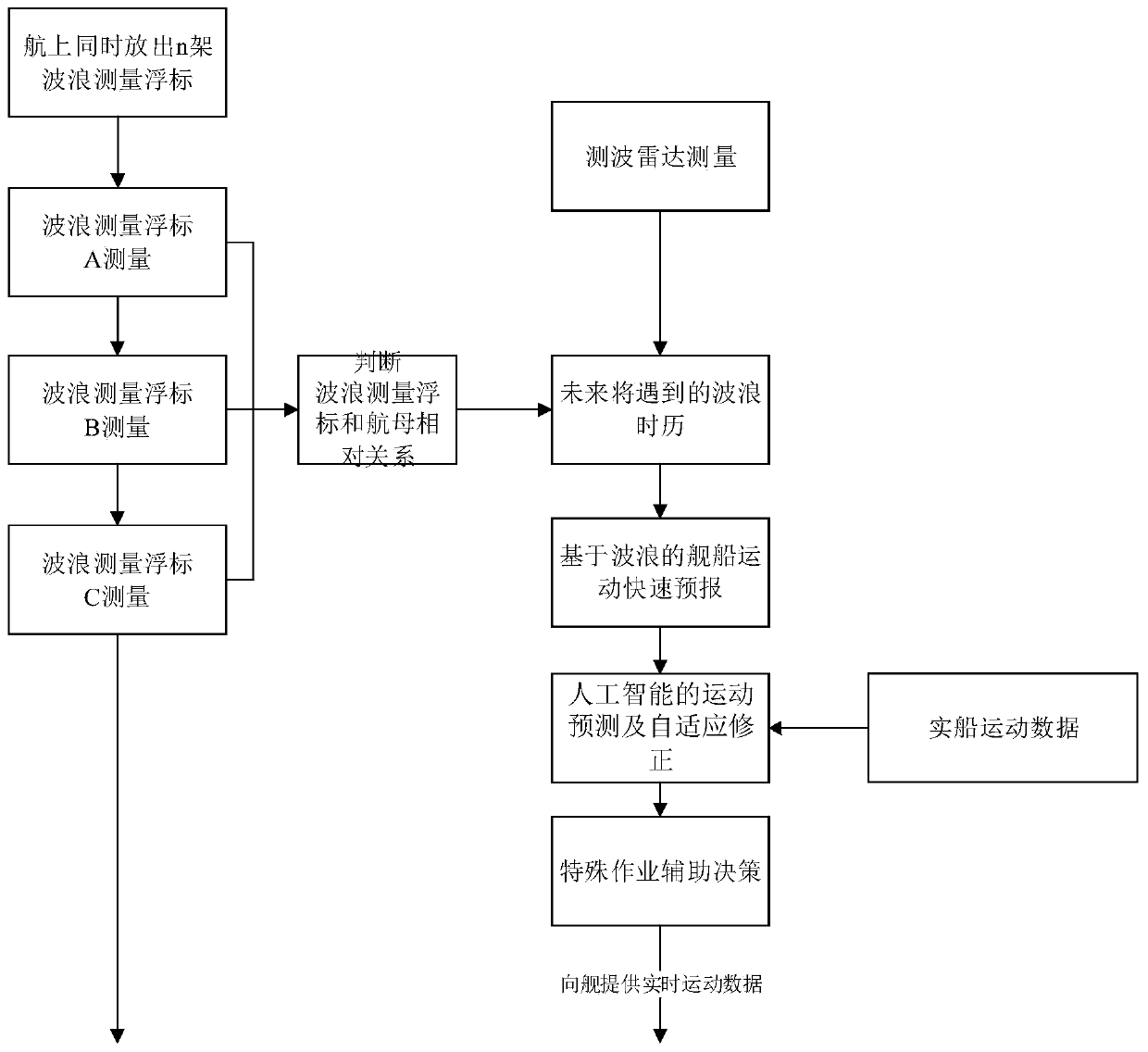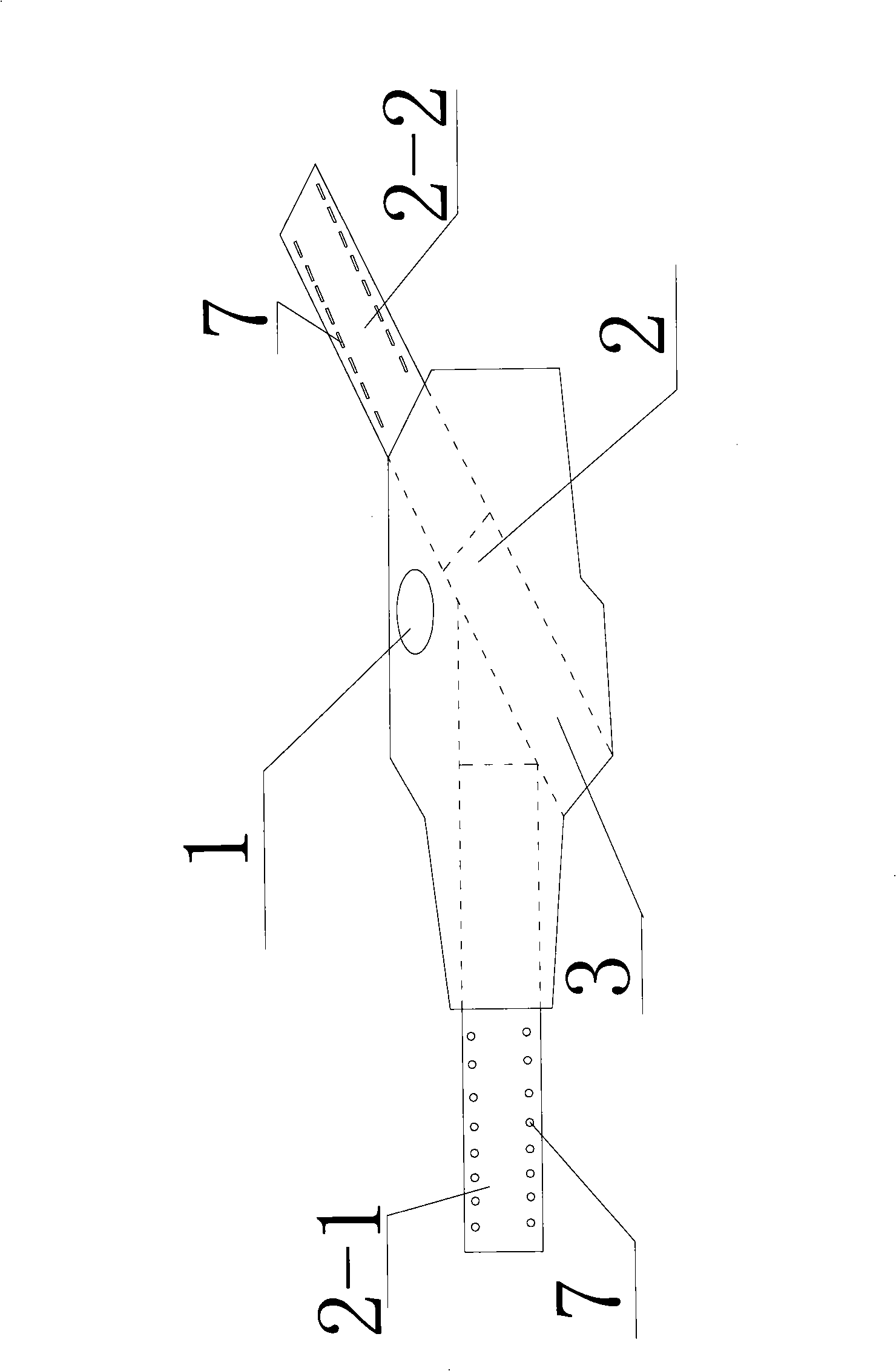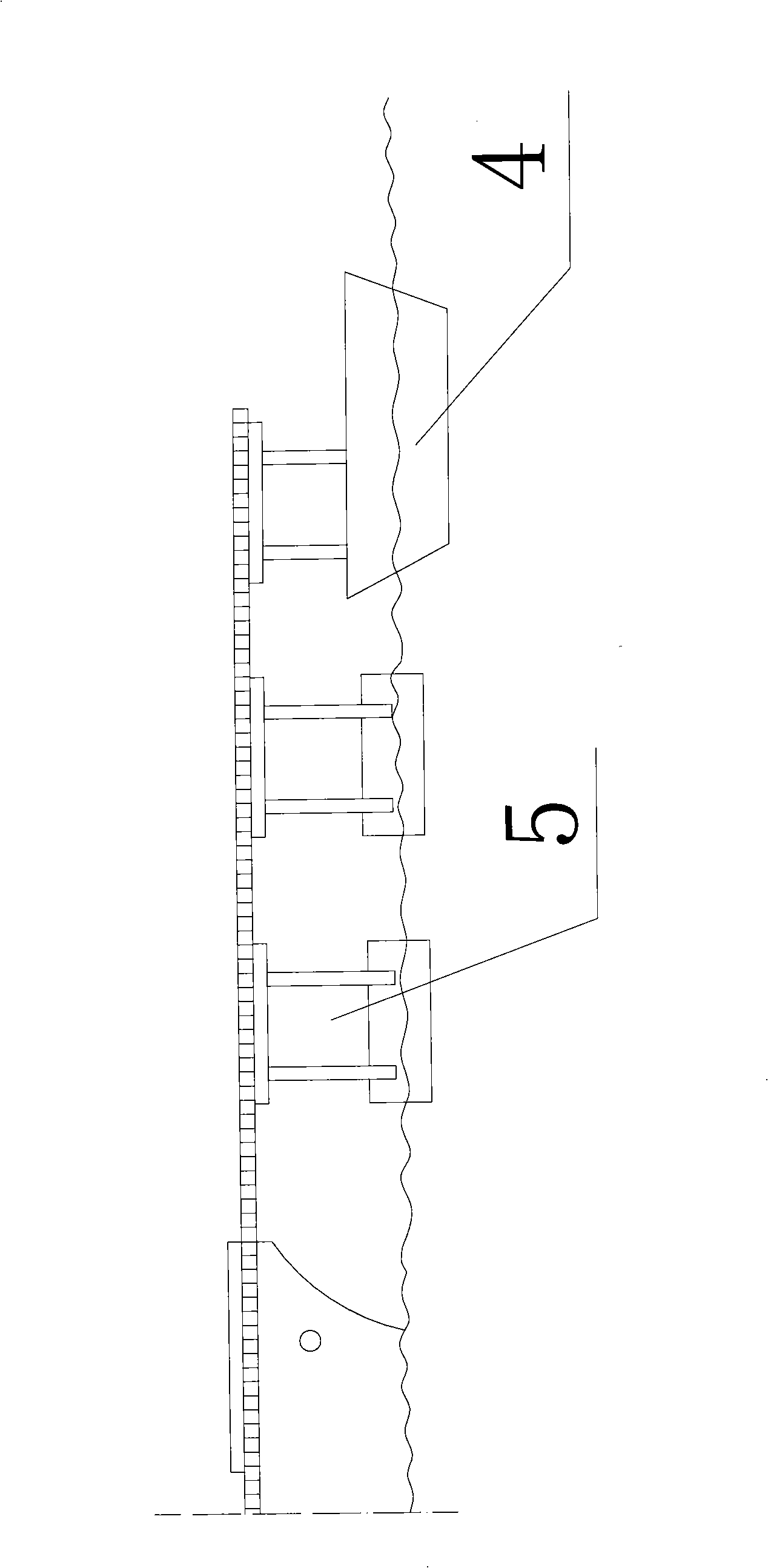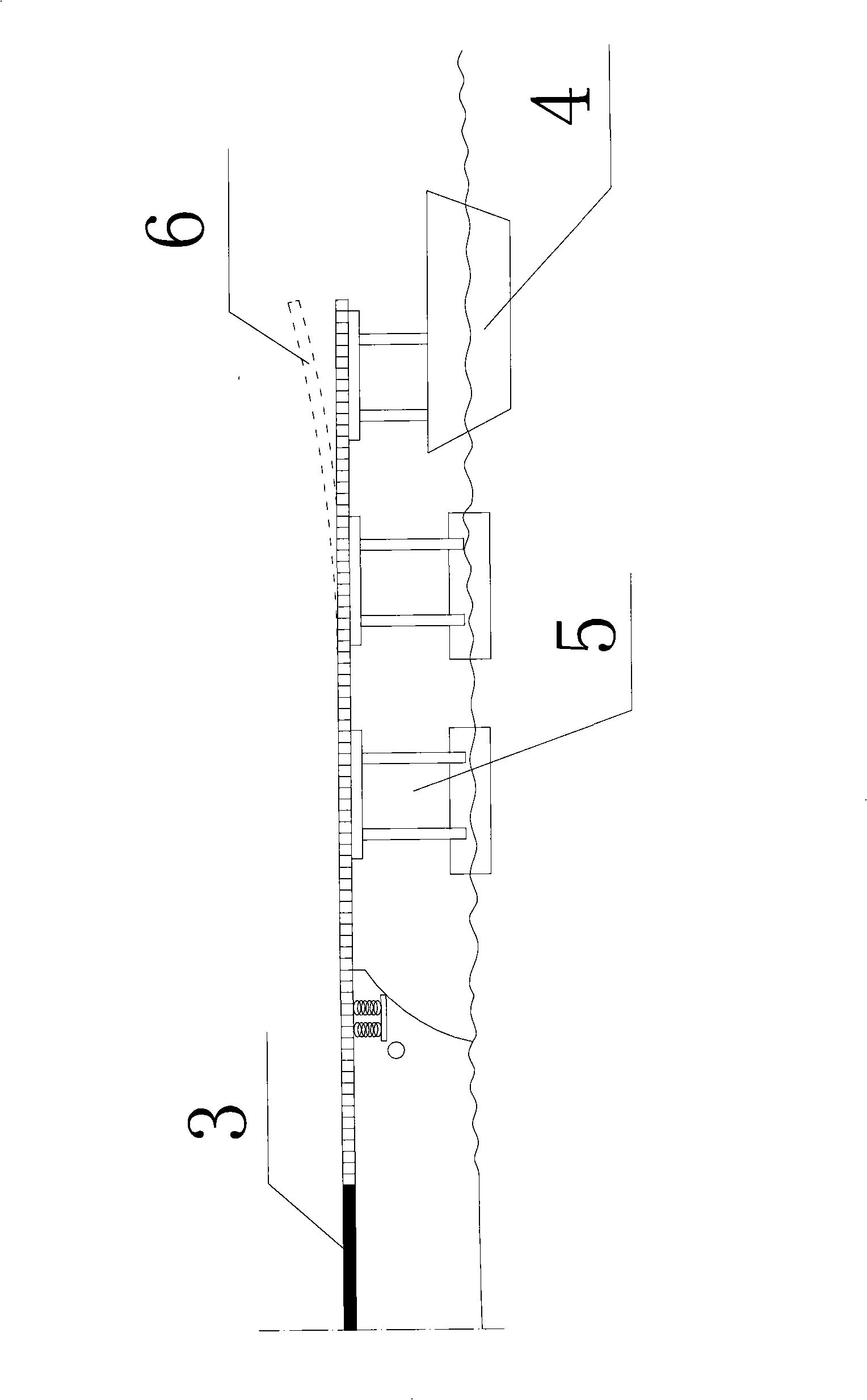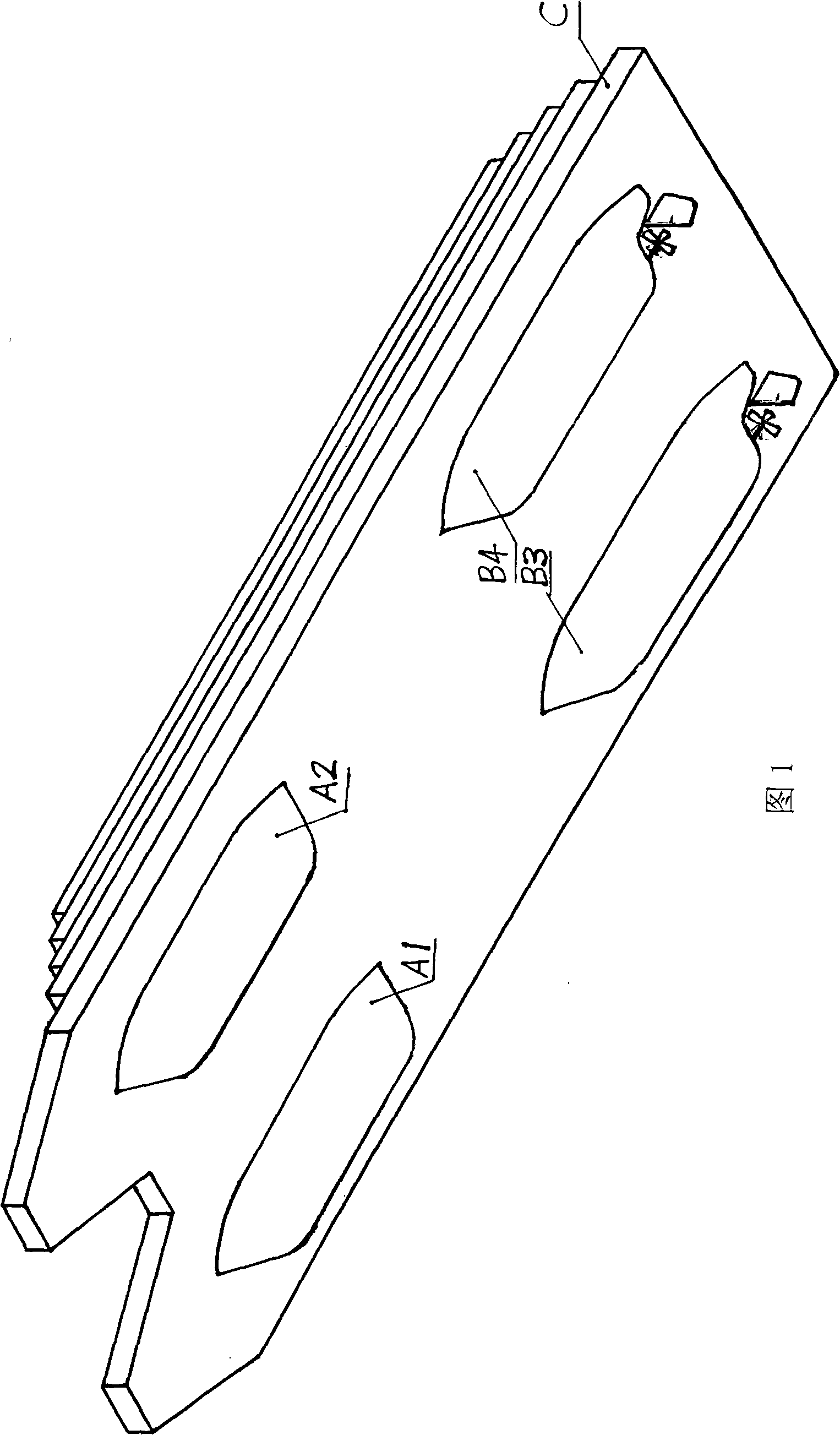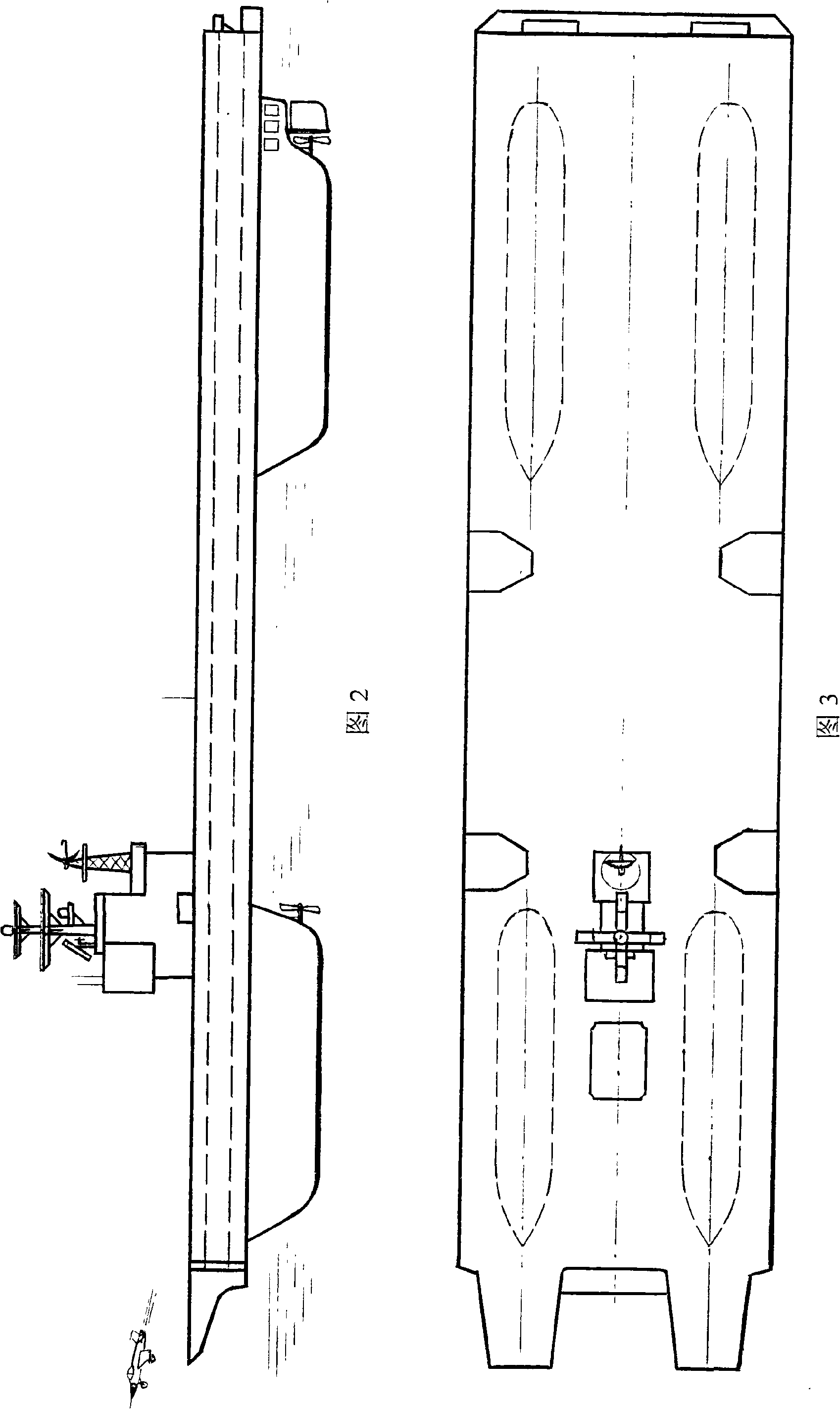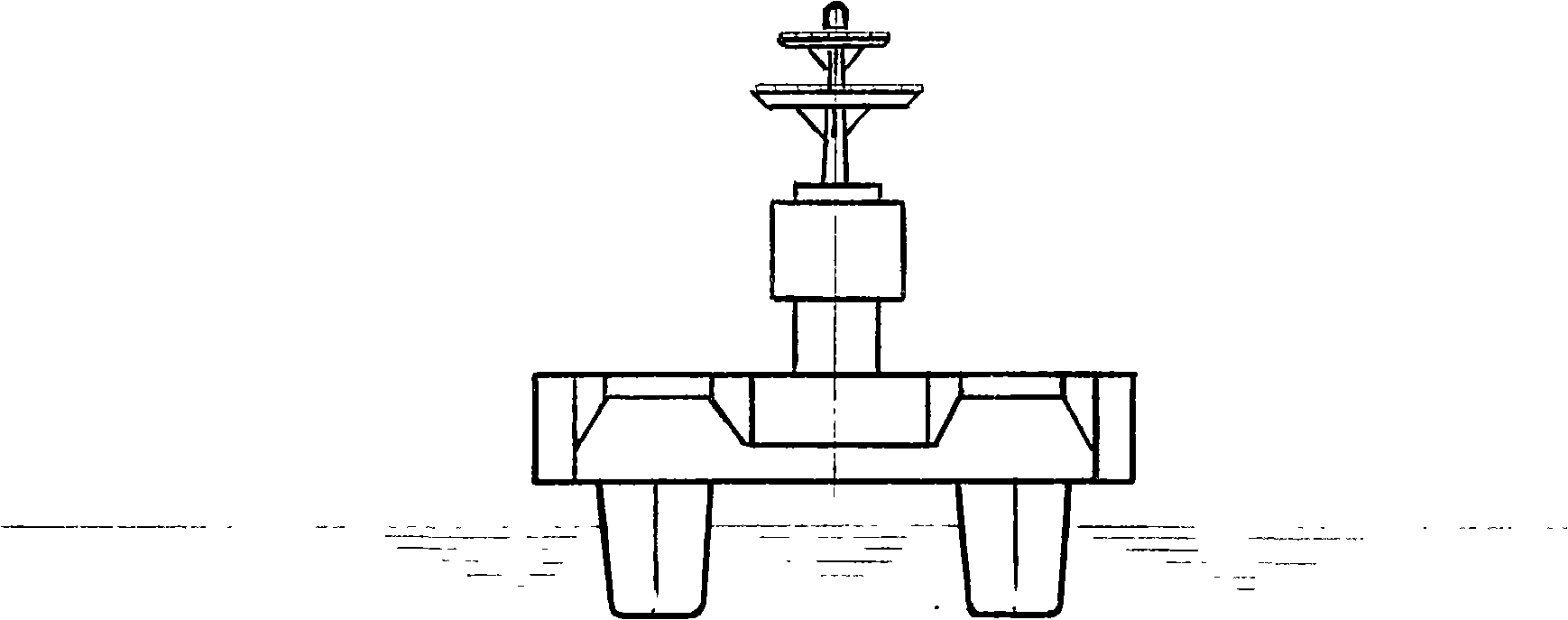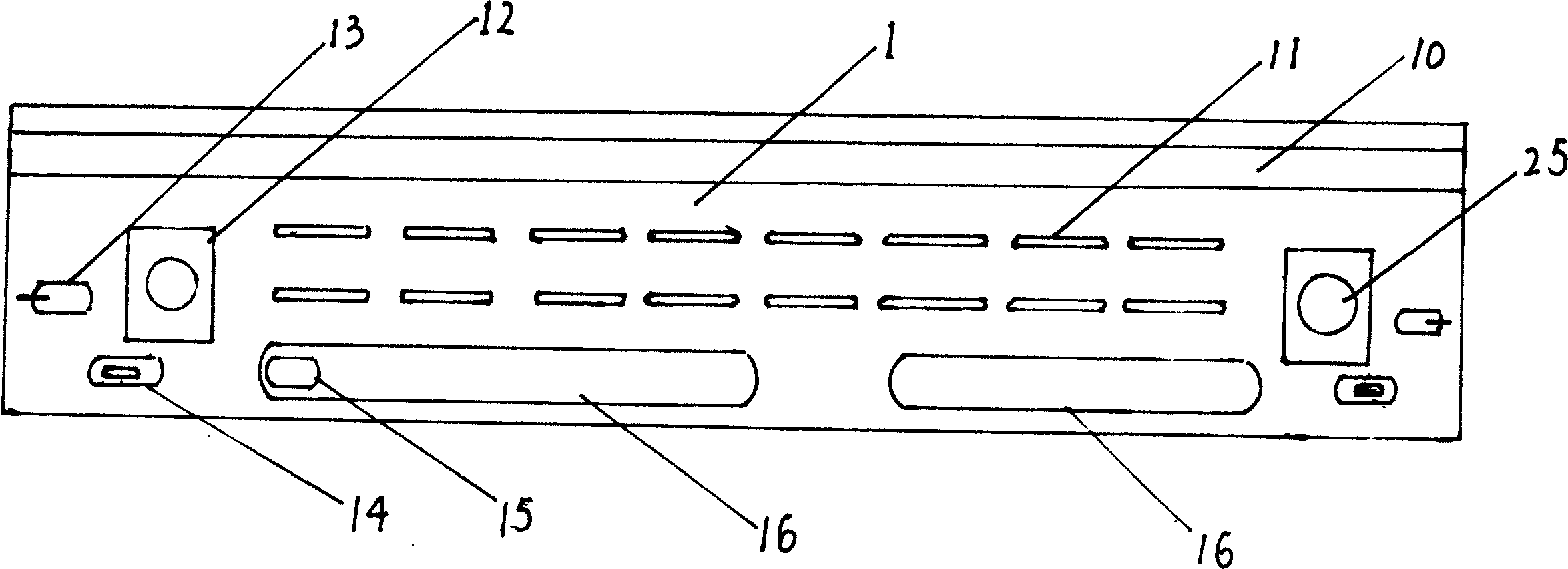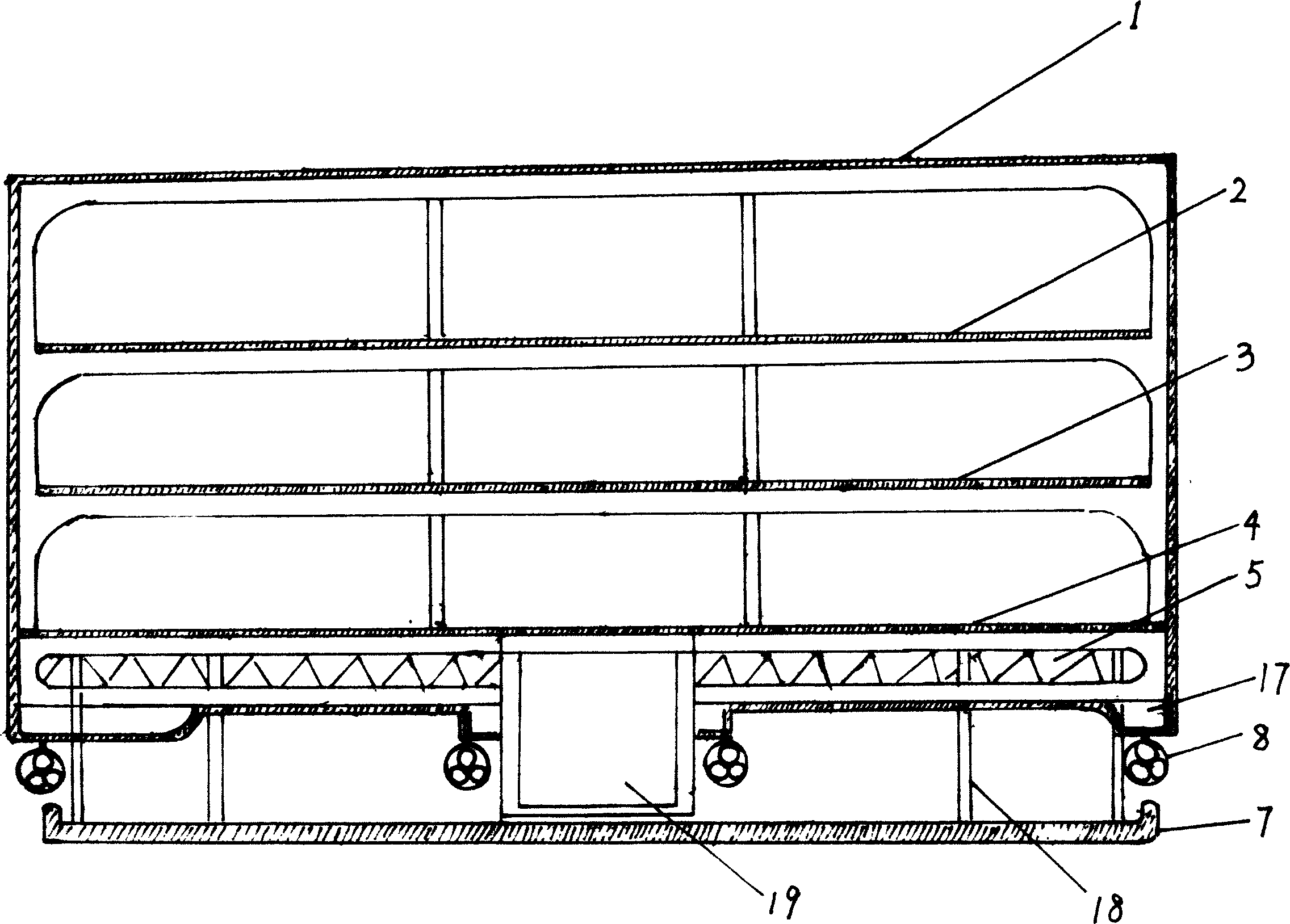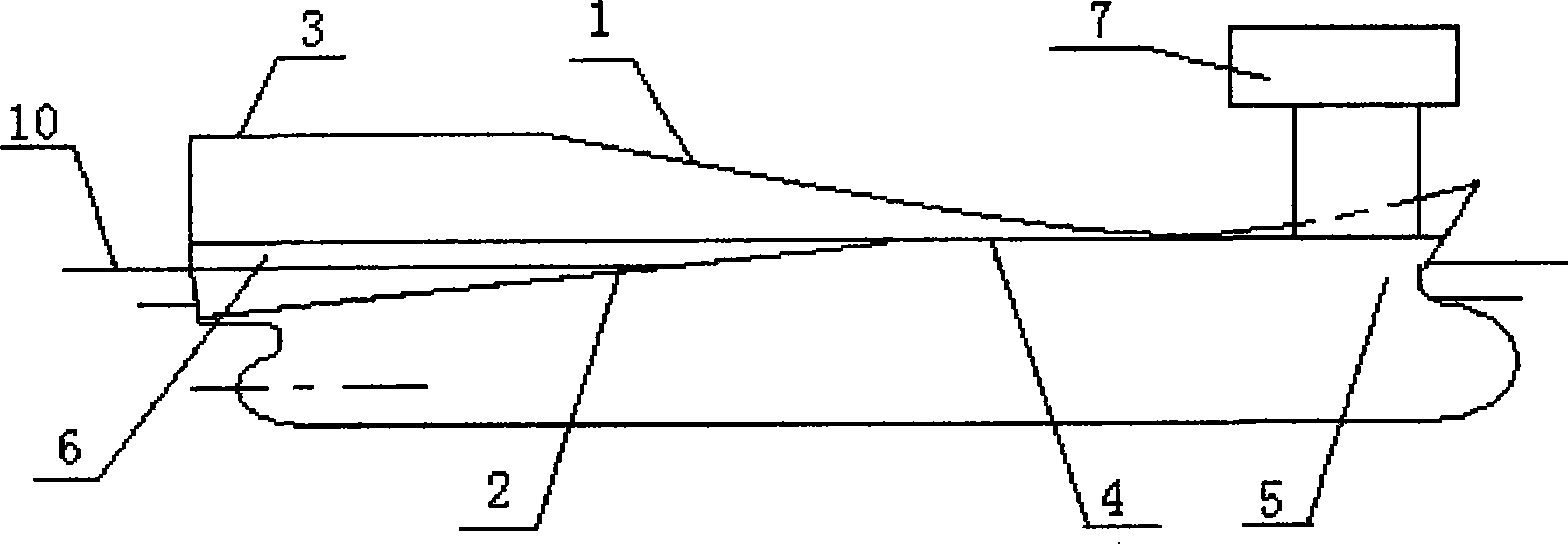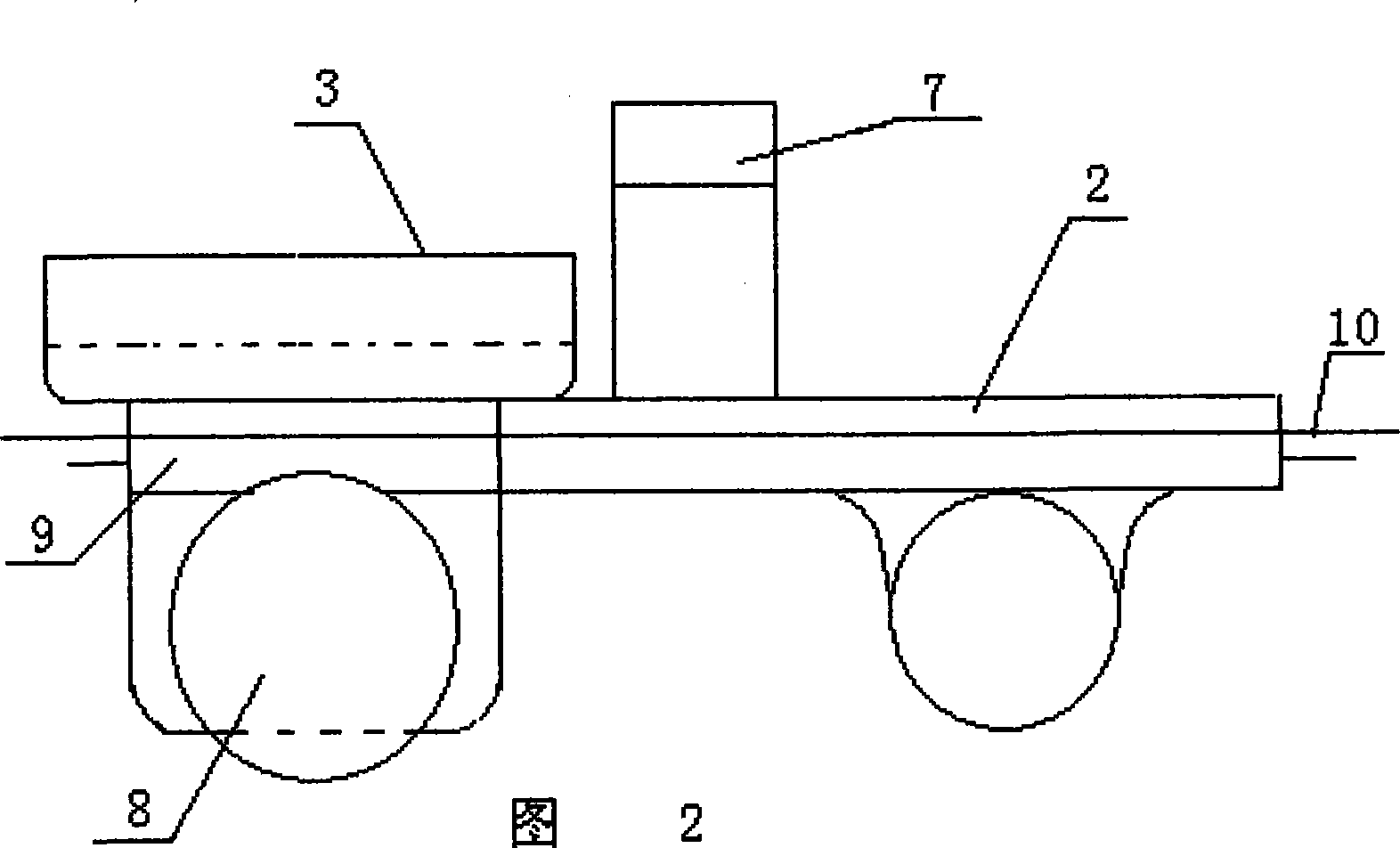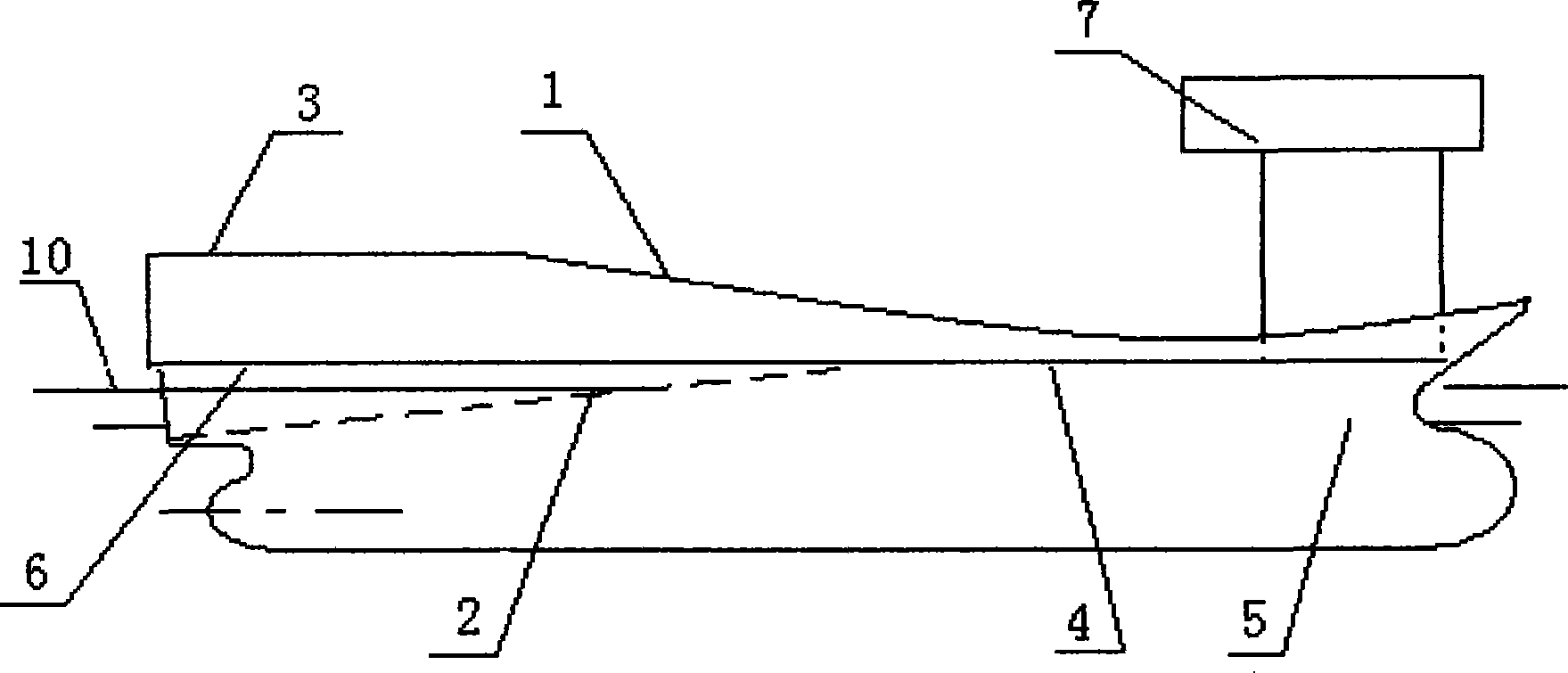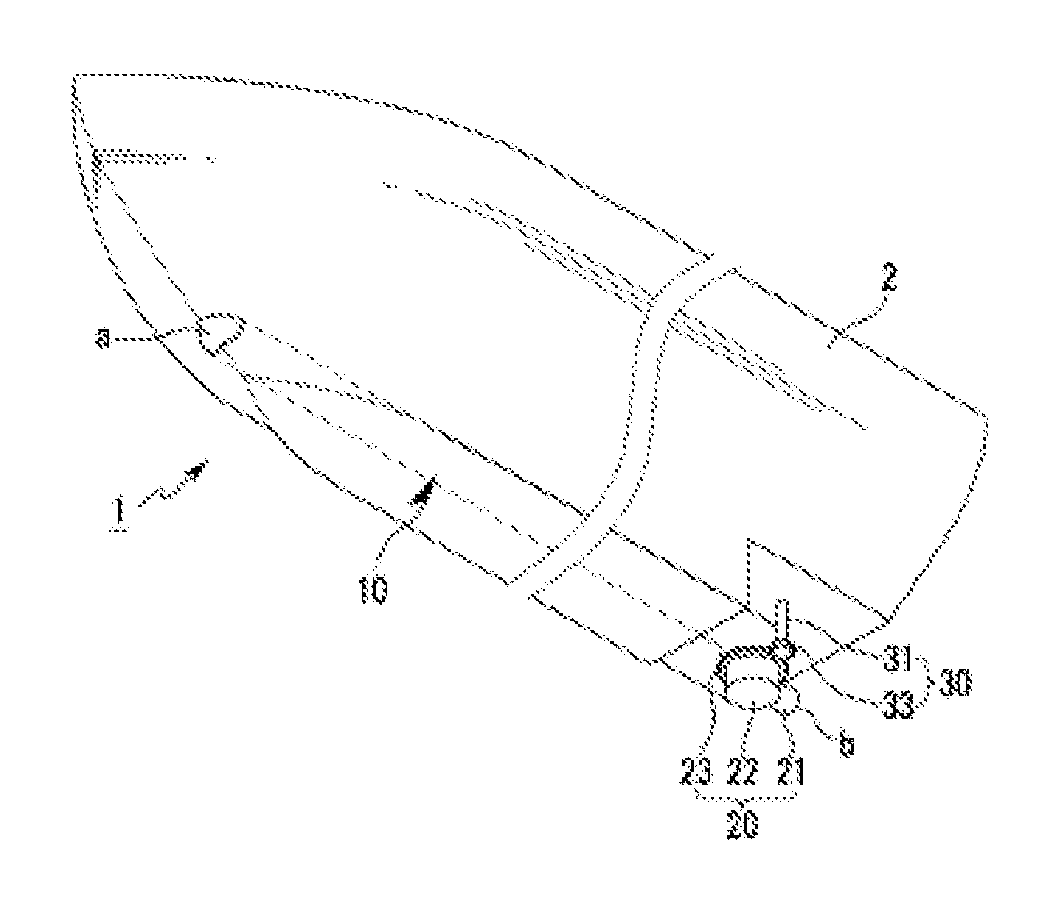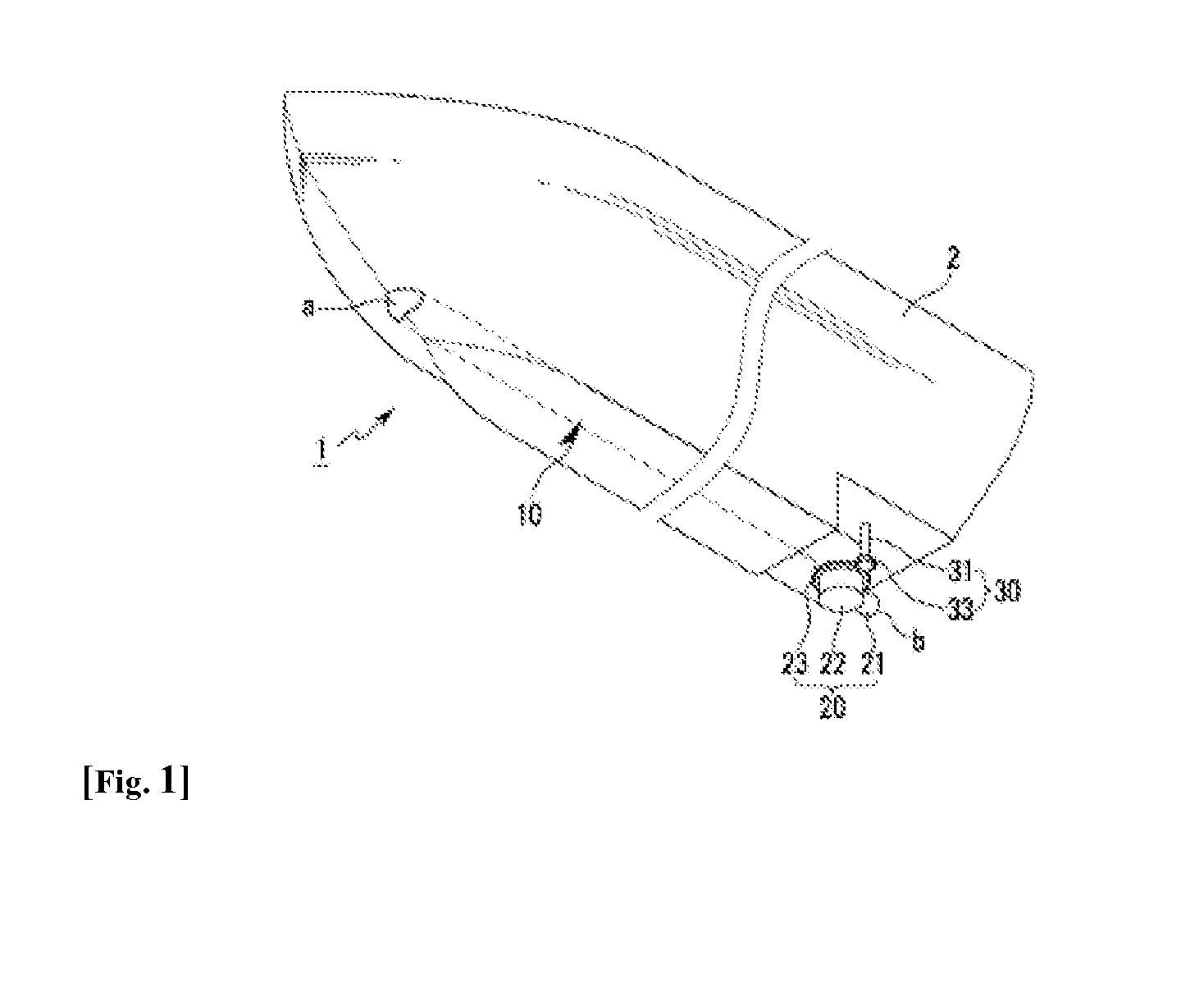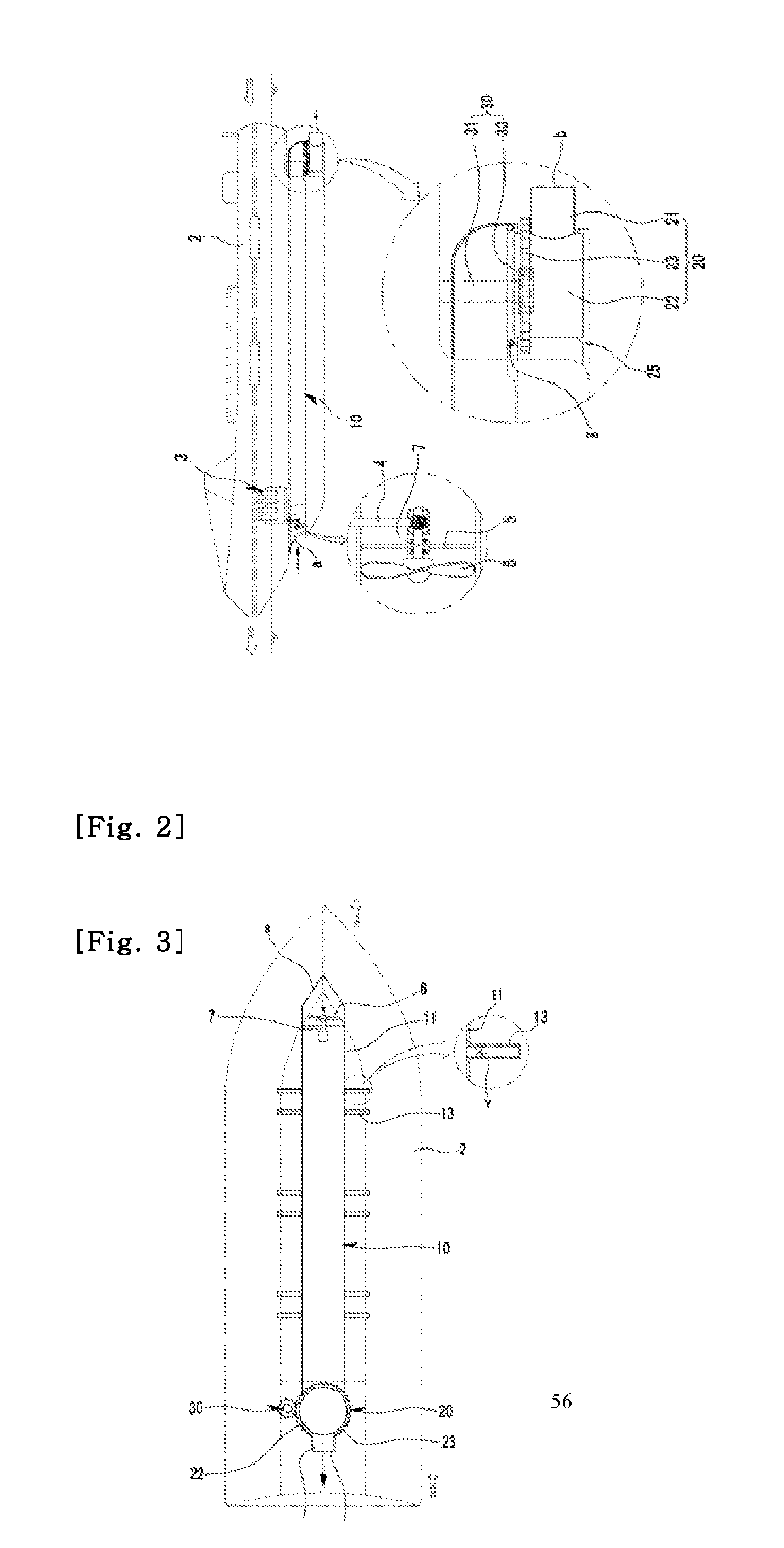Patents
Literature
Hiro is an intelligent assistant for R&D personnel, combined with Patent DNA, to facilitate innovative research.
111results about "Aircraft carriers" patented technology
Efficacy Topic
Property
Owner
Technical Advancement
Application Domain
Technology Topic
Technology Field Word
Patent Country/Region
Patent Type
Patent Status
Application Year
Inventor
Epoxy coating
InactiveUS7037958B1Improve adhesionAvoid corrosionLiquid surface applicatorsAircraft carriersEpoxyGlass fiber
This invention concerns an epoxy coating for use as a non-skid surface for applications such as the deck of an aircraft carrier. The epoxy coating can be formulated from (a) an amine curing agent, (b) an epoxide-containing toughening agent such as a polysulfide and / or a polythioether, (c) an epoxy resin, (d) a rubber toughening agent, and (e) an optional fire retardant, a glass fiber thixotrope and impact toughening agent, an optional pigment, an optional corrosion inhibitor, an optional moisture penetration inhibitor, an optional ultraviolet light stabilizer, an optional abrasive aggregate, or a combination thereof.
Owner:TEXAS RES INT
Building block type aircraft carrier
The invention provides a building block typed aircraft carrier which consists of a commanding ship and a plurality of unit ships. The whole shape of the commanding ship and the aircraft carrier is a shuttle-shaped multi-prism. The commanding ship is provided with a nuclear power device and a diesel electric hybrid power device. The unit ship is provided with the diesel electric hybrid power device. The connection and disconnection between the commanding ship and the unit ships are realized by a Zhantianyou which is arranged on the side wall of the ship body. Each unit ship is sealed; the underfloor area is provided with a water tank which can adjust the water accumulation quantity; a telescopic periscope is arranged below a deck. The aircraft carrier can disperse to prowl, can pass through narrow water passage, can float out of the water surface and be quickly assembled when achieving the destination, so as to realize the surprise attack. The flying deck is provided with a unique aircraft takeoff ejector and a unique aircraft landing damp. The aircraft carrier can realize emergency stop, backing movement and turning in-situ, which can lead the aircraft to always take off and land against the wind.
Owner:左学禹
Coating with primer and topcoat both containing polysulfide, epoxy resin and rubber toughener
InactiveUS6632860B1Improve impact resistanceImprove impact toughnessSemiconductor/solid-state device detailsSolid-state devicesEpoxyFiber
A process for coating a solid surface comprises< / PTEXT>1) applying onto a solid surface a primer coating prepared from an amine curing agent, a polysulfide toughening agent, an epoxy resin, a rubber toughening agent, a fire retardant, a glass fiber thixotrope, and a pigment; and< / PTEXT>2) applying onto the primer coating a topcoat prepared from an amine curing agent, a polysulfide toughening agent, an epoxy resin, a rubber toughening agent, a fire retardant, a glass fiber thixotrope, a pigment and an abrasive aggregate.< / PTEXT>
Owner:TRI AUSTIN
Ship of quickly assembled separation-type aircraft carrier
InactiveCN103043196AControl the size of the magnetic forceTo achieve a fixed connectionAircraft carriersButt jointMarine engineering
The invention discloses a ship of a quickly assembled separation-type aircraft carrier. The ship comprises a first ship unit and a second ship unit; at least one male connecting component is arranged on the outer side wall of the first ship body, and female connecting components matched with the male connecting components are arranged at corresponding positions of the second ship unit; at least one first traction apparatus is fixedly mounted on at least one ship unit, is provided with a first traction rope and is applicable to collecting and releasing the first traction rope; and at least one rope fixing device is arranged on the other ship unit and is applicable to being detachably connected with the corresponding first traction rope. When one end of each traction rope is mounted on the corresponding first traction apparatus and the other end of the traction rope respectively penetrates through a corresponding first through hole and a corresponding second through hole to be connected with the corresponding first traction rope fixing device, the traction apparatuses collect the first traction ropes via the through holes, so that the two ship units are in butt joint with each other.
Owner:唐山春雨钢结构有限公司
Stable offshore floating depot
ActiveUS8662000B2Exceptional heave damping characteristicsSteering by propulsive elementsAircraft carriersMachine shopMarine engineering
An offshore depot having a vertically symmetric hull, an upper inwardly-tapered wall and a lower outwardly-tapered wall that produce significant heave damping in response to heavy wave action. Ballast is added to the lower and outermost portions of the hull to lower the center of gravity below the center of buoyancy. The offshore depot includes a tunnel formed within or through the hull at the waterline that provides a sheltered area inside the hull for safe and easy launching / docking of boats and embarkation / debarkation of personnel. When the watertight tunnel doors are all shut, the tunnel may be drained to create a dry dock environment within the hull. The offshore depot includes berthing and dinning accommodations, medical facilities, workshops, machine shops, a heliport, and the like.
Owner:JURONG SHIPYARD
Taking-off and landing system of shipboard aircraft of aircraft carrier and taking-off and landing method thereof
The invention discloses a taking-off and landing system of a shipboard aircraft of an aircraft carrier. The system comprises a shipboard aircraft taking-off device and a landing device which are arranged on the aircraft carrier. The shipboard aircraft taking-off device is a ship head bouncing deck extending from a track groove configured with a track guide. The shipboard aircraft landing device is a ship stern rear axle extending from a running belt track of a running machine. A taking-off and landing method that the taking-off and landing system corresponds to is further disclosed. Taking-off of the shipboard aircraft is achieved through the ship head bouncing deck and the track groove configured with the track guide. Landing of the shipboard aircraft is achieved by the ship stern tail axle. The system and the method adopt good points and avoid shortcomings in the prior art of shipboard aircraft sliding jump, bouncing and vertical taking-off, improve taking-off efficiency, reduce ship landing speed by extending a landing runway to the back of the carrier, reduce difficulty and risk of the landing technology of the existing aircraft carrier, are suitable for taking-off and landing of various aircraft carriers and enable building of 'pocket-size aircraft carriers' to be possible.
Owner:王力丰
Vehicle-ship carrying electric lifter
InactiveCN101054114AImprove usage characteristicsExcellent wide use characteristicsAircraft carriersRemote-control toysElectricitySprayer
The invention discloses a vehicle and boat carrying electric lifter, which includes vehicle and boar carrier and electric helicopter. The vehicle and boat carrier includes a platform, a cab, a console, a generator, an automatic bowstring machine, a folding protective plate, and a positioning ring. The electric helicopter includes a stroke oar, a rotary wing, a motor gearing, a driving house and an undercarriage. The automatic bowstring machine is connected with a electric lifter system; the electric lifter system at least includes a set of cable rope convoluted on the automatic bowstring machine, wherein, one end of the cable rope is electrically connected to the console, and other end is fixed on the positioning ring and is electrically connected to the electric helicopter which is capable of parking on the platform; width of the wing for the electric helicopter is not more than width of the electric helicopter body in static state; a rear electron radar and video frequency probe and a front electron radar and video frequency probe are equipped at bottom of the electric helicopter; and a telescopic water gun sprayer is mounted on head of the electric telescopic for fire fighting. Advantages of the vehicle and boat carrying electric lifter are: fast reaching, freely lifting, easy operation, convenient use, low cost and high efficiency.
Owner:陈复树
Take-Off and Landing System for Carrier Aircraft on an Aircraft Carrier and the Method Thereof
The present invention discloses a take-off and landing system for carrier aircraft, which comprises a takeoff device and a landing device; said takeoff device is a bow side launch deck which is located at the front part of the aircraft carrier and extends from a track groove provided with a track guider; said landing device is a stern side rear bridge which is located at the rear part of the aircraft carrier and extends from a treadmill belt-type runway. The invention also discloses a take-off and landing method corresponding to the take-off and landing system. The take-off and landing system and the method thereof enhances advantages and avoids weaknesses with regard to the existing take-off technologies, reduces the difficulty and risk in the existing landing technology. The present invention is suitable for the take-off and landing of all kinds of carrier aircrafts and also makes a design to build a “pocket-sized aircraft carrier” become possible.
Owner:WANG LIFENG
Stable offshore floating depot
ActiveUS20120132122A1Exceptional heave damping characteristicsVessels for aircraftLifeboat handlingMachine shopMarine engineering
An offshore depot having a vertically symmetric hull, an upper inwardly-tapered wall and a lower outwardly-tapered wall that produce significant heave damping in response to heavy wave action. Ballast is added to the lower and outermost portions of the hull to lower the center of gravity below the center of buoyancy. The offshore depot includes a tunnel formed within or through the hull at the waterline that provides a sheltered area inside the hull for safe and easy launching / docking of boats and embarkation / debarkation of personnel. When the watertight tunnel doors are all shut, the tunnel may be drained to create a dry dock environment within the hull. The offshore depot includes berthing and dinning accommodations, medical facilities, workshops, machine shops, a heliport, and the like.
Owner:JURONG SHIPYARD
Takeoff and landing method for aircraft carrier-based aircraft and apparatus thereof
InactiveCN101348166AReduce volumeIncrease flexibilityLaunching/towing gearAircraft carriersSea levelAirplane
The invention discloses a method of taking off and landing of an aircraft carrier plane and a device thereof. The device comprises a windmill type rotating mechanism arranged on an aircraft carrier body, wherein, the rotating mechanism is provided with a group of cantilever arms; a protruding end of each cantilever arm is provided with a lift platform with adjustable inclination angle and a launch pad. The plane is fixed on the launch pad before taking off; the rotating mechanism is started, when the plane reaches takeoff altitude and takeoff speed, a fixed device is released to lead the plane to take off automatically along the tangential line, so that the takeoff of the plane is completed; when the plane lands, the lift platform floats on sea level, when the plane approaches the lift platform of the rotating mechanism, the inclination angle of the launch pad is matched with the flight altitude and speed of the plane, an arresting device is used for leading the plane to directly land on the lift platform, the rotating speed of the rotating mechanism is gradually reduced until the rotating mechanism stops, thereby the landing of the plane is completed. The method and the device of the invention change the mode of the original aircraft carrier body, can change the shape of the aircraft carrier body, improves the flexibility and reduces the use cost.
Owner:杨举
Multipurpose anti-attack submarine depot boat
InactiveCN102079379AImprove combat effectivenessImprove confidentialityAircraft carriersBody positionsSubmarine
The invention provides a multipurpose anti-attack submarine depot boat. The multipurpose anti-attack airplane carrier consists of an overwater boat body, underwater boat bodies and a submarine, wherein a flight deck is arranged at the top of the overwater boat body; the underwater boat bodies are vertically arranged at the bottom of the overwater boat body; the underwater boat bodies are arranged in pair at least; sealed skylights are arranged at the bottom of the overwater boat body positioned on the two sides of the underwater boat bodies; the submarine is berthed below the sealed skylights; lifters are arranged on the two sides of the sealed skylights; steel cables of the lifters are connected with the submarine and are positioned over the sealed skylights; a guided missile lifting crane is arranged at the bottom of the flight deck; a carrier aircraft catapult is arranged on the flight deck; antiaircraft weapon cabins are arranged on the two sides of the overwater boat body; a torpedo-protection net is arranged below the antiaircraft weapon cabins and is lifted through the lifter; a ballast compartment is arranged at the bottoms of the underwater boat bodies; a power cabin is arranged above the ballast compartment; the lifting of the submarine depot boat is controlled through the load of the ballast compartment; and a warship island is arranged in the middle of the flight deck.
Owner:朱惠芬
Slope aircraft landing taxi-track on aircraft-carrier deck and its using method
InactiveCN1955071AReduce floor areaReduce manufacturing difficultyAircraft carriersGround installationsAircraft landingStraight segment
An arc runway on aircraft carrier for the taking off or landing of aircraft is composed of a straight runway segment and a slope runway segment. For the taking off, said slope segment is used for the taxi and beginning acceleration and said straight segment is used for further acceleration. For the landing, said straight segment is used for the landing and deceleration sliding and said slope segment is used for further deceleration.
Owner:梁嘉麟
Slope downward-sliding takeoff platform for carrier-based aircraft, application aircraft carrier and realization method
InactiveCN102826231AReduce volumeReduce areaEnergy efficient operational measuresAircraft carriersTakeoffDaily operation
The invention discloses a slope downward-sliding takeoff platform for a carrier-based aircraft, an application aircraft carrier and a realization method, relates to the field of naval weapons and solves the technical defects caused when the carrier-based aircraft takes off by adopting a skiing-jumping takeoff method. The slope downward-sliding takeoff platform for the carrier-based aircraft comprises a slope curved-surface runway. A support carrier plate is connected with the slope top end of the slope curved-surface runway. A percussive carrier-based aircraft tail hook fixing device which is used for being matched with the tail hook of the carrier-based aircraft when the carrier-based aircraft starts to run is arranged on the support carrier plate. The support carrier plate is additionally connected with a lifting platform. Due to the gravity of the carrier-based aircraft and the fall of the slope curved-surface runway, gravity acceleration is added onto the carrier-based aircraft on the basis of acceleration through engine thrust of the carrier-based aircraft, the goals of saving fuel, shortening takeoff distance, increasing load and increasing combat radius and combat force are achieved, and the daily operation efficiency to expense ratio is superior to the existing takeoff method.
Owner:赵天烁 +1
Navigation submarine ship with hydrofoil power cabins
InactiveCN102079380AImprove combat effectivenessExpand the scope ofPropulsion power plantsAircraft carriersSubmarineMarine navigation
The invention provides a navigation submarine ship with hydrofoil power cabins, which comprises an overwater ship body, underwater power cabins, hydrofoil power cabins and a submarine, wherein the top of the overwater ship body is provided with a flight deck; the edge or middle of the flight deck is provided with four catapult-assisted take-off runways and two landing runways; ship loading machines are parked at the two sides of the catapult-assisted take-off runways and the landing runways; a missile launching silo is arranged between the landing runways; the cover of the missile launching silo is in parallel to the flight deck; the underwater power cabins are vertically arranged at the bottom of the overwater ship body; the hydrofoil power cabins are arranged between the underwater power cabins or at the two sides of the underwater power cabins; the number of the underwater power cabins is 1-2; the bottom of the overwater ship body is provided with a submarine anchor port; the submarine is parked below the submarine anchor port; the front and rear sides of the overwater ship body are provided with air warfare platforms; a torpedo protective net is arranged below the air warfare platforms; the torpedo protective net is lifted through a lifter; power facilities are arranged in the underwater power cabins; and propellers are arranged at the rear parts of the underwater power cabins and hydrofoil power cabins.
Owner:朱惠芬
Invisible aircraft carrier with high combat power and survivability
InactiveCN102390507AImprove survivabilityInvisibility effect is goodAircraft carriersGround installationsSurvivabilityInvisibility
The invention discloses an invisible aircraft carrier with high combat power and survivability. The invisible aircraft carrier is characterized in that: firstly, width of a flight deck is greatly reduced, the flight deck and the aircraft carrier body below the deck are changed to be more regularly strip-shaped, the surrounding outer surface of the aircraft carrier body is made into a structure that large areas of outward bent and inward bent planes are crossed, and an invisible material is additionally adhered to the outer surface of the aircraft carrier body or an invisible coating is additionally coated on the outer surface of the aircraft carrier body; secondly, an aircraft hangar with width of 40m and length of 200-300m is made on the lower part of the flight deck; or a vertical two-layer aircraft hangar is made below the aircraft carrier surface of a middle rear part so as to greatly increase the number of aircrafts carried by the aircraft hangar; thirdly, 4-5 flight flying and receiving hatchways are formed on the tail part of the flight deck and on two side edges or in the center of the aircraft carrier surface of the middle front part, and the aircraft carrier surfaces on the front parts of the four aircraft flying and receiving hatchways on the side edge of the flight deck are provided with catapults, or the forefront part of the aircraft carrier body is provided with a flying deck; and fourthly, the upper part of the flight deck on the aircraft carrier surface for landing and receiving aircrafts is provided with four or more arrester wires, and the aircraft carrier surface on the ahead part is provided with a barrier net. Thus, the aircraft carrier with high combat power and high invisibility can be made.
Owner:郭宏斌
Novel aircraft carrier
The invention discloses a novel aircraft carrier. The aircraft carrier consists of a plurality of 'unit platform ships'. Each unit platform ship consists of a structural platform of certain area (such as 30 meters * 20 meters), a closed buoyancy ship, a steering gearwheel and a steering pinion. A motor propeller is arranged at the tail of the closed buoyancy ship. The aircraft carrier is propelled to sail by means of the motor propeller, and the sailing direction is adjusted by means of the steering gearwheel and the steering pinion. The novel aircraft carrier not only can land an aircraft, but also can be used for installing various weapons and military supplies comprising short-range guided missiles and antimissiles. The combined platform ship for the aircraft carrier can also be used for establishing a sea military base, exploiting submarine oil, developing various marine resources and strengthening sea trade with every country in the world and the like.
Owner:陈世文
Assisted takeoff system of airplane
InactiveCN102358432AReach takeoff speedInitial take-off velocityLaunching/towing gearAircraft carriersJet aeroplaneSky
The invention discloses an assisted takeoff system of an airplane. The assisted takeoff system comprises a slope slideway and pulleys, wherein one end of the slideway is smoothly connected with a horizontal runway, and the other end of the slideway is fixed to an aircraft carrier island; the starting end of the slideway on the aircraft carrier island is in a horizontal state; and each pulley is provided with fixing and unlocking devices which are arranged between the airplane and the pulleys and used for preventing bumping. When the assisted takeoff system is used, the airplane is arranged at the starting end of the slideway arranged at an aircraft carrier island end; then, the pulleys and the airplane dive to accelerate. When the airplane reaches the bottom end of the slope, a position switch controls an electromagnet motor to work to remove the fixation, and the airplane continuously accelerates and rises to the sky. The system utilizes the self gravitational potential energy of the airplane to assist the airplane to take off, so that the difficulties that limits of ski jump type takeoff on airplane weight and a catapult is difficult to manufacture can be overcome, auxiliary thrust augmentation required in airplane takeoff can be reliably, efficiently and stably provided, so that the airplane quickly reaches takeoff initial velocity, and the assisted takeoff system not only can be used for assisting the airplane to take off on the aircraft carrier, but also can be used for assisting the airplane to take off on an island in a short distance.
Owner:刘建平
Platform air-jet airstrip with efficient ultra-short distance taxiing or vertical takeoff and landing aircraft.
PendingCN108860638AExtend your lifeProtect yourselfAircraft carriersGround installationsAviationJet aeroplane
The invention discloses an aircraft carrier, ship and water-land platform air-jet airstrip with efficient ultra-short distance taxiing or vertical takeoff and landing aircraft, and belongs to the technical field of the structure of the aviation intelligent traffic mechanical and electrical products; the whole structure is composed of seven regions which are respectively combined by multi-block body plate main module and assembly phase. By utilizing variety of gas supply technology such as a turbojet, a turbofan, an axial flow fan type, an air compressor and a liquefied gas, the compressed airis input to the platform air-jet airstrip device through a variety of air source; the effect is that: the air-jet airstrip realizes the safety takeoff and landing of the wing-type original taxiing andlanding aircraft in the ultra-short distance, and 100% safety landing of all kinds of carrier-based aircraft and non-carrier-based aircraft whenever stormy waves is class 8 or above at sea, or bad weather conditions. The vertical takeoff kite aircraft and helicopter can not only add 40% mileage in the most economical way, but recovery rocket without damage, can achieve 100% safety control of theinertial torque of the landing aircraft.
Owner:赵凤银
Pump waterjet propulsion double hydrofoil shallow groundwater aircraft carrier
InactiveCN101323359ASimple structureImprove combat capabilityAircraft carriersPropulsive elementsGear pumpHigh pressure
The invention discloses a pump water spray propulsion double-hydrofoil shallow diving carrier, which is technically characterized by absorbing the superiorities of a submarine, a carrier, a modern small water plane catamaran with superhigh speed and a hovercraft, and by using 'a multilevel double-circular-arc-gear high pressure pump with large flow rate', 'a multilevel internal series double supercharged and double-circular-arc-gear pump' as a water spraying pump and an air-cushion pump of a ship and by adopting the structure of a shallow diving carrier which uses a multi-functional double hydrofoils submerged body to provide buoyancy and dynamic forces. The ship body carries power and pump spraying water, which transports the high pressure and large flow rate water to a direction-adjustable spray head which is positioned on the tail part of the multi-functional double hydrofoils submerged body under the ship body, so as to achieve the water spray propulsion. Besides providing the buoyancy and dynamic forces, the double hydrofoils submerged body also has the functions of oil storage, inputting water in a respective cavity and controlling the shallow diving and the ship attitude, and is also provided with overall strength, thus forming a small water plane catamaran structure; the double hydrofoils submerged body is also provided with an air-cushion. When the submerged body uses the pump to exhaust water, the ship body surfaces, and likes a small water plane catamaran, the spray head can spray water and is promoted in water when avoiding the water resistance to go forward at high speed; the carrier is a propeller-typed ship and can not realize a sea skimming flight, which is the most superiority in the water spray propulsion.
Owner:赵明
Method for developing South China Sea based on multi-purpose South China Sea travel and vacation training aircraft carrier
InactiveCN102079378AImprove combat effectivenessImprove confidentialityAircraft carriersRubber matSouth china
The invention provides a method for developing the South China Sea based on a multi-purpose South China Sea travel and vacation training aircraft carrier which structurally comprises a ship body, a submarine and building block type vacation hotels, wherein the bottom of the ship body is designed to be flat; the upper surface of the ship body is provided with a flying deck; the middle of the flying deck is provided with carrier-based aircraft ejector; and the two sides of the flying deck are provided with the detachable building block type vacation hotels; living service facilities, armament equipment maintenance facilities, power facilities, storehouses and infrastructure equipment are arranged in the ship body; the bottom of the ship body is provided with electric thrusters; a submarine access channel is arranged between the electric thrusters; a docking berth is arranged in the middle of the channel; navigation marking lamps are arranged at the bottoms of the channel and the docking berth; the submarine docks below the berth; and air sacs or buffer rubber mats are arranged at the bottoms of the submarine berth and a berth access channel. According to the invention, collision with aircraft carrier resulting from excessively fast emergence of the submarine is avoided; and an upper bridge is arranged at the middle of the upper part of the flying deck.
Owner:朱惠芬
Double level flight deck type aircraft carrier
InactiveUS20100294188A1Safer landing conditionIncreased deck spaceWaterborne vesselsVessels for aircraftLevel flightAirplane
A double level flight deck type aircraft carrier is disclosed to include a second level of flight deck so that aircraft launching and landing operations can be separately performed on the decks. The double deck design doubles the operation capacity and capability.
Owner:WANG HSU CHENG
Ship-based stable platform with platform surface capable of being separated in lifting and lowering modes
ActiveCN110844099AImprove structural stabilityIncrease stiffnessAircraft carriersVessel stability improvementMarine engineeringMechanical engineering
Owner:YANSHAN UNIV
End-to-end double-aircraft carrier battle group
InactiveCN102079381AIncrease the lengthQuick compositionAircraft carriersGround installationsHydraulic cylinderPiston
The invention provides an end-to-end double-aircraft carrier battle group which comprises a main aircraft carrier and an auxiliary aircraft carrier, wherein one to two penetrating type takeoff and landing runways running from an aircraft carrier tail to an aircraft carrier head are arranged between the main aircraft carrier and the auxiliary aircraft carrier; two sides of the penetrating type takeoff and landing runway are respectively provided with an inclined takeoff runway; both ends of the penetrating type takeoff and landing runway are hinged with a hydraulic lengthened takeoff and landing runway by a hinge; the piston end of a hydraulic cylinder is connected to the bottom of the hydraulic lengthening takeoff and landing runway; the hydraulic cylinder is connected with hulls of the main aircraft carrier and the auxiliary aircraft carrier; the tail of the main aircraft carrier and the head of the auxiliary aircraft carrier are connected together by the hydraulic lengthening takeoff and landing runway; the tail of the main aircraft carrier and the head of the auxiliary aircraft carrier are connected by a tensioning steel cable; and aircraft carrier islands of the main aircraft carrier and the auxiliary aircraft carrier are arranged between the two penetrating type takeoff and landing runways.
Owner:朱惠芬
Unmanned air cushion platform of aircraft carrier free with no flight deck
InactiveCN106945807ASolve take-off and landing problemsImprove combat capabilityArresting gearLaunching/towing gearAir cushionLanding gear
The invention discloses an unmanned air cushion platform of an aircraft carrier with no flight deck. The unmanned air cushion platform comprise a hovercraft, a fighter launching and recovering platform, a fighter arrester, fighter fixators and fighter guide positioners. The fighter launching and recovering platform is fixed to the top of the hovercraft. The fighter arrester and the fighter guide positioners are mounted on the fighter launching and recovering platform. The fighter fixators are mounted in the hovercraft. The tops of the fighter fixators penetrate through the fighter launching and recovering platform. The three fighter guide positioners separately correspond to the positions of three undercarriages of a fighter. The two fighter fixators are separately located on one sides of the two fighter guide positioners corresponding to the two longitudinal double-wheel bridge-shaped rear undercarriages of the fighter. By adoption of the unmanned air cushion platform, the fighter take-off and landing problems are thoroughly solved so that the aircraft carrier can omit the flight deck and can simultaneously launch or recover fighters in a large batch mode, and the combat capacity of the aircraft carrier is greatly improved.
Owner:CHANGZHOU COLLEGE OF INFORMATION TECH
Shipboard aircraft landing auxiliary decision-making method and device based on wave measurement
ActiveCN110745212AReduce go-around rateReduce the risk of landingNavigational aid arrangementsMeasuring open water movementWave measureBuoy
The invention discloses a shipboard aircraft landing auxiliary decision-making method and device based on wave measurement, and belongs to the field of overall design of ships. The method comprises the steps that wave height distribution in the ship advancing direction is determined based on a radar signal, in the ship advancing direction, measured by wave measuring radar; the wave height is measured through a target wave measurement buoy; the wave height measured by the target wave measurement buoy is adopted as the standard, the wave height distribution measured by the wave measuring radar is corrected, and the wave height distribution about to be encountered by the ships in next m minutes is obtained; and according to the wave height distribution about to be encountered by the ship in the next m minutes, a seakeeping quick forecasting technique is adopted for forecasting the motion of the ships in the next m minutes, a self-adaptation correction technique based on very short-range forecasting is adopted for carrying out self-adaption correction on the measured actual motion of the ships and the motion forecast theoretically, the corrected motion result of the ships in the next mminutes is obtained and compared with a shipboard aircraft landing criterion to complete auxiliary decision making. According to the shipboard aircraft landing auxiliary decision-making method and device based on wave measurement, a more precise forecasting result can be obtained.
Owner:CHINA SHIP DEV & DESIGN CENT
Carrier-borne aircraft runway capable of extending out ship body of aircraft-carrier the and method for runway extending
ActiveCN101525046AReduce difficultyReduce riskVessels for aircraftAircraft carriersPush and pullMarine engineering
The invention provides a carrier-borne aircraft runway capable of extending out the ship body the aircraft-carrier and a method for carrier-borne aircraft runway extending out the ship body of aircraft-carrier. The deck of the aircraft-carrier is provided with an integral type carrier-borne aircraft runway and the ship body of the aircraft-carrier is internally provided with a drive mechanism to drive the runway to slide so that one part of the runway extends out the ship body; an elevation deck is arranged below the runway and is used for filling up a vacancy reserved on the ship after one part of the runway extend out the ship; after the runway is matched and spliced with the deck, a flat and elongated carrier-borne aircraft runway is formed; the runway extends out the ship and overhangs sea surface and is supported by a pontoon and a plurality of temporary floating objects, and the extending and retaking of the runway depends on the driving of the drive mechanism and / or the assistant push and pull of the pontoon. The carrier-borne aircraft runway capable of extending out the ship body of the aircraft-carrier and the method for the carrier-borne aircraft runway extending out the ship body of the aircraft-carrier can reduce the difficulty and risk of take-off and descending of the aircraft carrier.
Owner:王力丰
Tetrad aeroplane carrier and tetrad ship form
The invention provides a four-connecting-body aircraft carrier and a four-connecting-body ship type; wherein, the four-connecting-body aircraft carrier is the aircraft carrier of completely novel concept and is mainly characterized in that the ship body thereof consists of four main ship sub-bodies (also called sub-ship bodies) which are symmetrically arranged in a rectangular shape and are connected with each other by superstructure such as steel box girders, upper decks, garage decks, auxiliary layer decks, flaying decks, and the like, thus forming a whole aircraft carrier; the four-connecting-body ship is a novel ship type which has completely novel concept and is derived by the four-connecting-body aircraft carrier. The characteristic of the four-connecting-body ship type is almost the same as that of the four-connecting-body aircraft carrier, and the main difference is the superstructure; the four sub-ship bodies of the four-connecting-body ship still consists of the steel box girder, the upper deck and the superstructure which are connected with each other as a whole, thus forming a whole ship; the four-connecting-body ship type which is taken as civil purpose is suitable for being used for the design of large container ship and large oceangoing passenger ship; on the aspect of power proposal, the four-connecting-body aircraft carrier suitably adopts nuclear power. (Normal power can be also adopted when necessary); four sub-ship bodies where nuclear reactors can be arranged at the same time are pushed ahead by a steam turbine; each sub-ship body is pushed ahead at the same time by dual-shaft and dual-oar; the civil-used four-connecting-body ship suitably uses normal power proposal; the stability and seakeeping performance of the four-connecting-body ship are better than those of the single-body ship; under the same tonnage, the upper deck of the four-connecting-body ship is much broader than that of the single-body ship.
Owner:赵英
Aircraft carrier
The invention relates to a new carrier. The existing carriers takes a great amount of metal to build, is of remarkable cost but it travels slowly which lowers the battle effectiveness. The carrier is divided into five levels of which the top level is aeroplane landing and parking level including weapon equipments, bridge house and its complements; the second level is aeroplane taking off and parking level; the third level is aeroplane parking and amendment level installed with illumination tempered glass; both sides of the hull is installed with aeroplane elevating platform which has a rotor plate on for the planes change direction freely when going up and down; the fourth level is living zone platform; the bottom level is set with cabins for fuel storage, power facilities; at the tail of the bottom level is set with speed boat parking cabin. The hull is built with a large steel framework enfolded with steel sheets and filled with light fire retardancy material to obtain an adjustable float and linked with rigidity double layer soleplate on the lower parts. The carrier is of great using area and battle effectiveness, safe and reliable, unsinkable and unswayable, fast and inexpensive.
Owner:傅德俐
Aircraft carrier
InactiveCN101244760ATake-off and landing operations do not affect each otherImprove continuityAircraft carriersJet aeroplaneWaterline
The invention relates to an aircraft carrier, which overcomes the defects of difficult taking off and dangerous landing of airplanes on the aircraft carrier in the prior art. The aircraft carrier adopts the technical proposal that the aircraft carrier comprises a body and a flight deck. The aircraft carrier is characterized in that a V-shaped flight deck and a declined landing deck are arranged; an ascending section of the V-shaped flight deck on a bow is lower and shorter than a V-shaped descending section; the flight deck is integrally arranged at the upper part of the main body or split into two parts and respectively arranged at the upper parts of a left body and a right body; the landing deck is arranged on one side, two sides, or between the left body and the right body; a stern section of the landing deck is arranged below or above the waterline. The aircraft carrier has the advantages of fully utilizing the acceleration effect of a descending incline to facilitate the taking off of the airplanes, utilizing the buffering effect of the water and the deceleration effect of an ascending incline to facilitate the landing of the airplanes, and overcoming the defects of difficult taking off and dangerous landing of airplanes on the aircraft carrier in the prior art.
Owner:刘华友
Device for propelling and turning hull
InactiveUS20150068439A1Increase freedomSmoothly anchorDefensive equipmentSteering ruddersSternExternal source
The present invention relates to a device for propelling and turning a hull, wherein the resistance acting on the stem of the hull is converted and the hull can be moved not only in the forward and backward directions but also in the left and right directions so as to improve the mobility and evasion capacity of the hull. The device for propelling and turning a hull comprises: a manifold arranged in the lengthwise direction in the lower portion of the hull so as to discharge the water introduced at the stem side toward the stern side; a propelling means, the top of which is rotatably connected to the stern side end of the manifold, the propelling means being arranged so as to jet water in a lateral direction; and a steering means, which is rotatably coupled to the stern side end of the propelling means such that the steering means rotates the propelling means in a given direction by means of rotating force applied from an external source.
Owner:GYUNG JIN GYUNG JIN +7
Features
- R&D
- Intellectual Property
- Life Sciences
- Materials
- Tech Scout
Why Patsnap Eureka
- Unparalleled Data Quality
- Higher Quality Content
- 60% Fewer Hallucinations
Social media
Patsnap Eureka Blog
Learn More Browse by: Latest US Patents, China's latest patents, Technical Efficacy Thesaurus, Application Domain, Technology Topic, Popular Technical Reports.
© 2025 PatSnap. All rights reserved.Legal|Privacy policy|Modern Slavery Act Transparency Statement|Sitemap|About US| Contact US: help@patsnap.com



